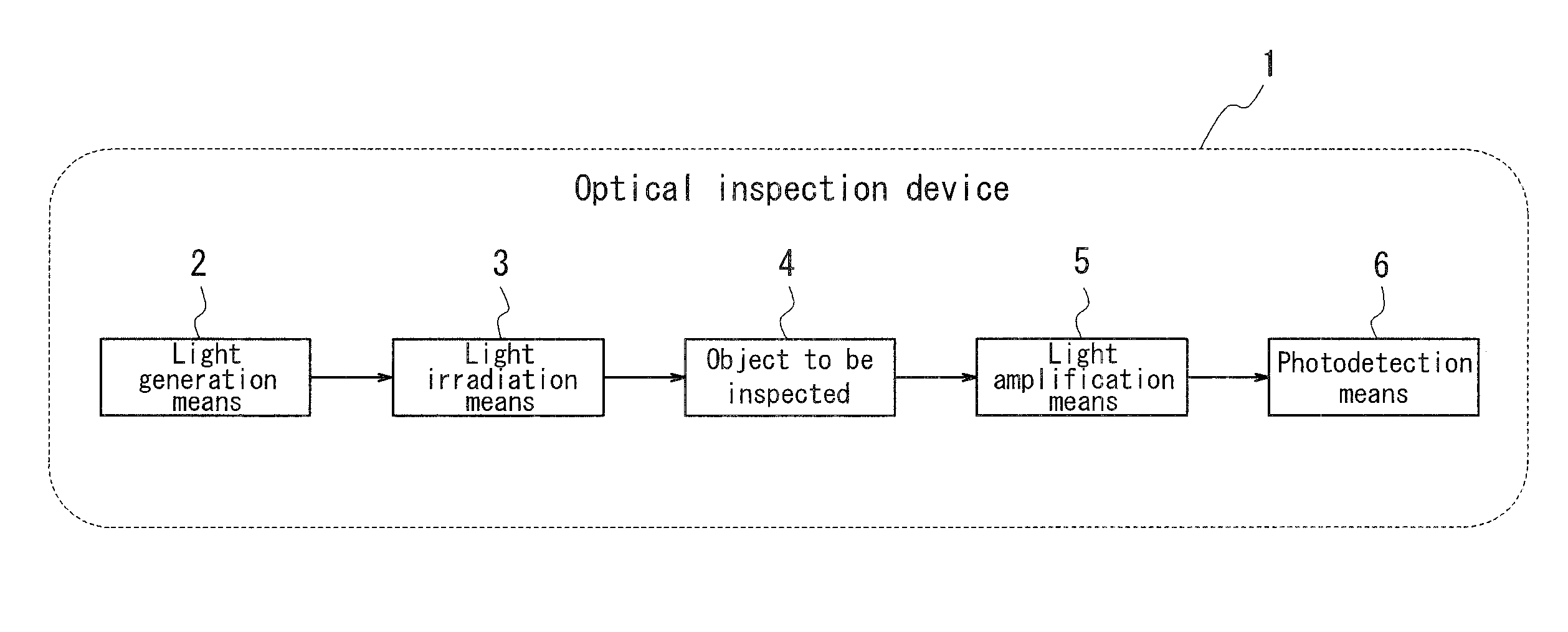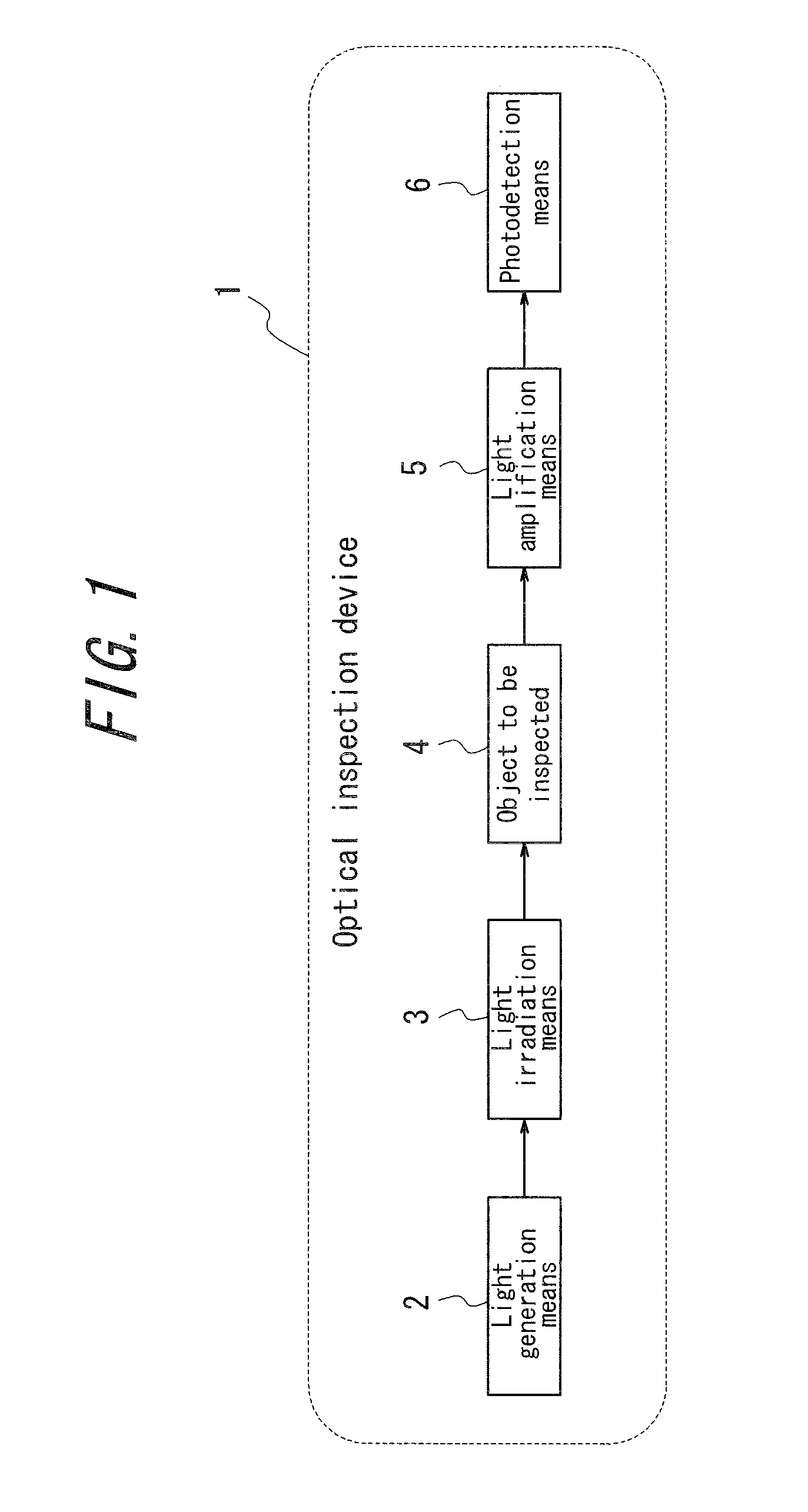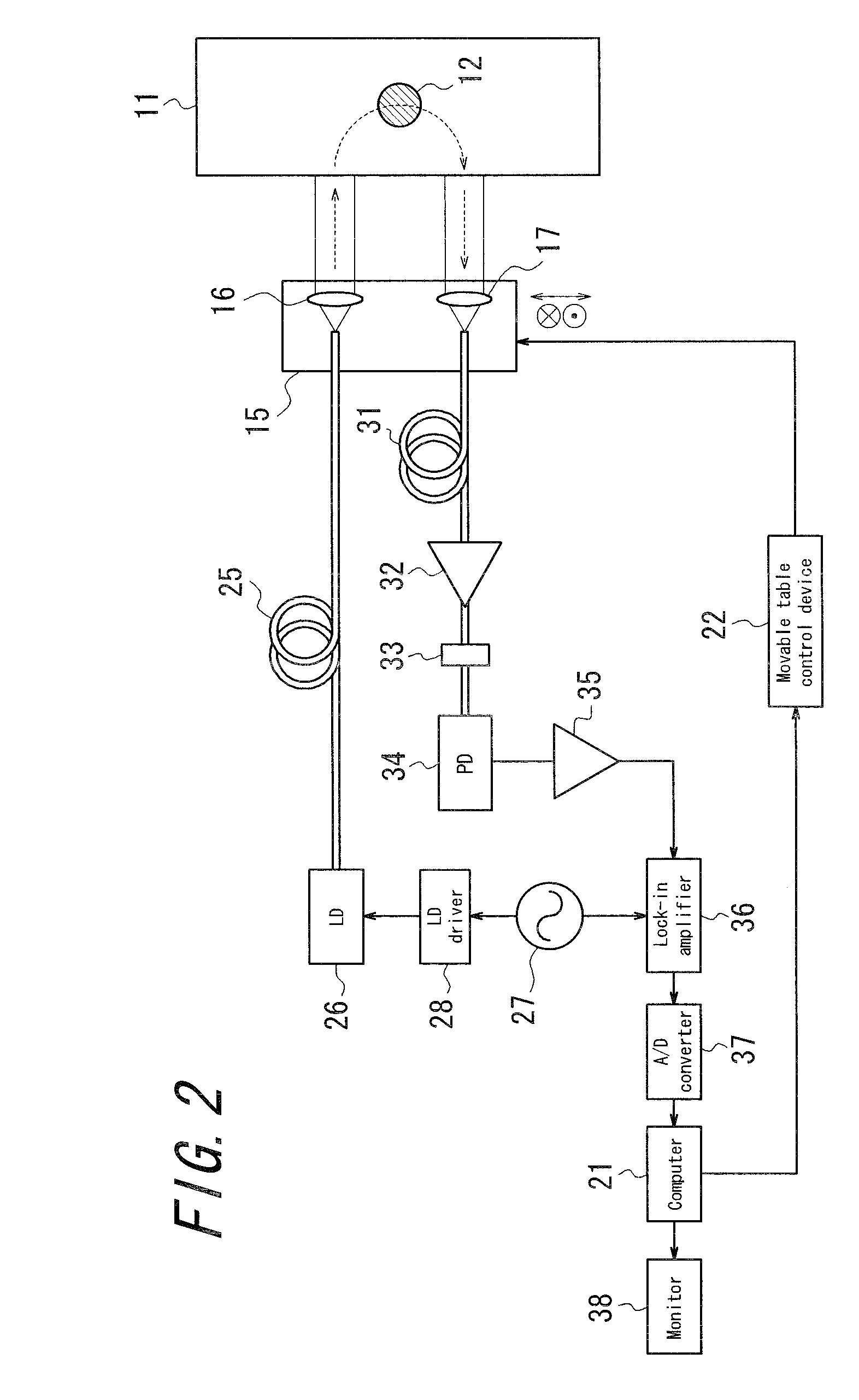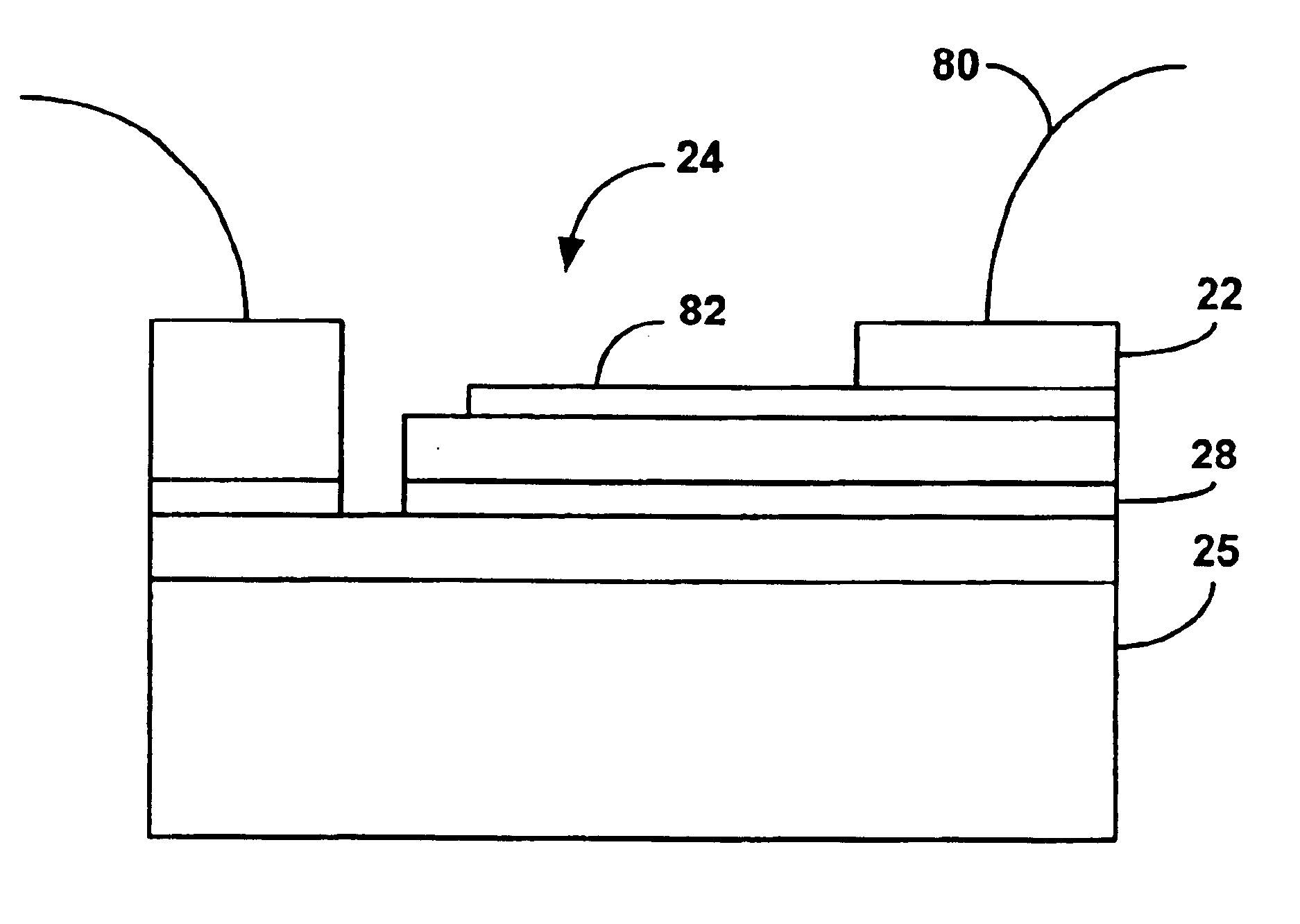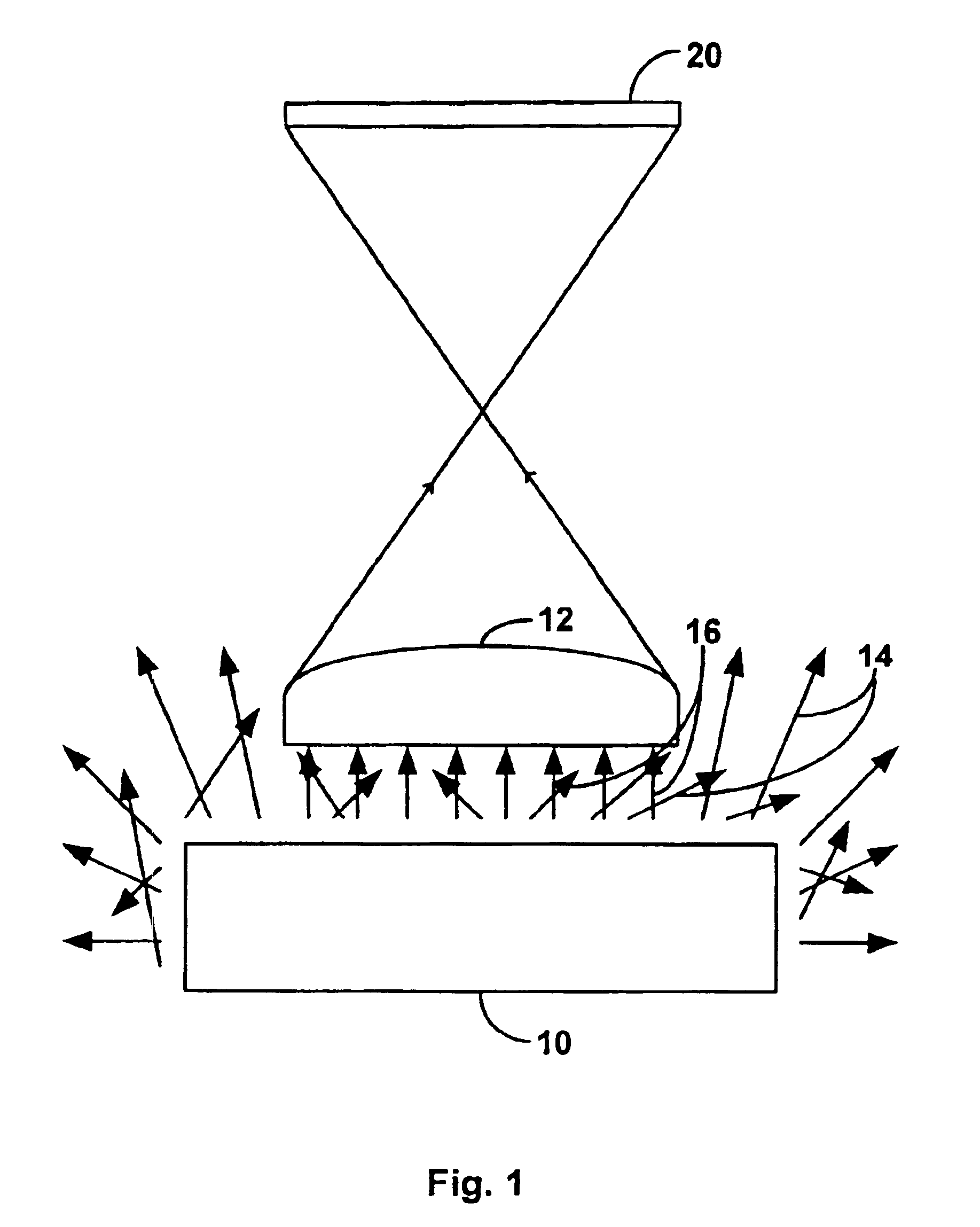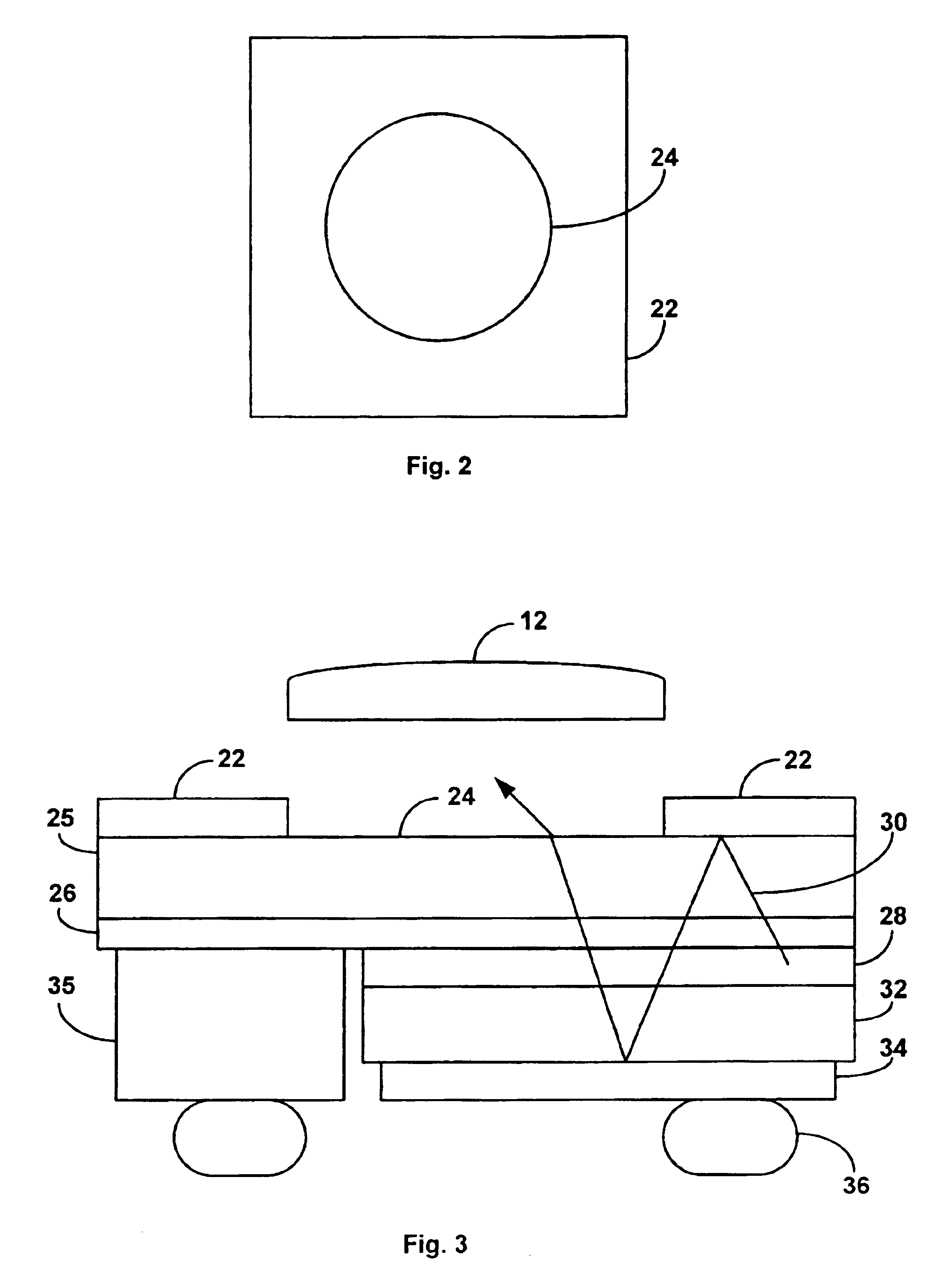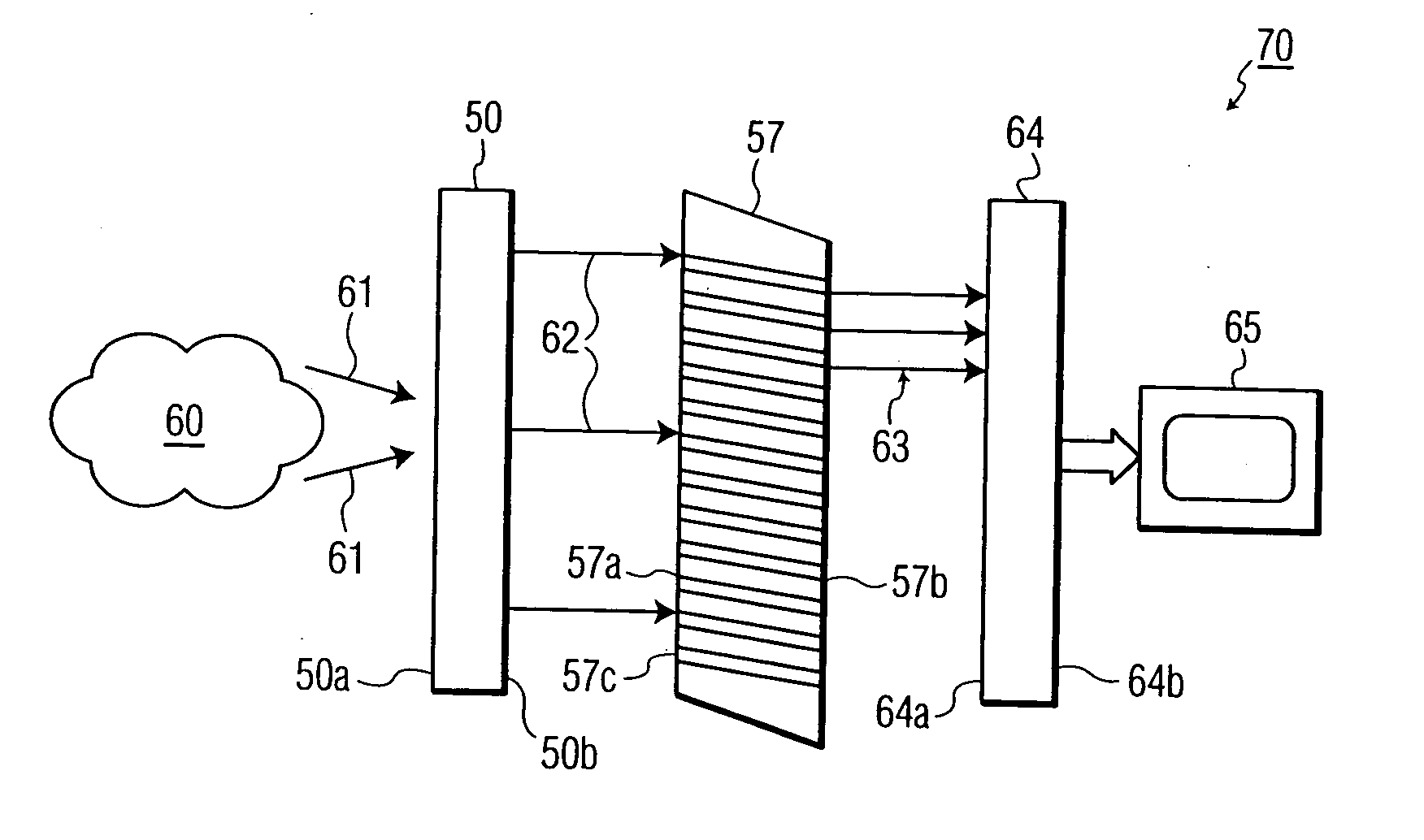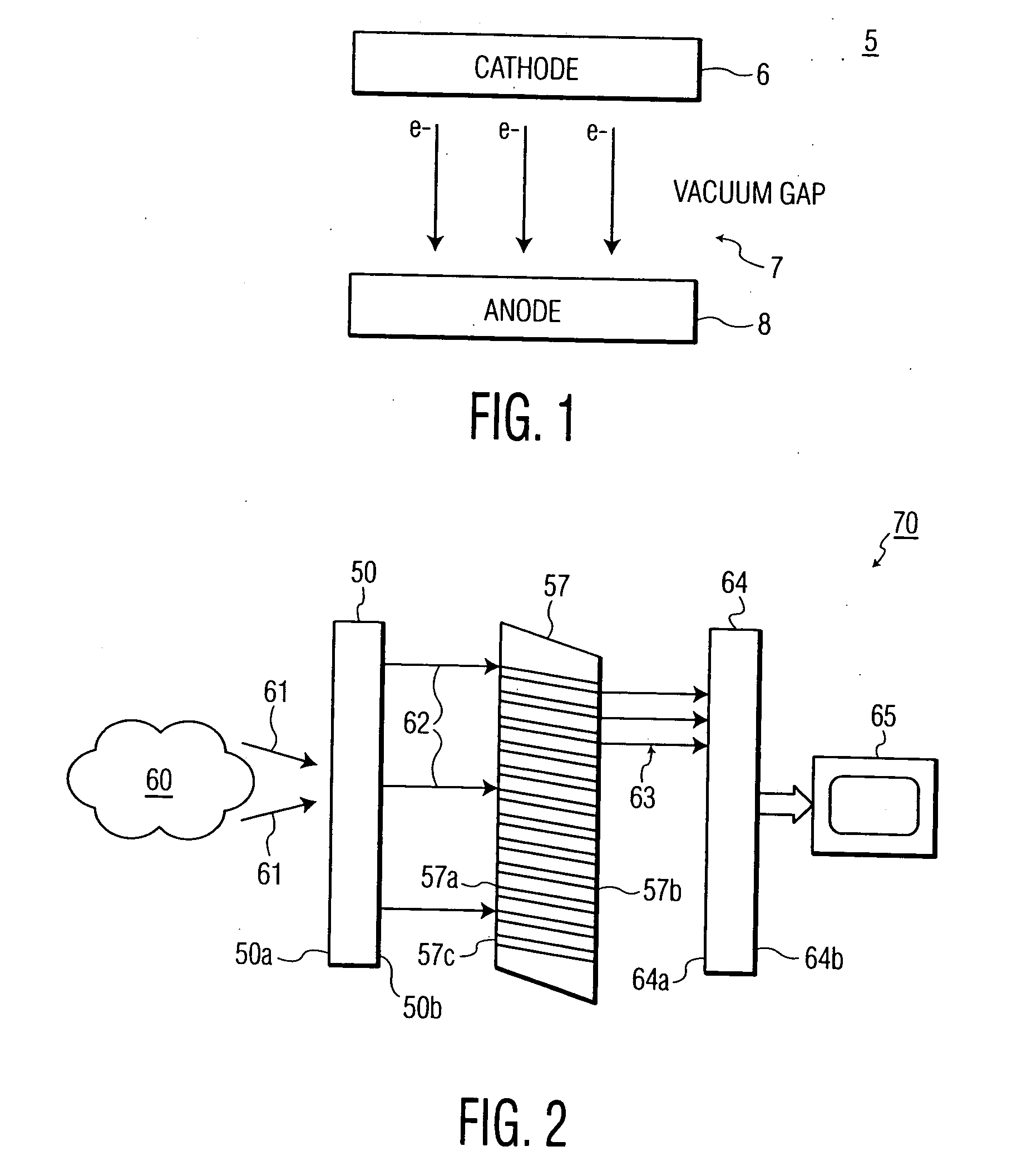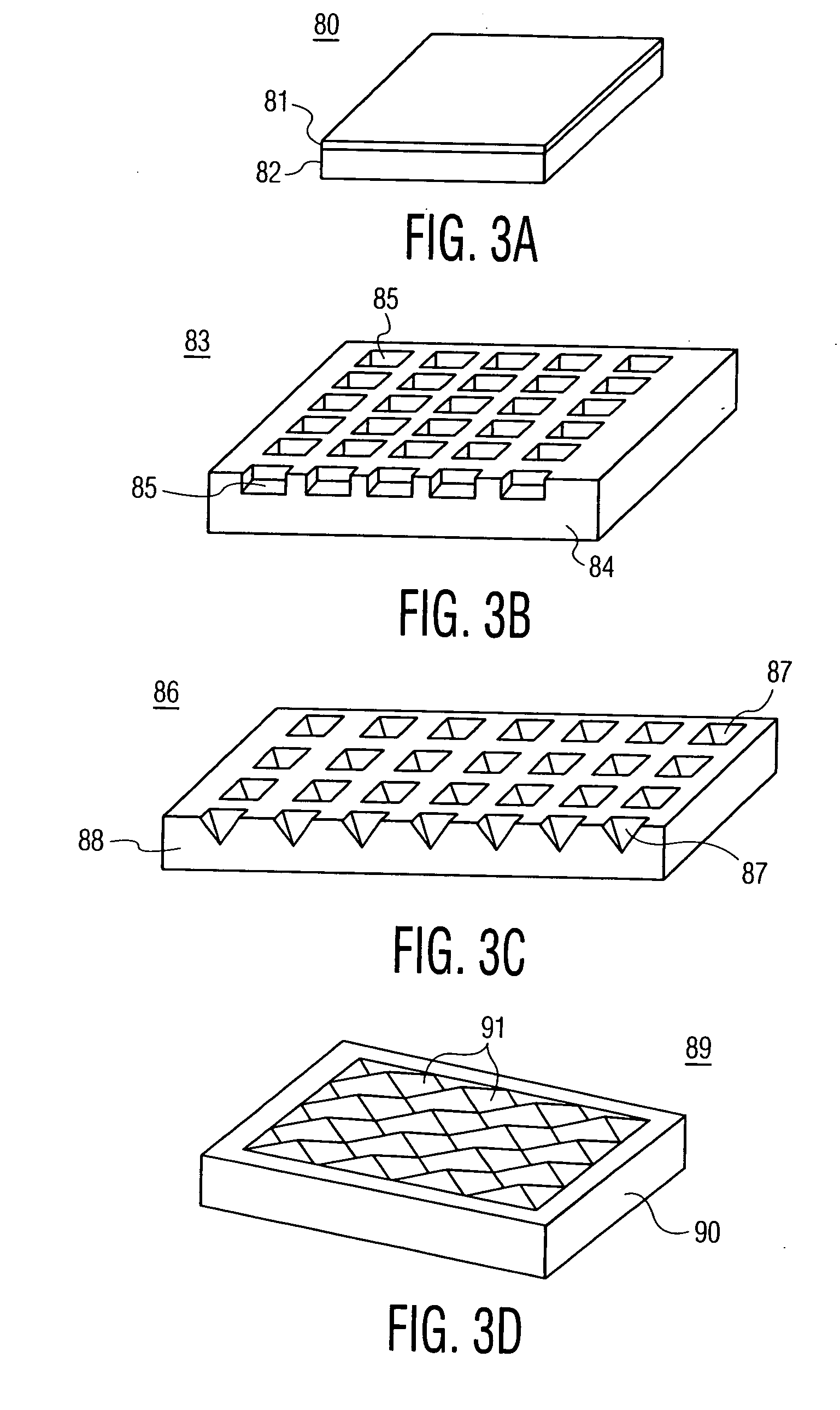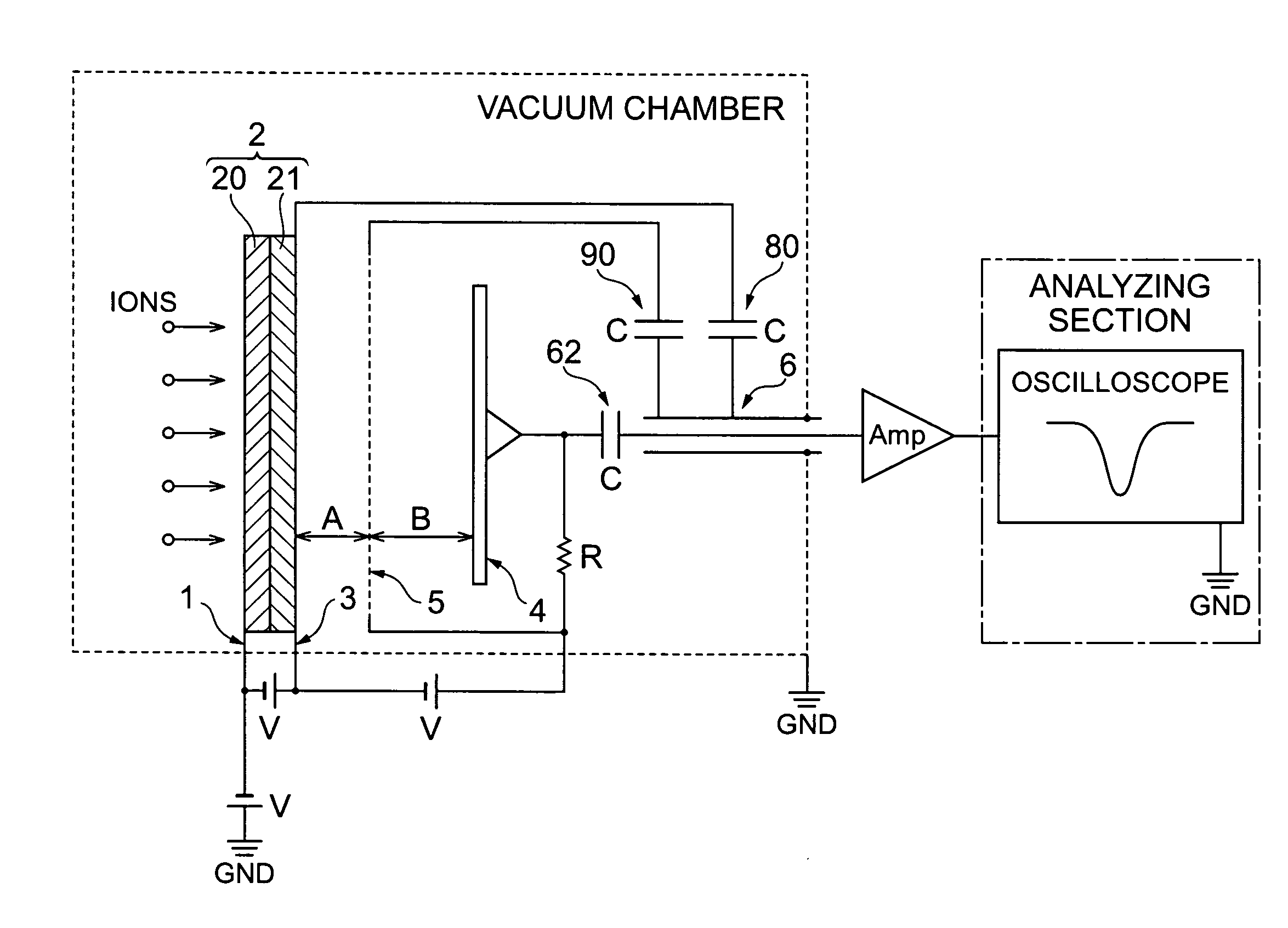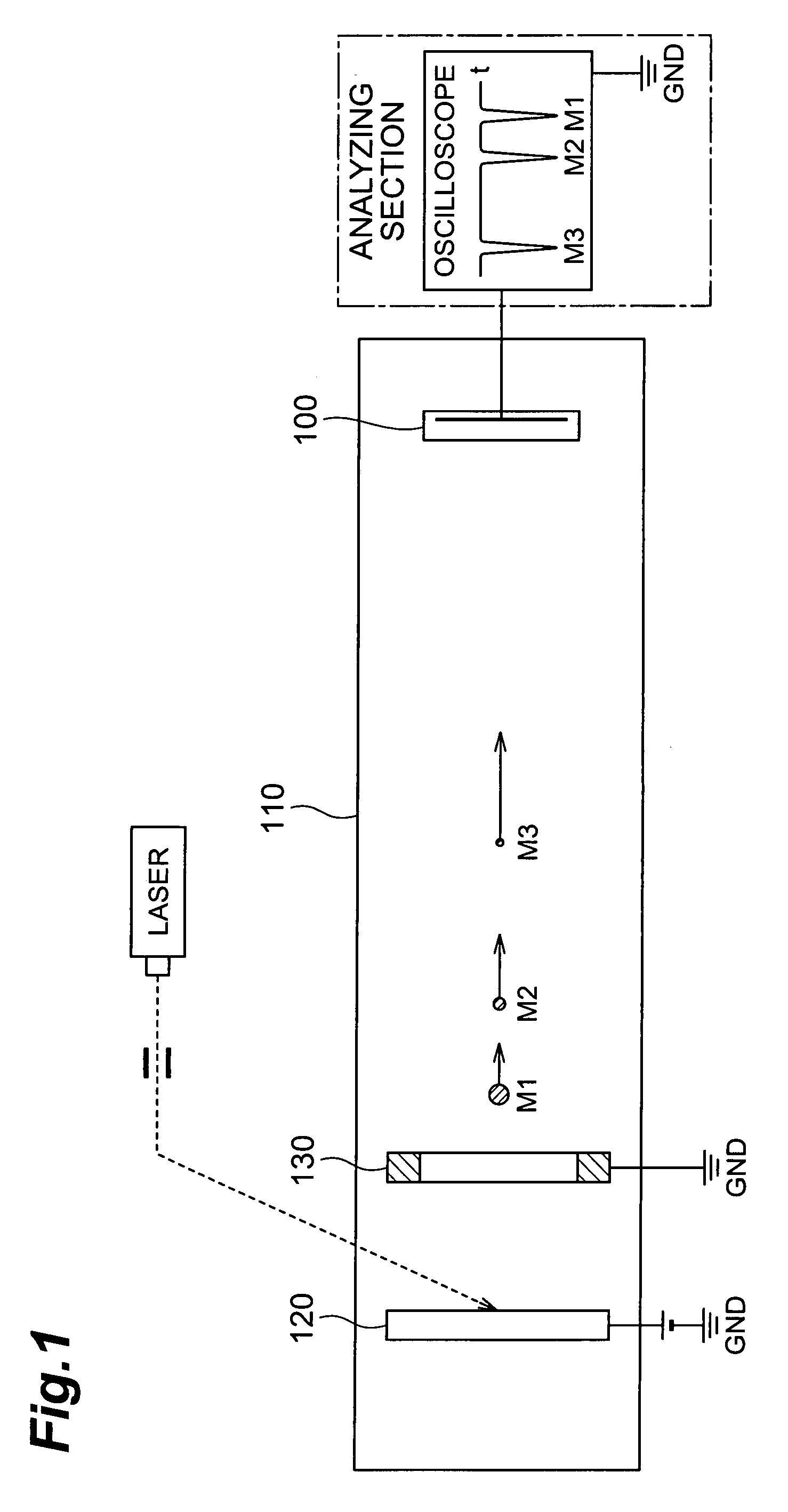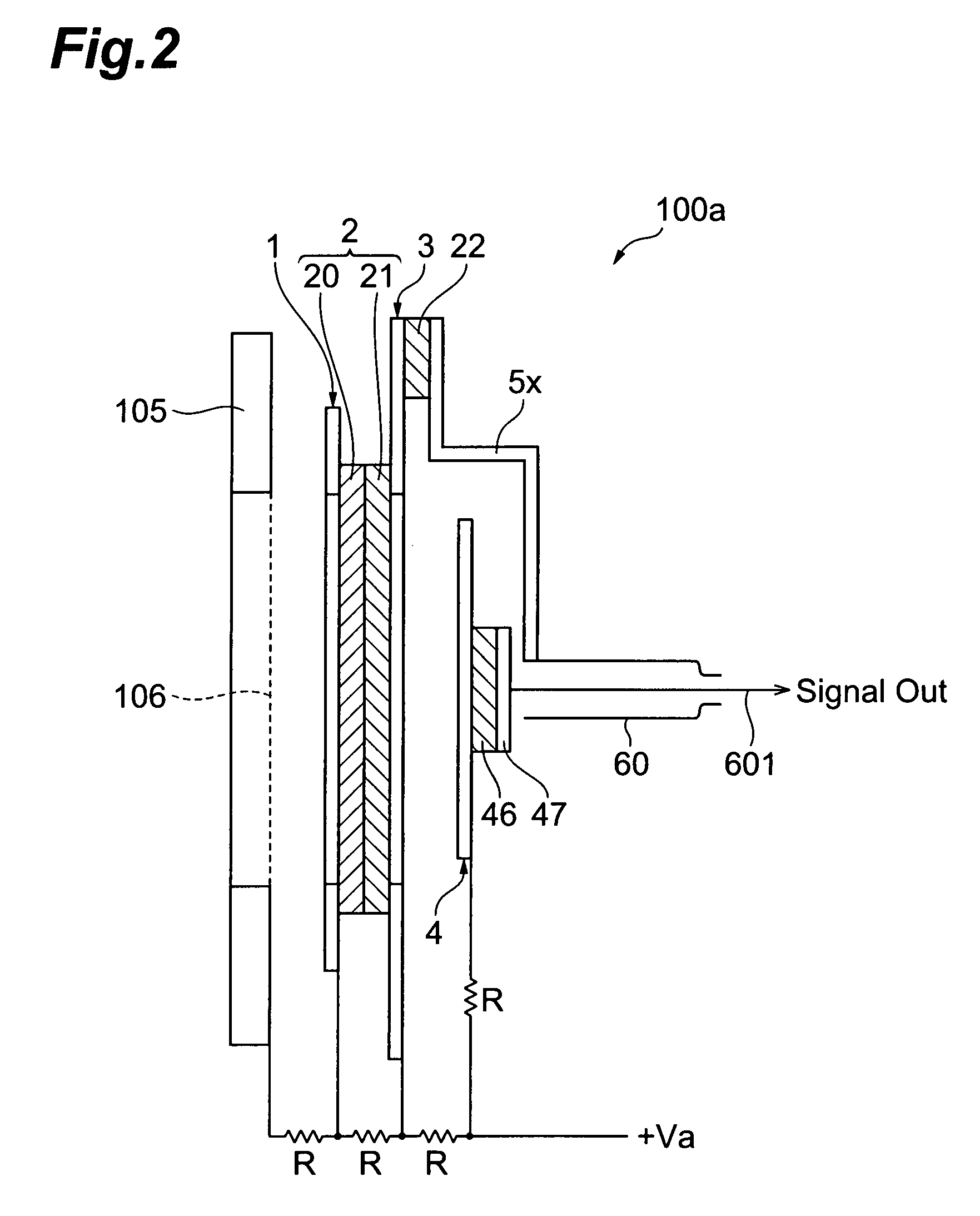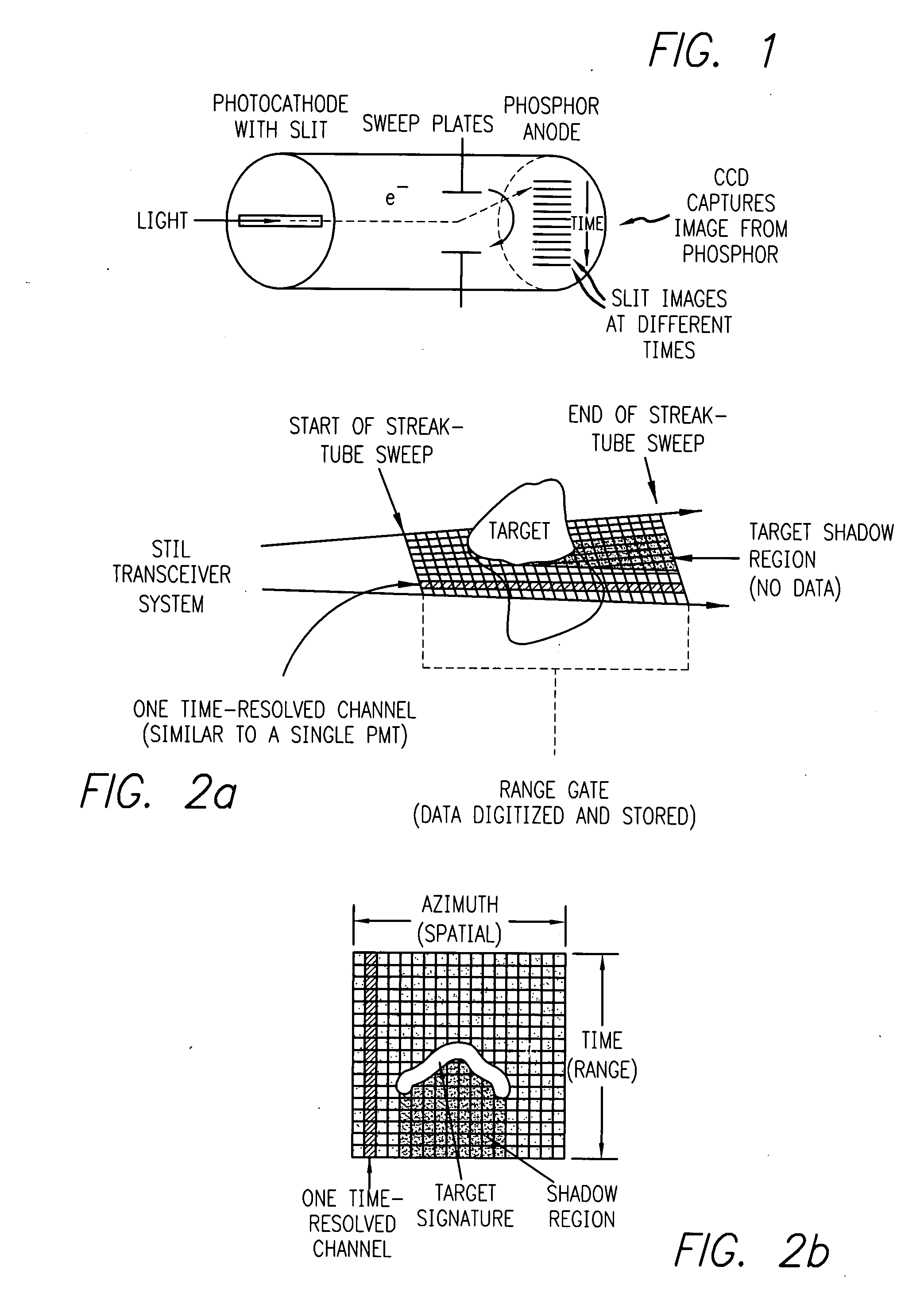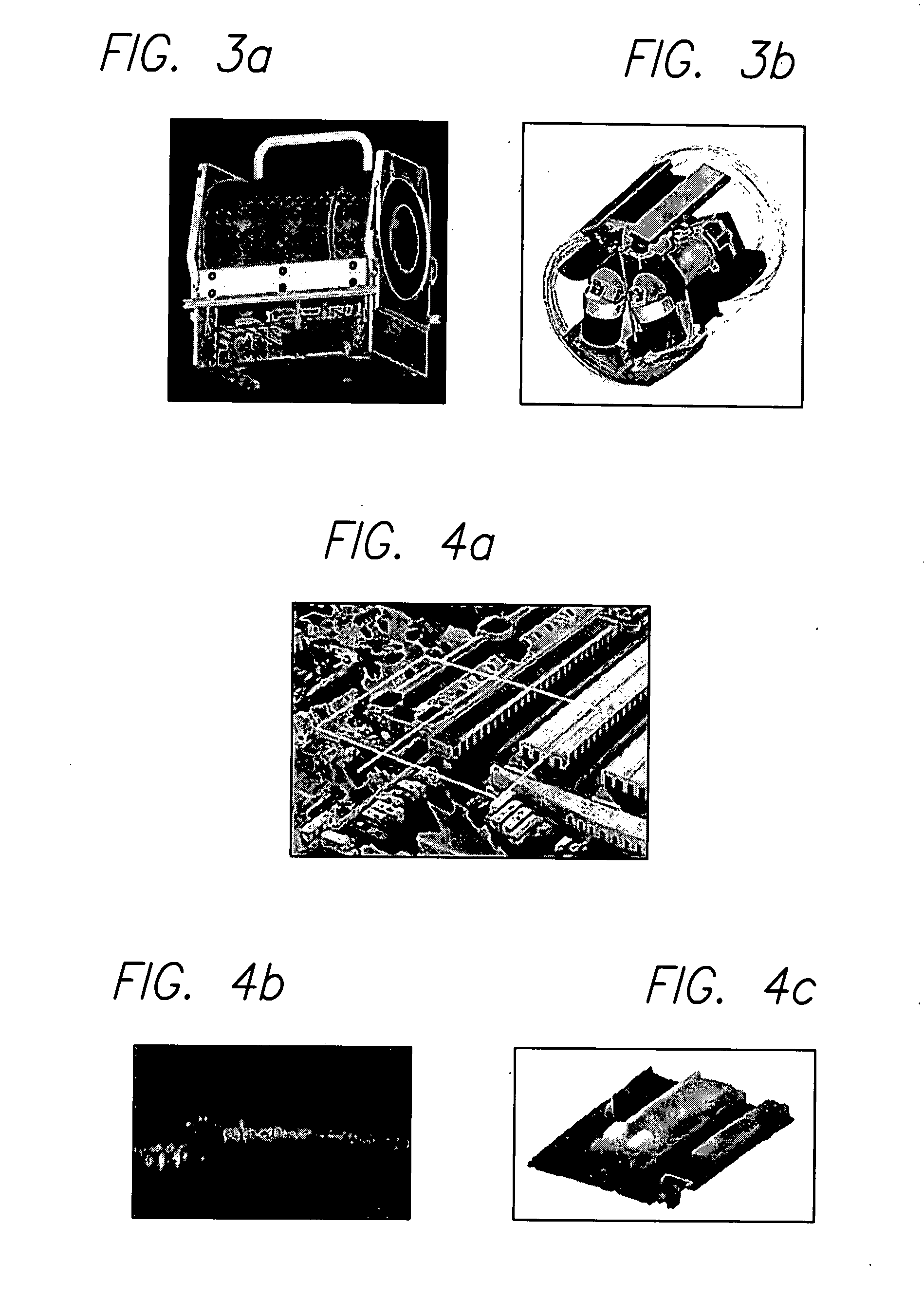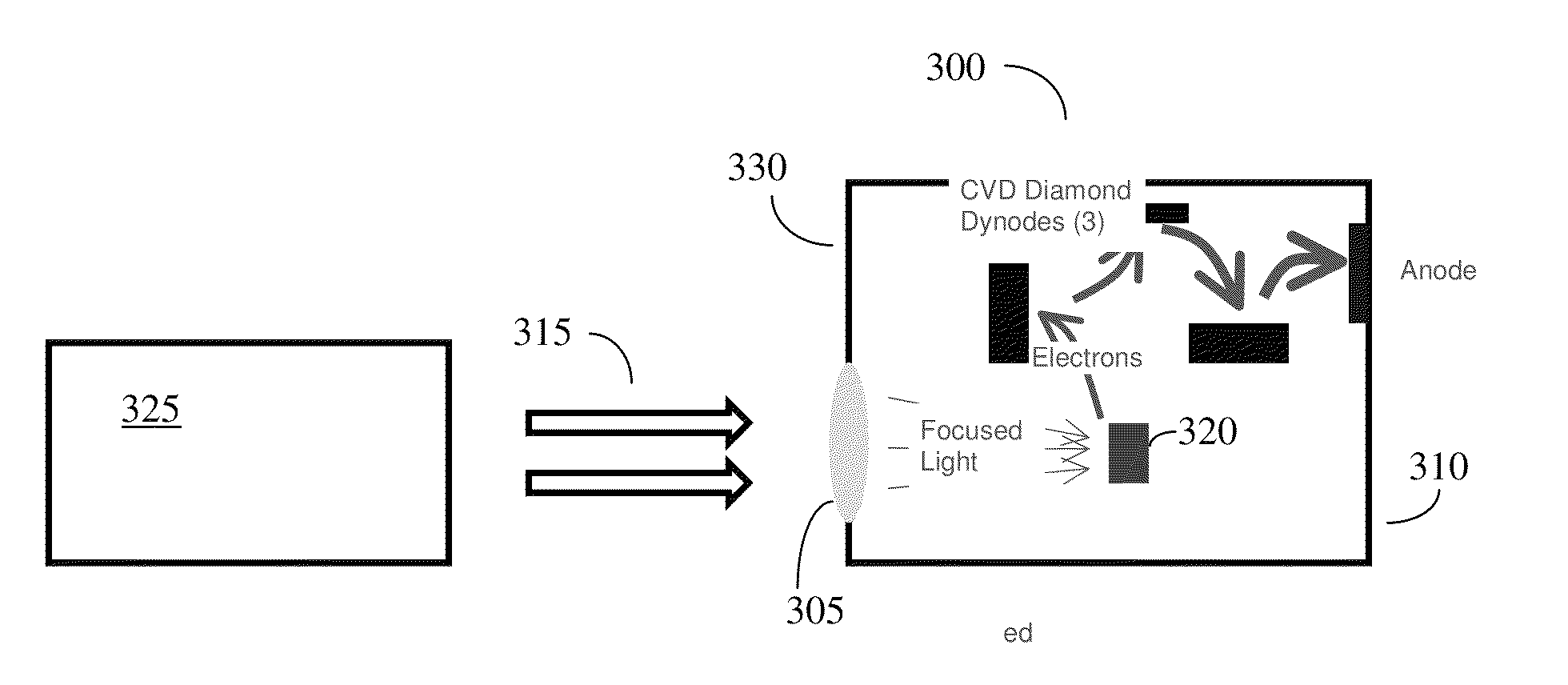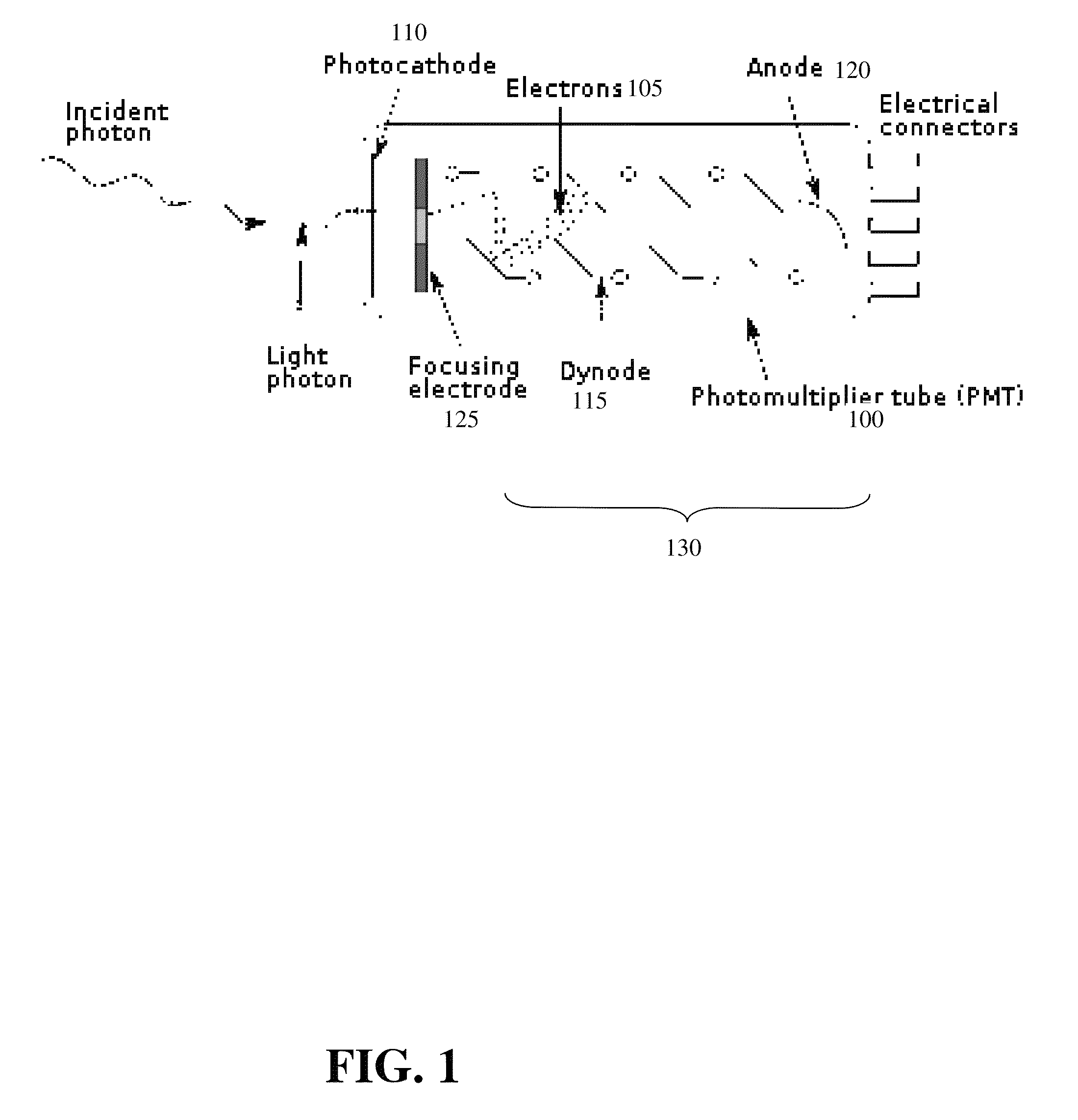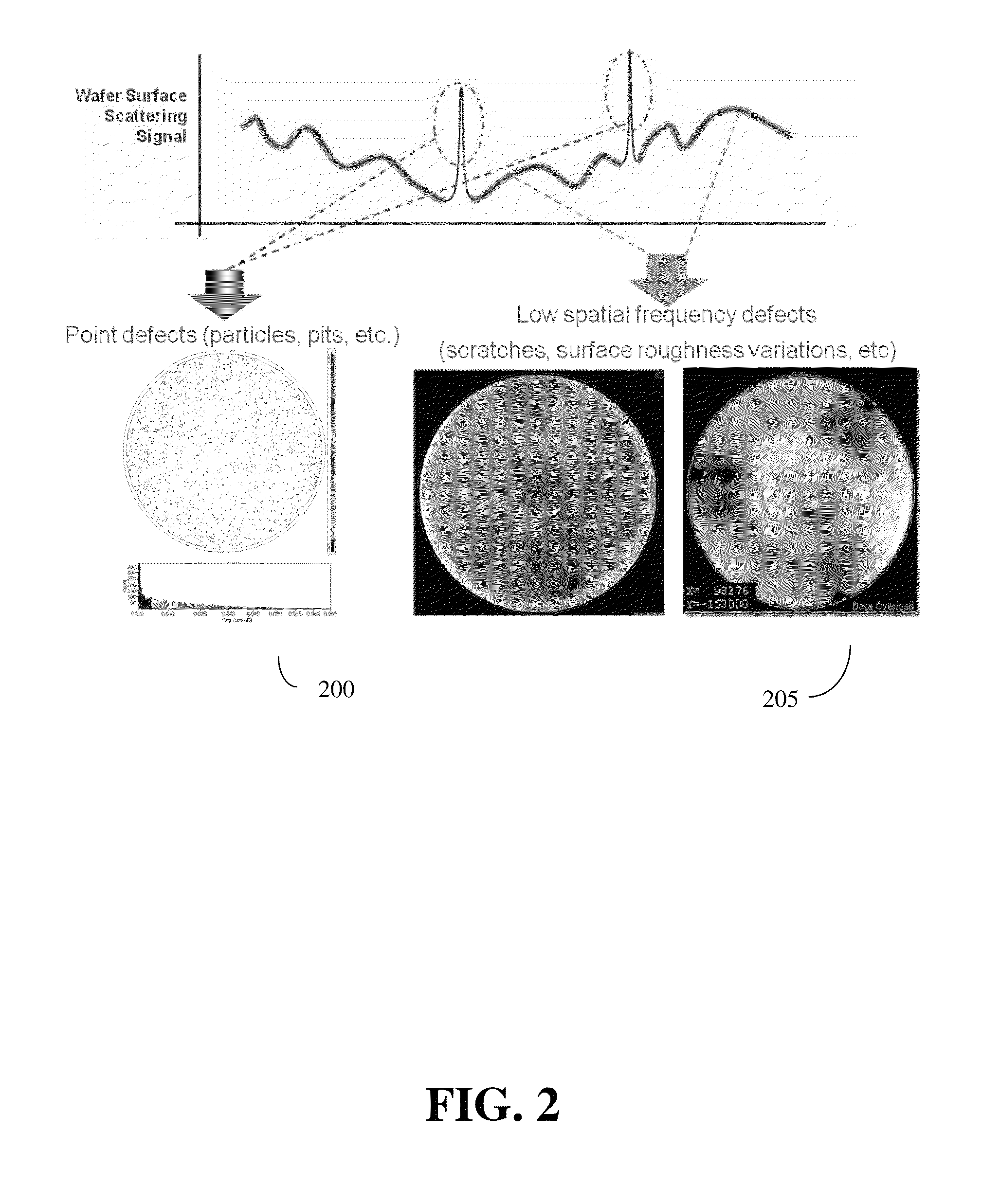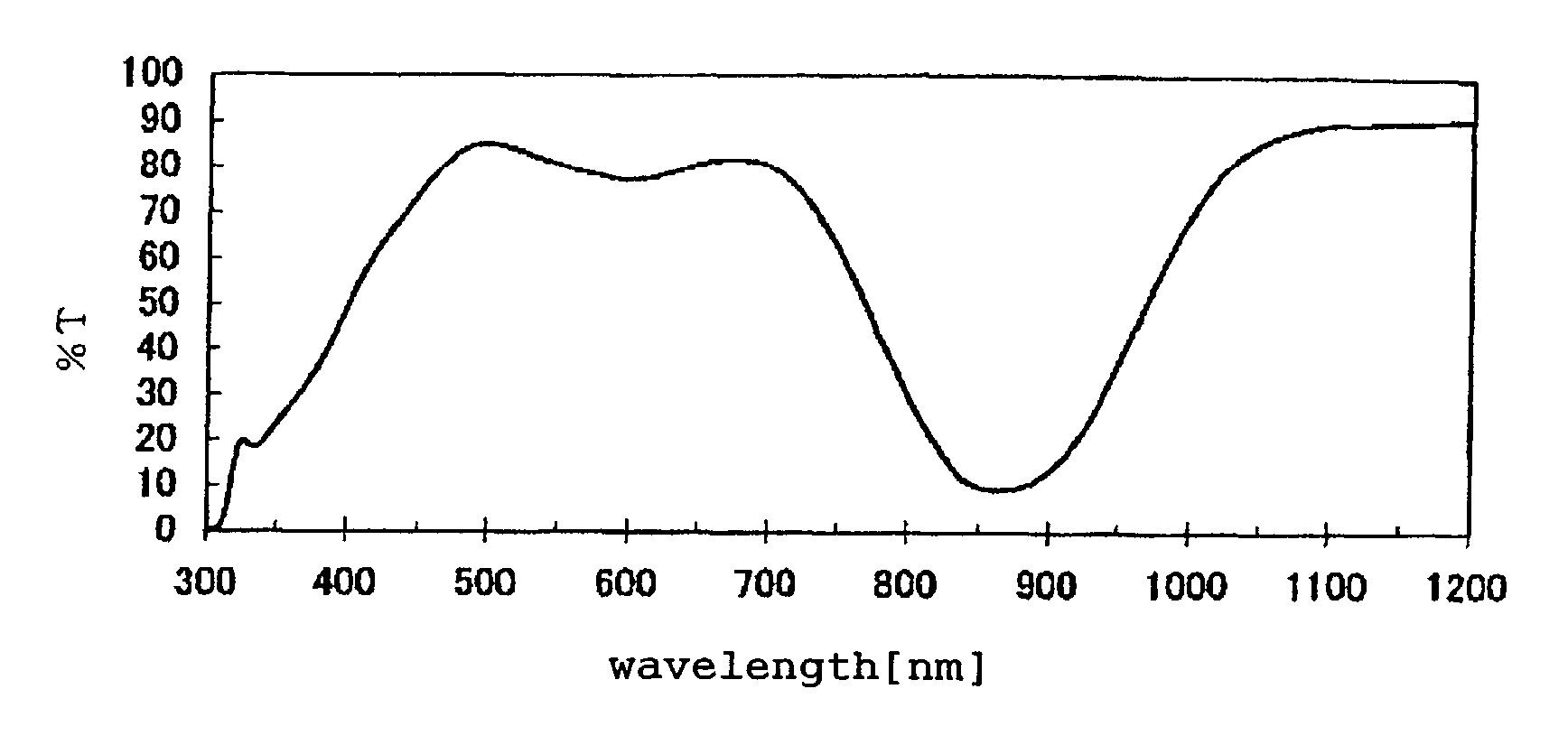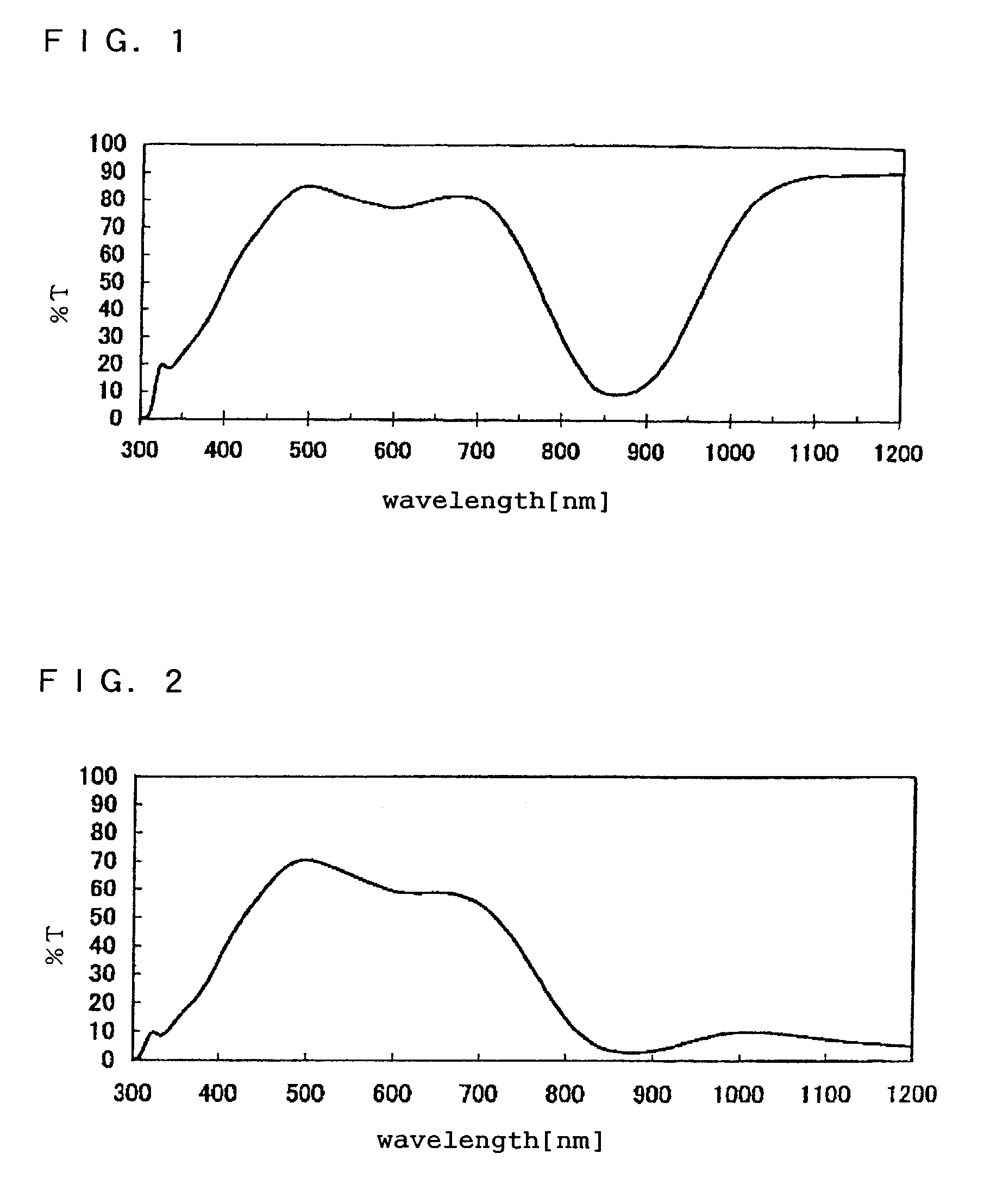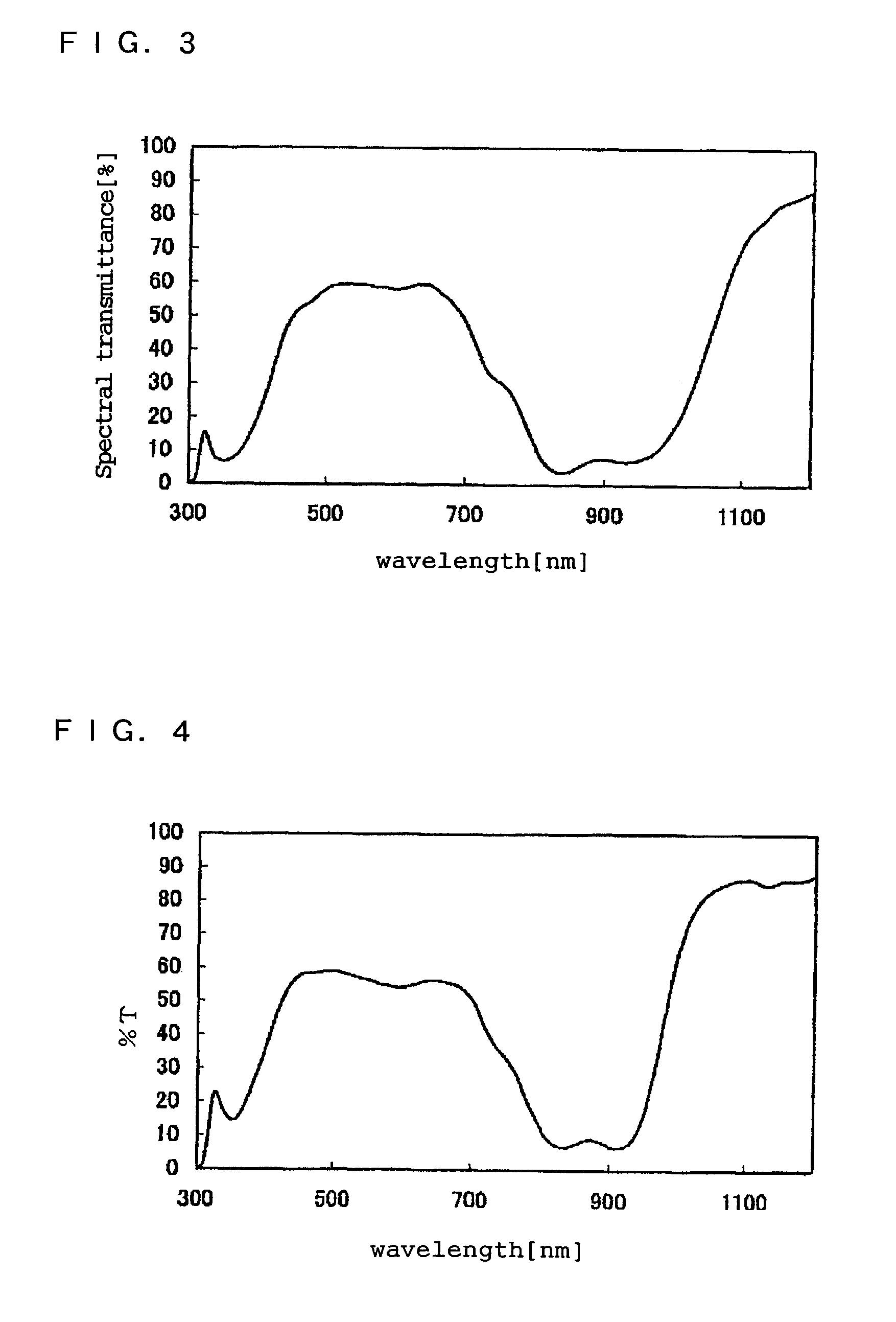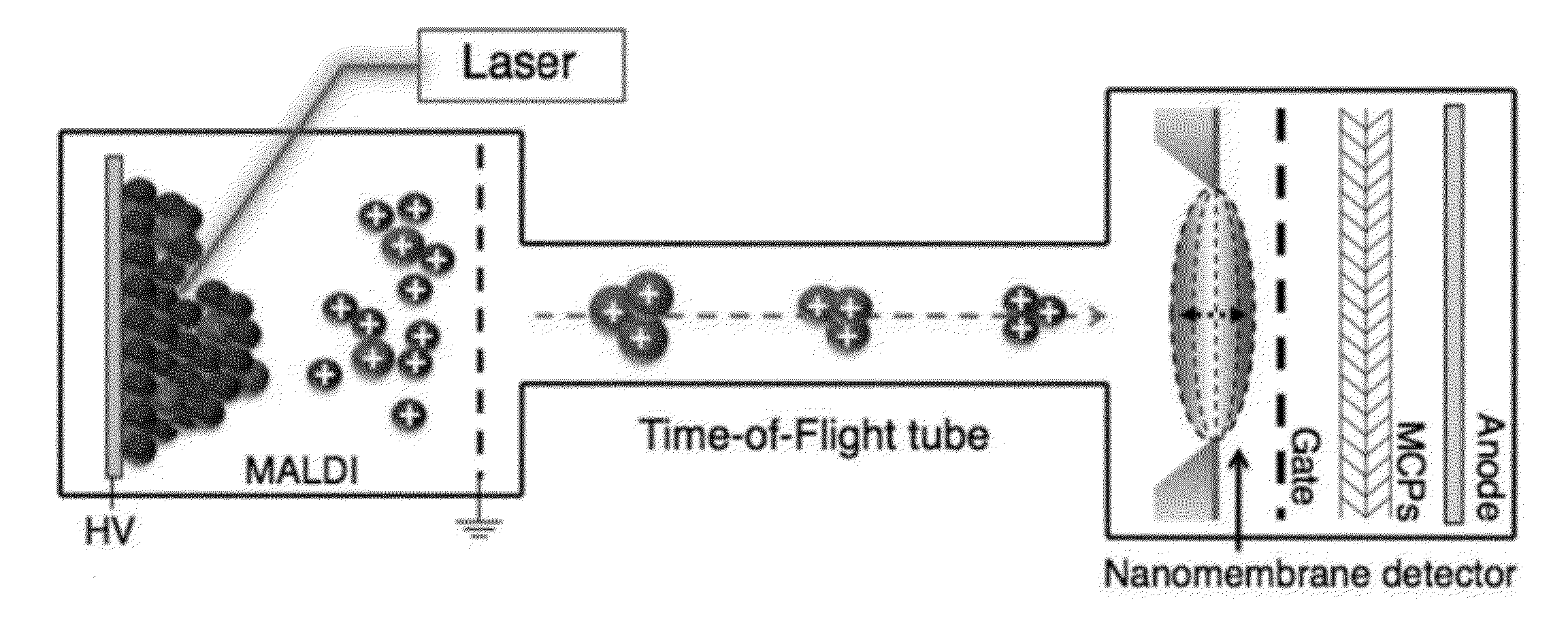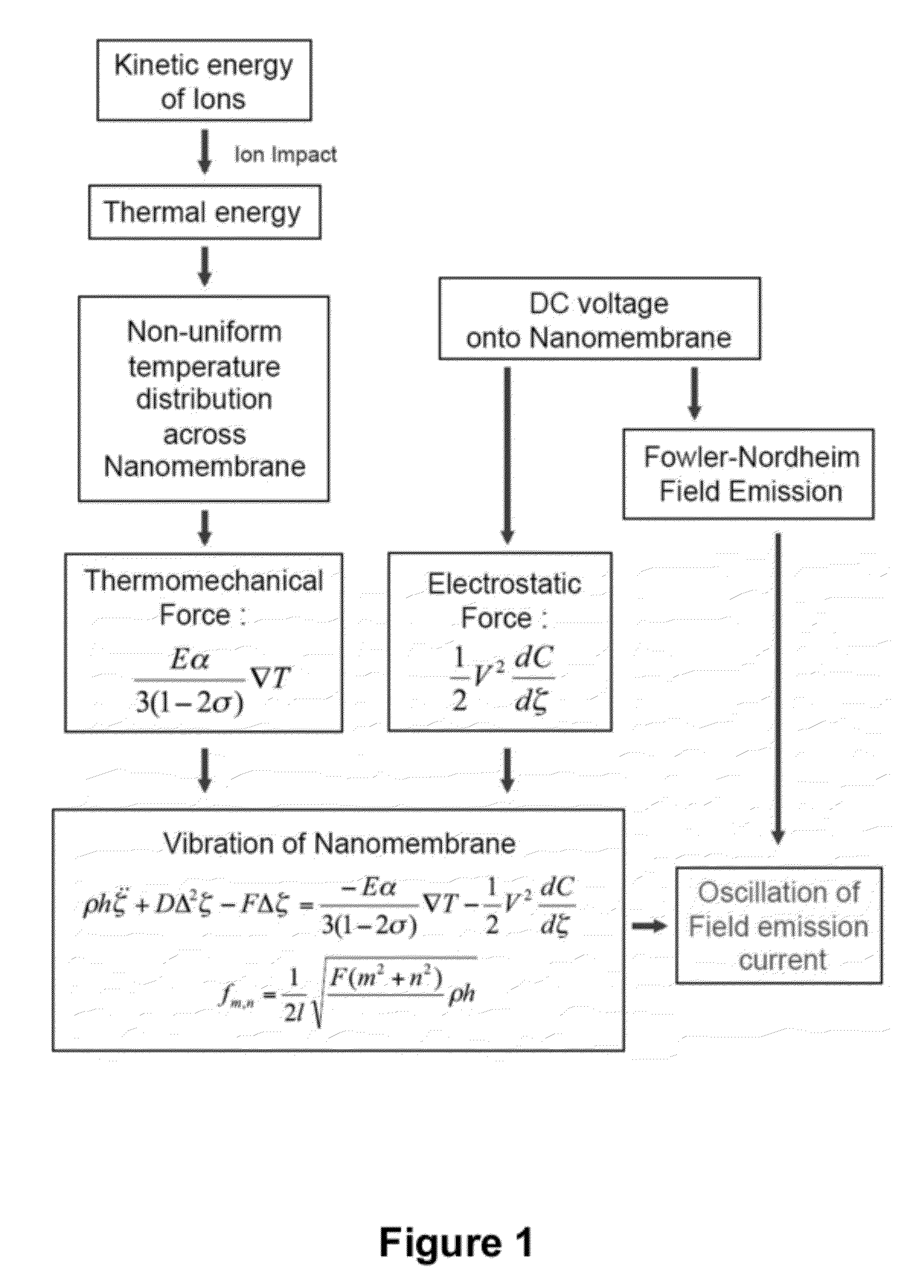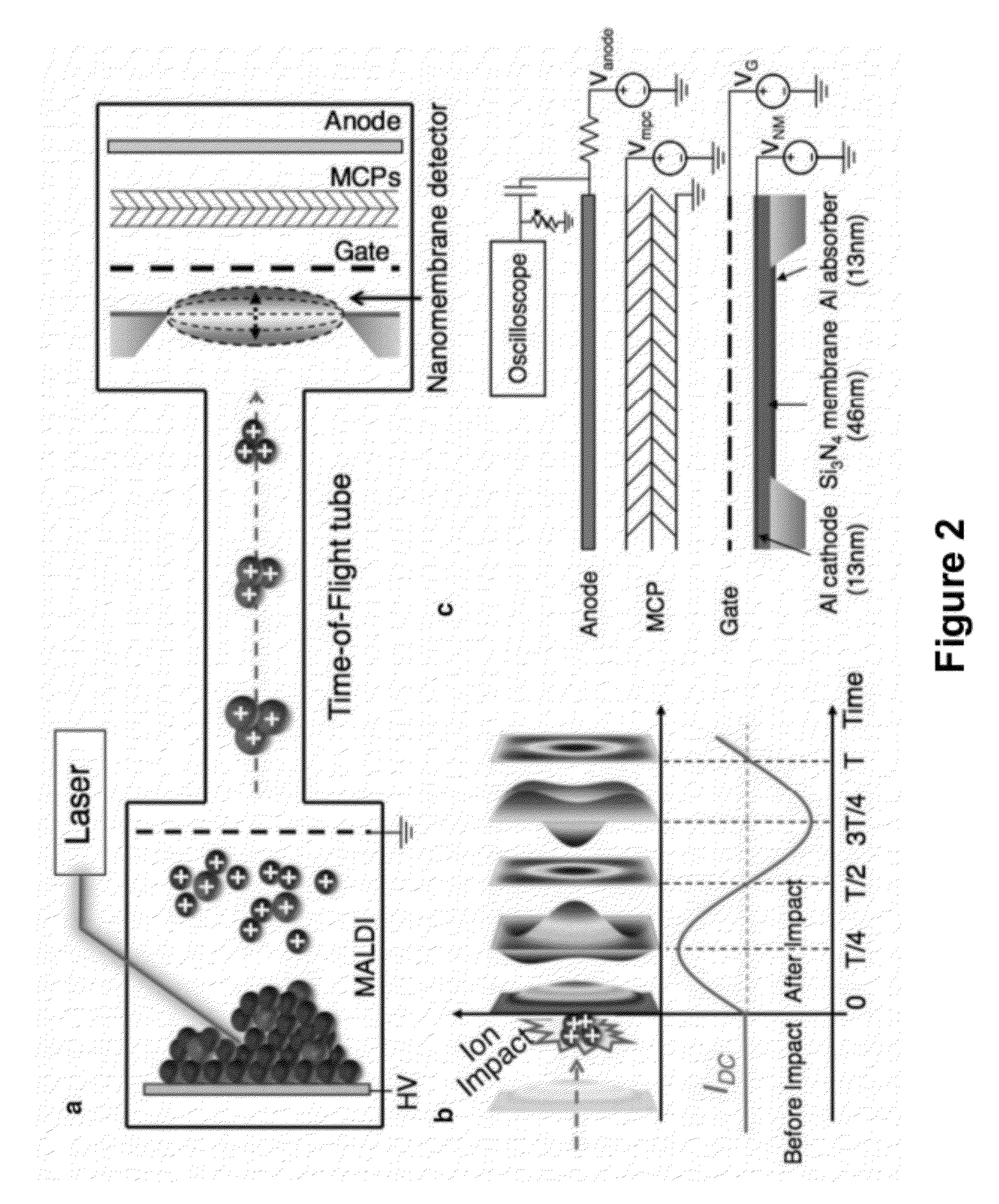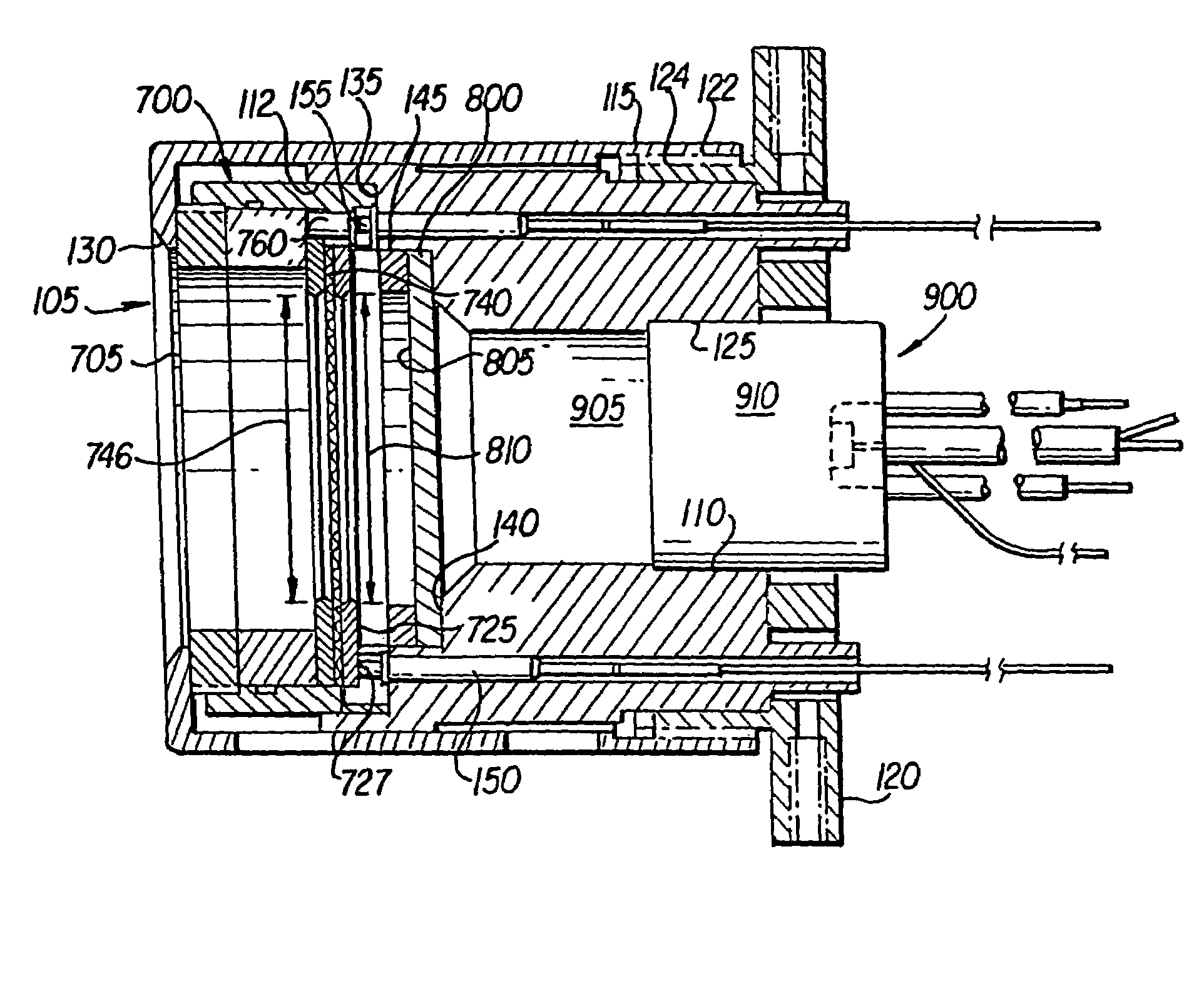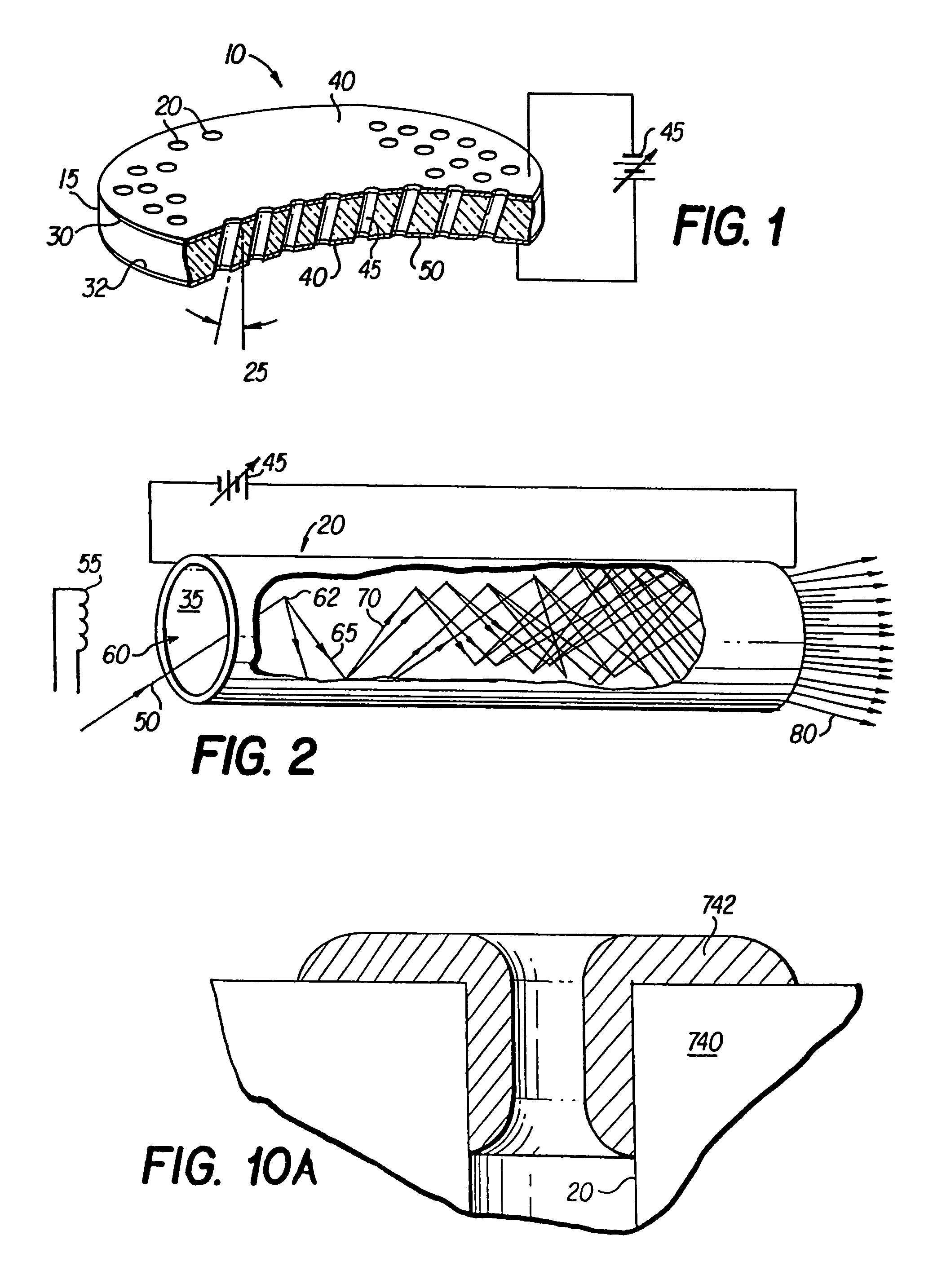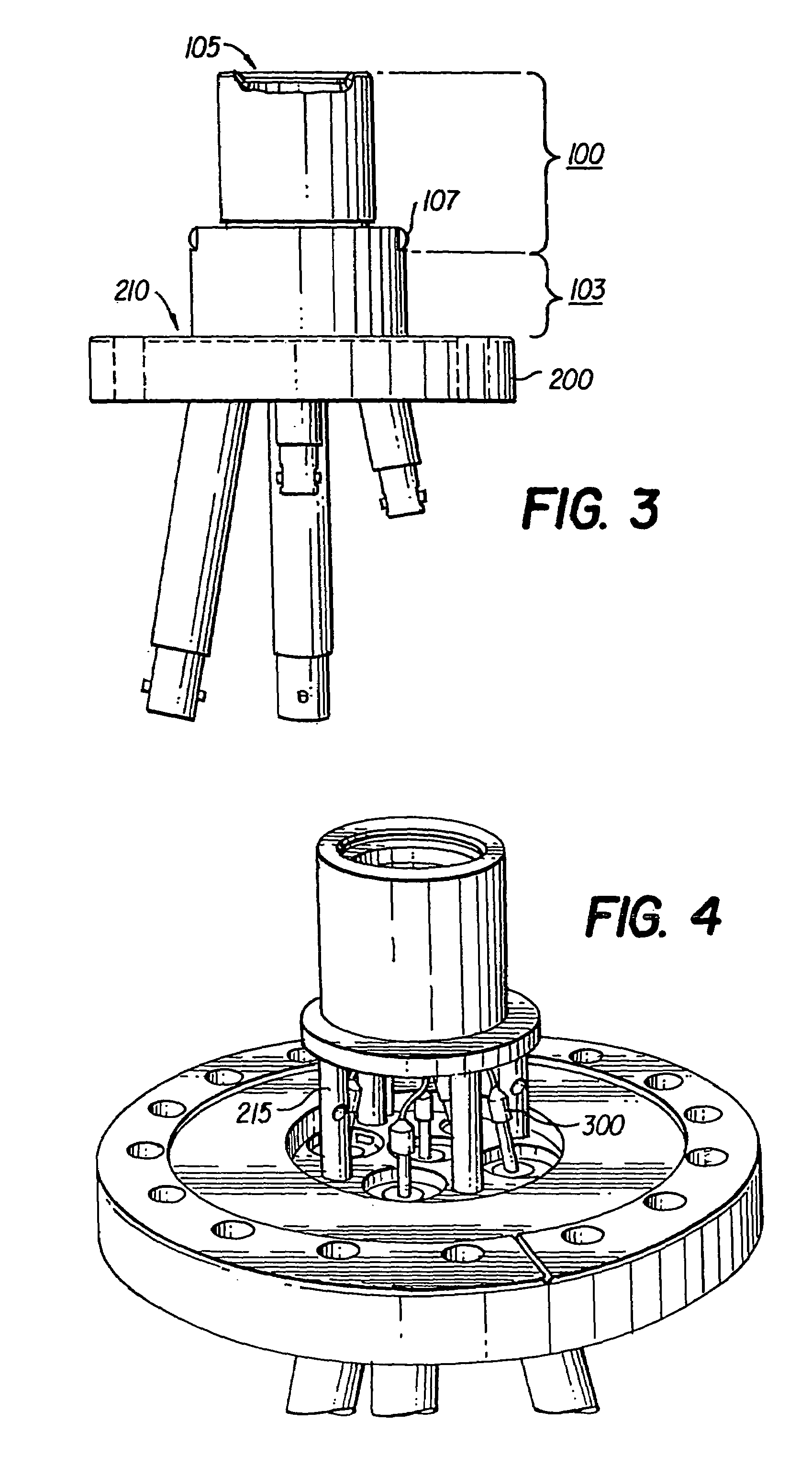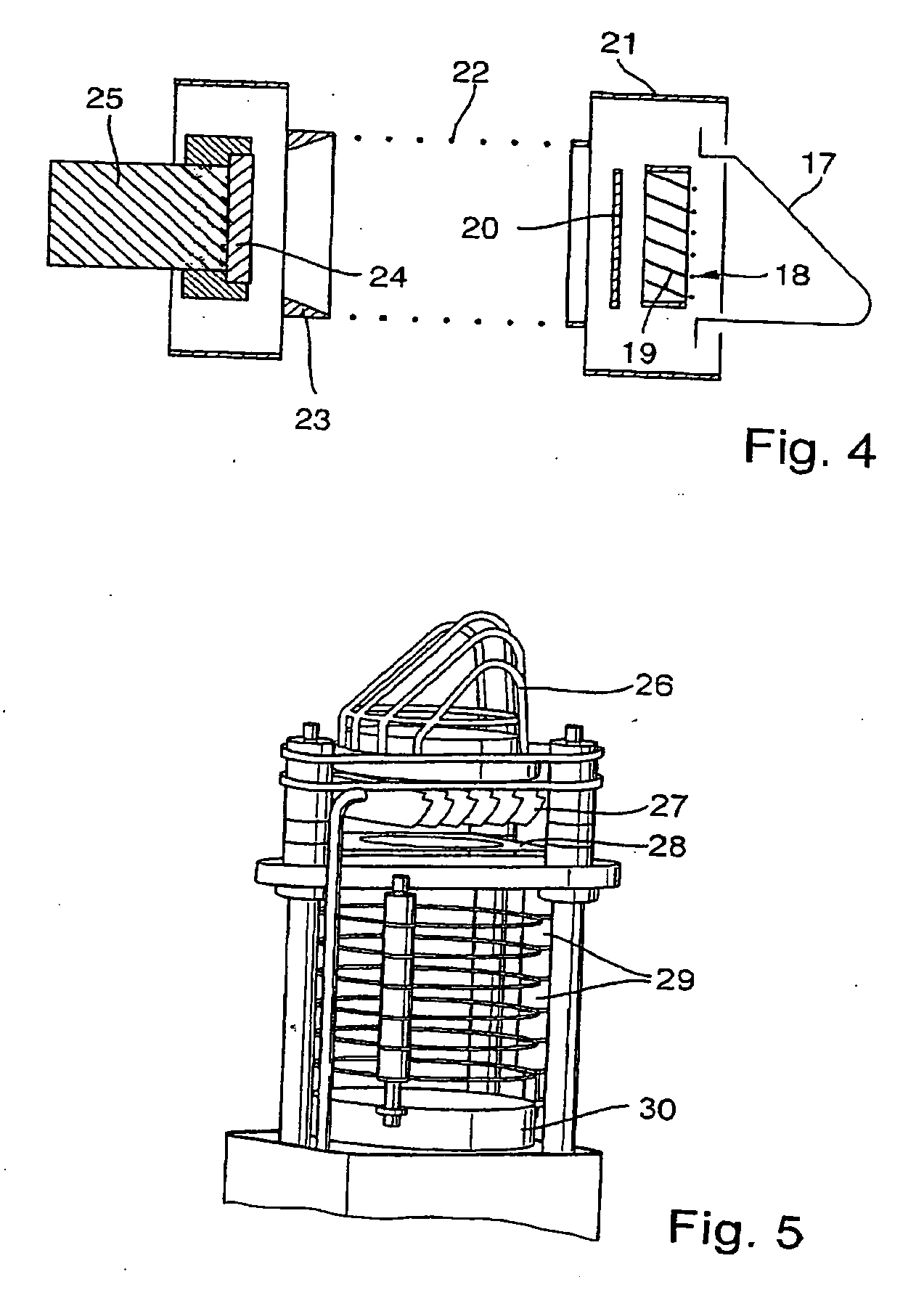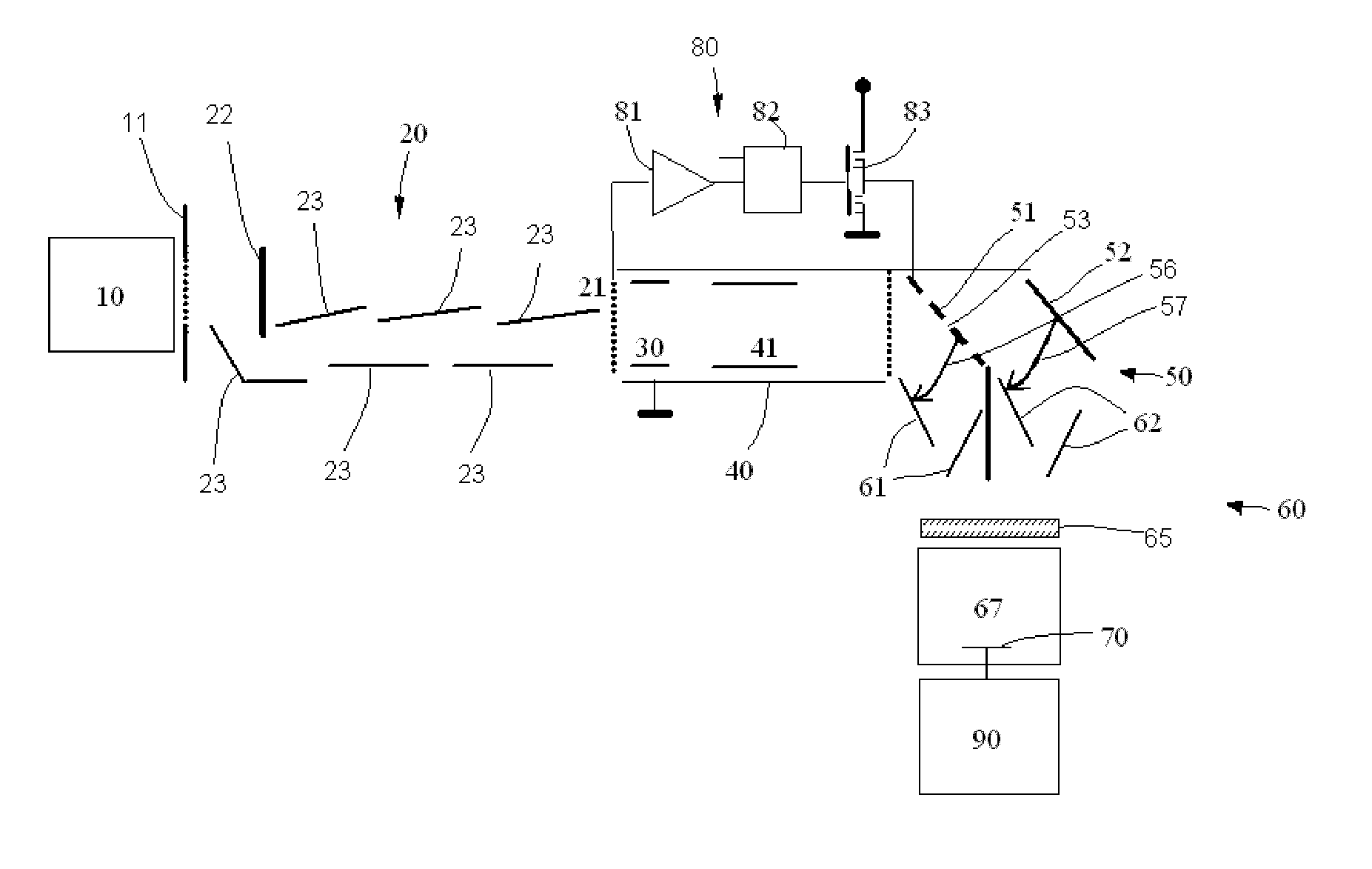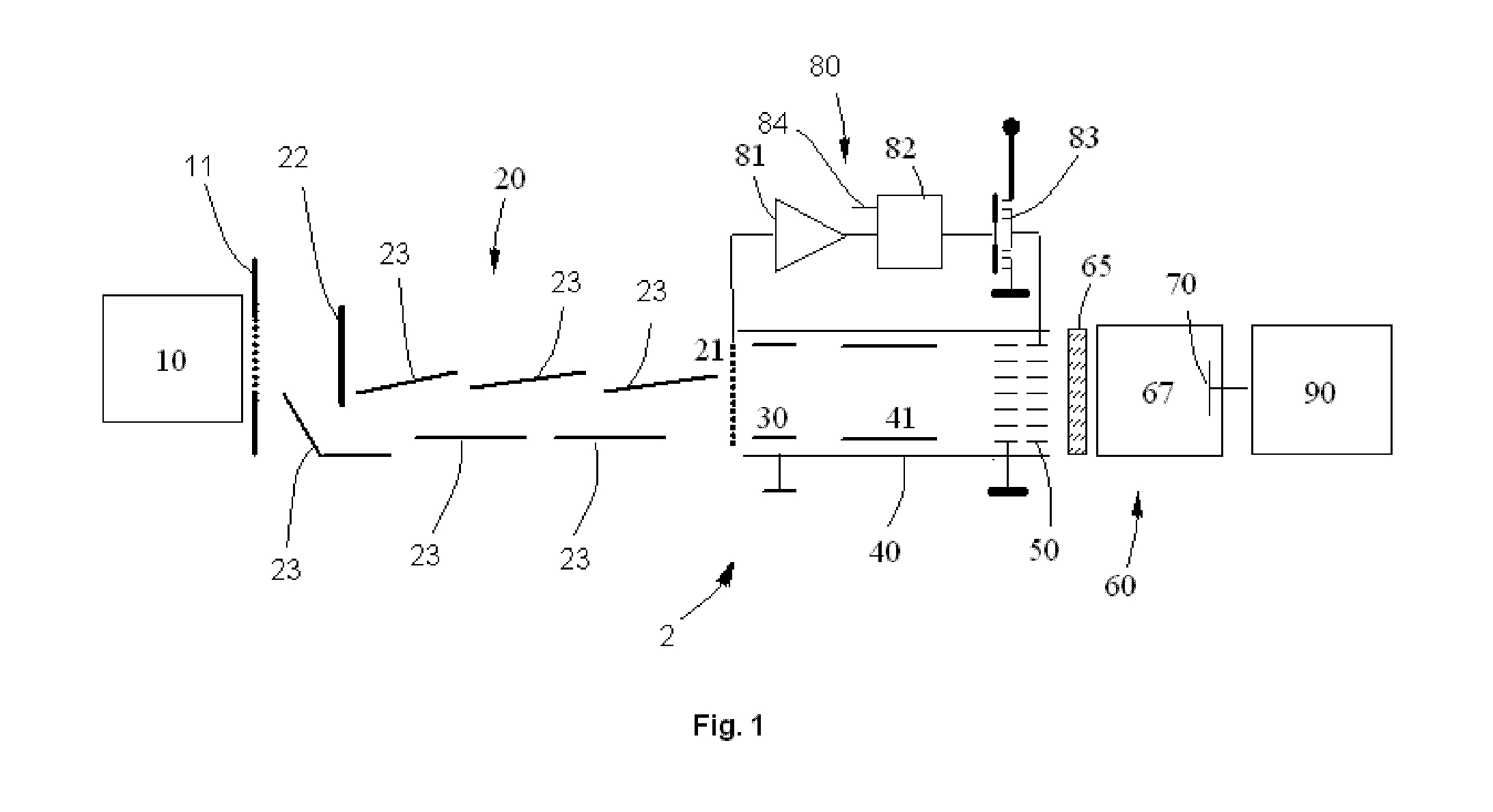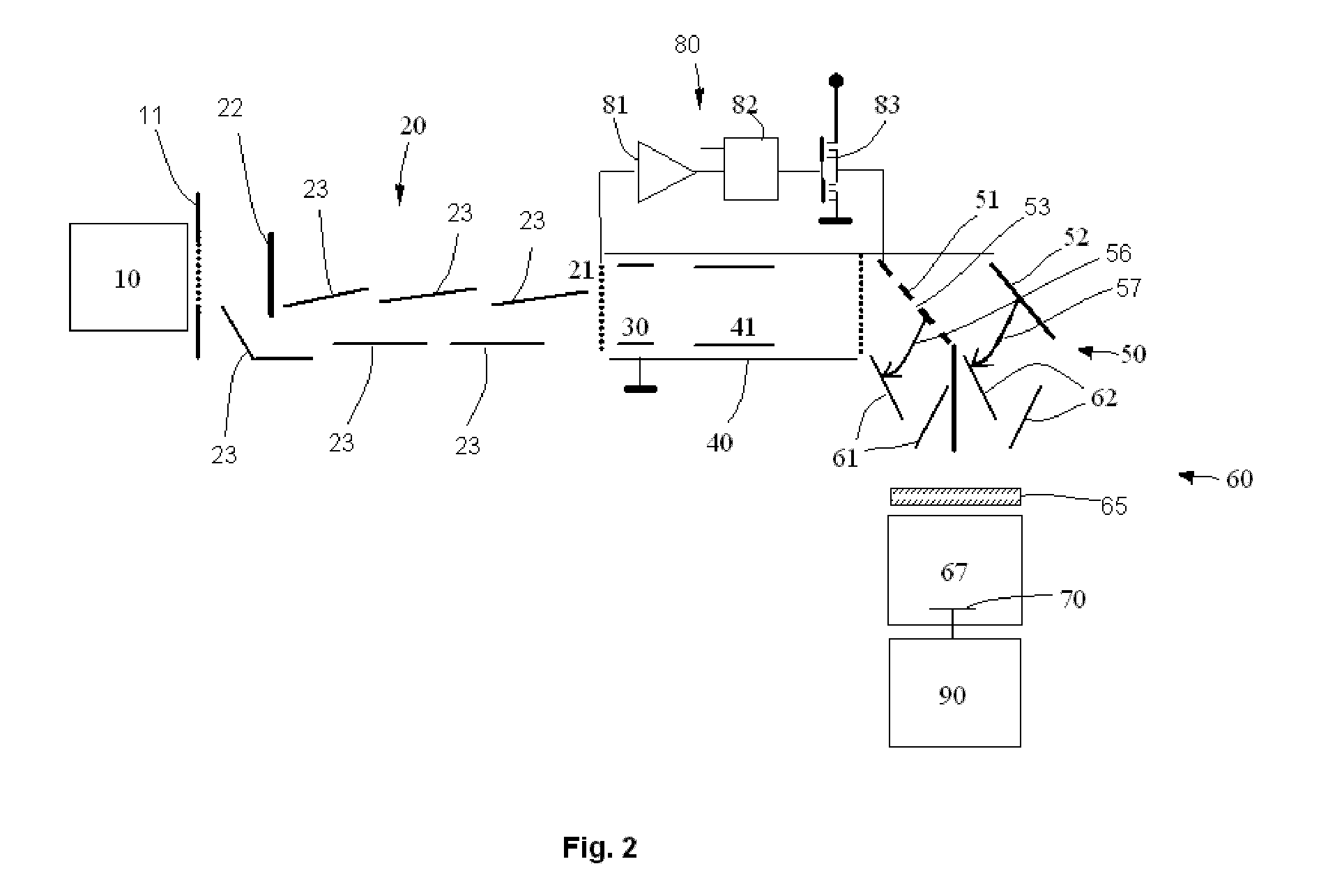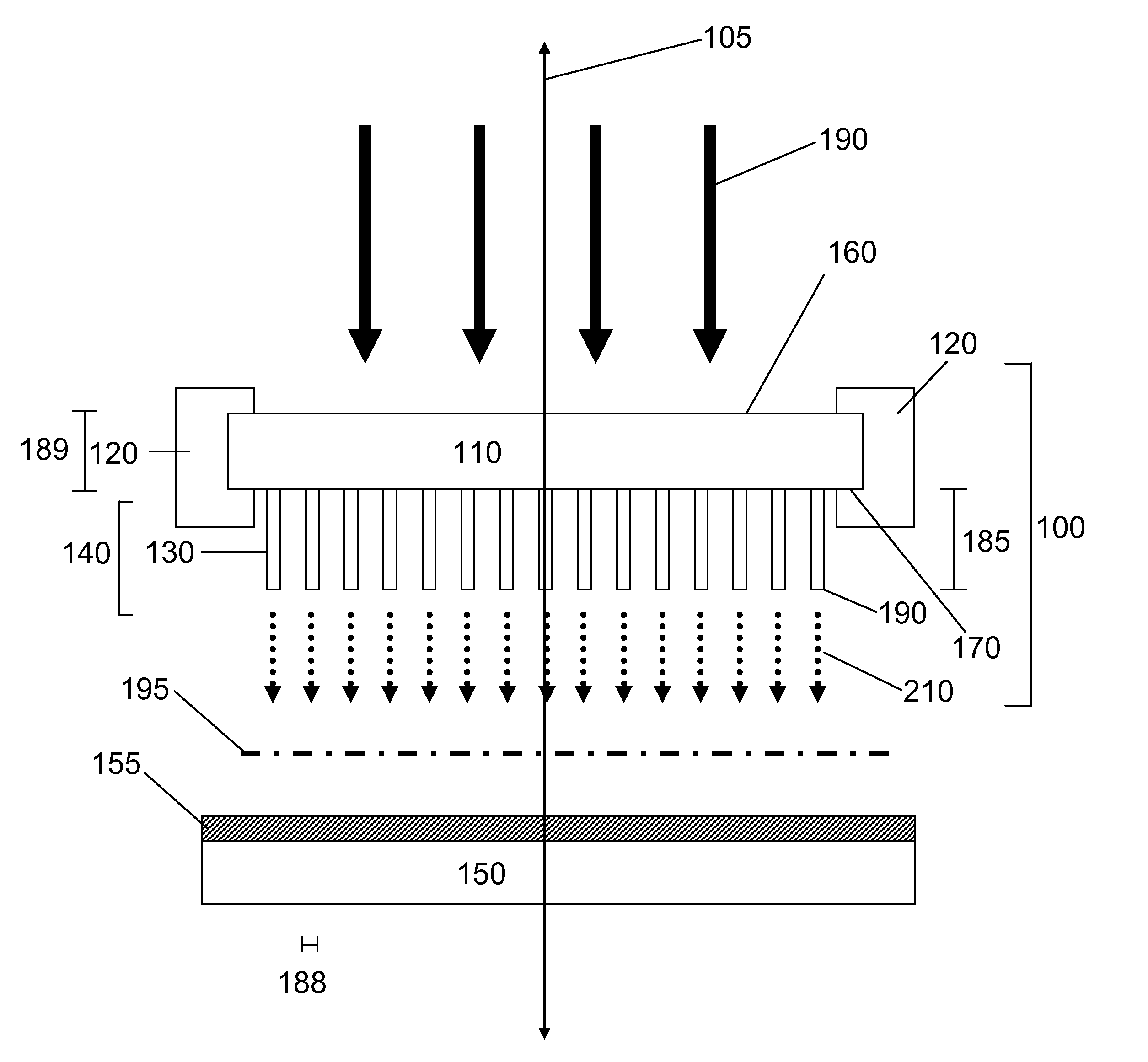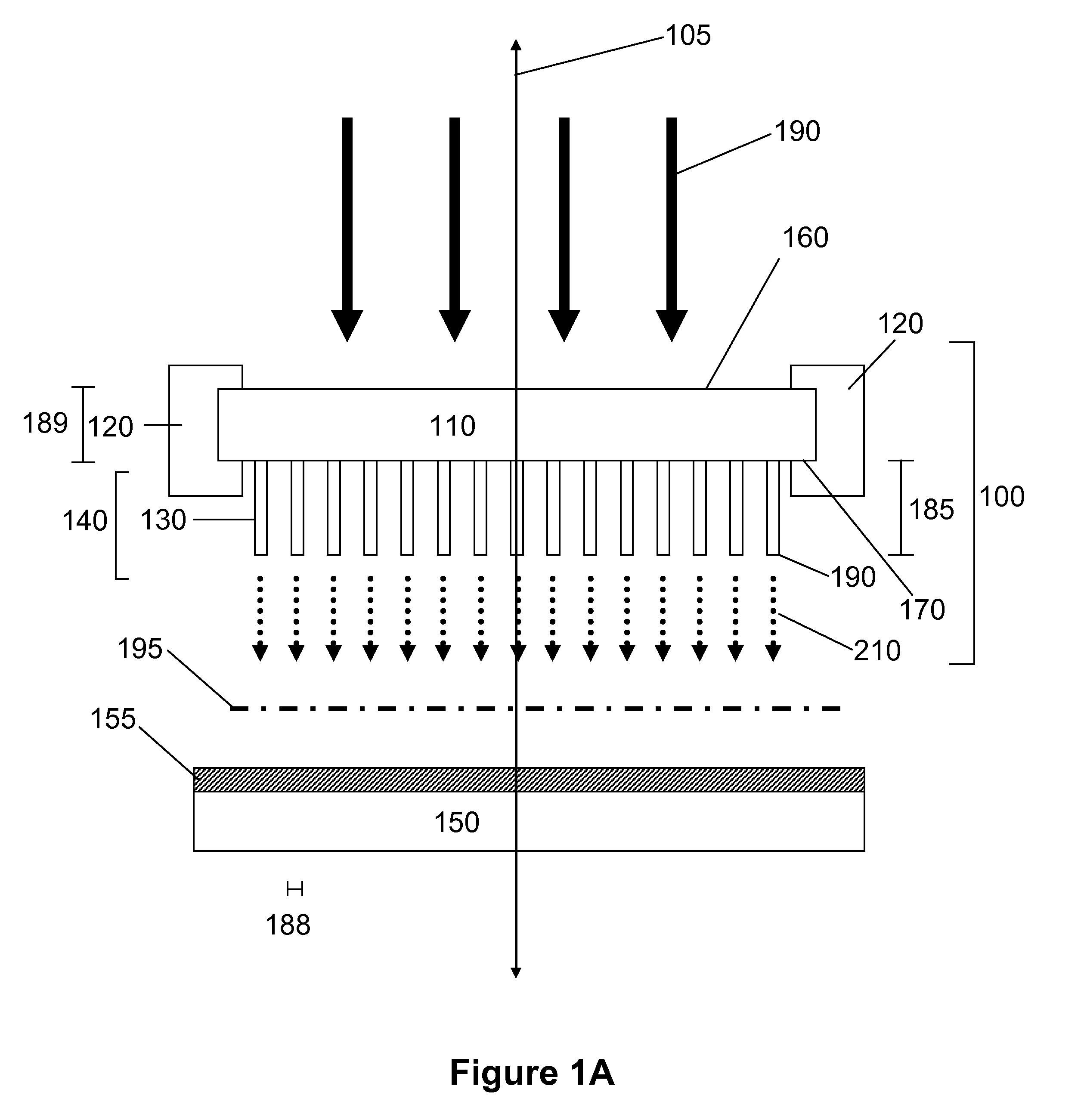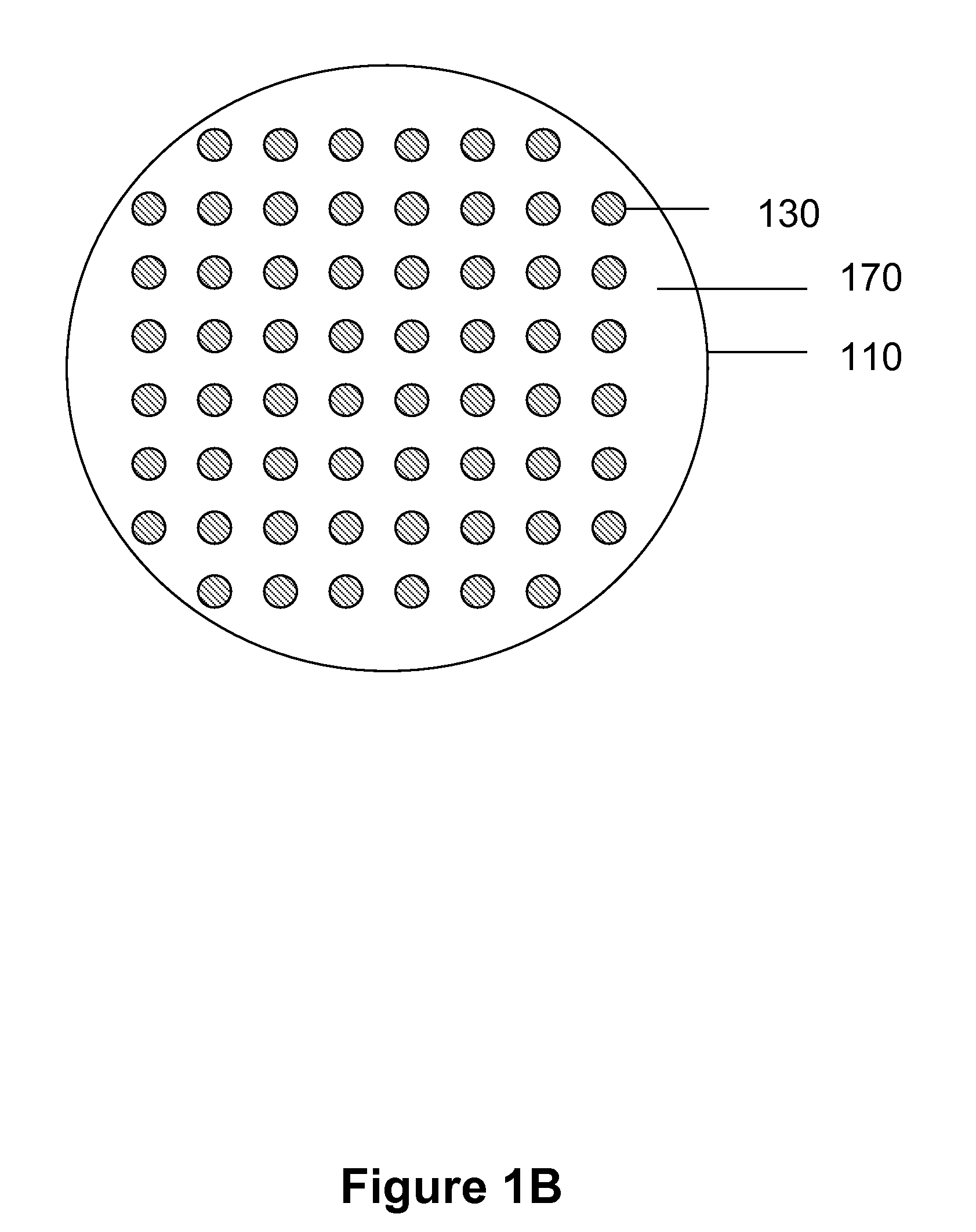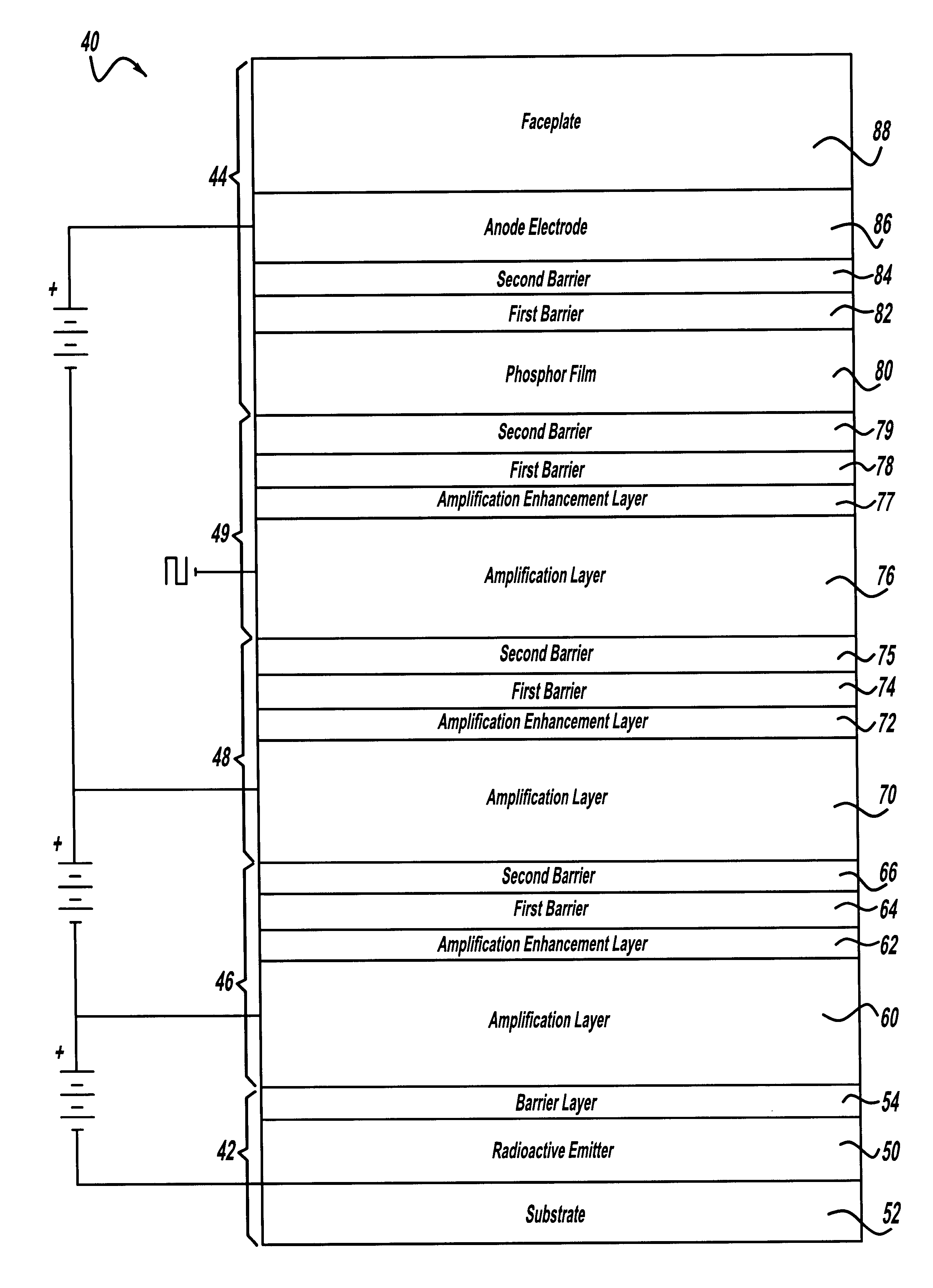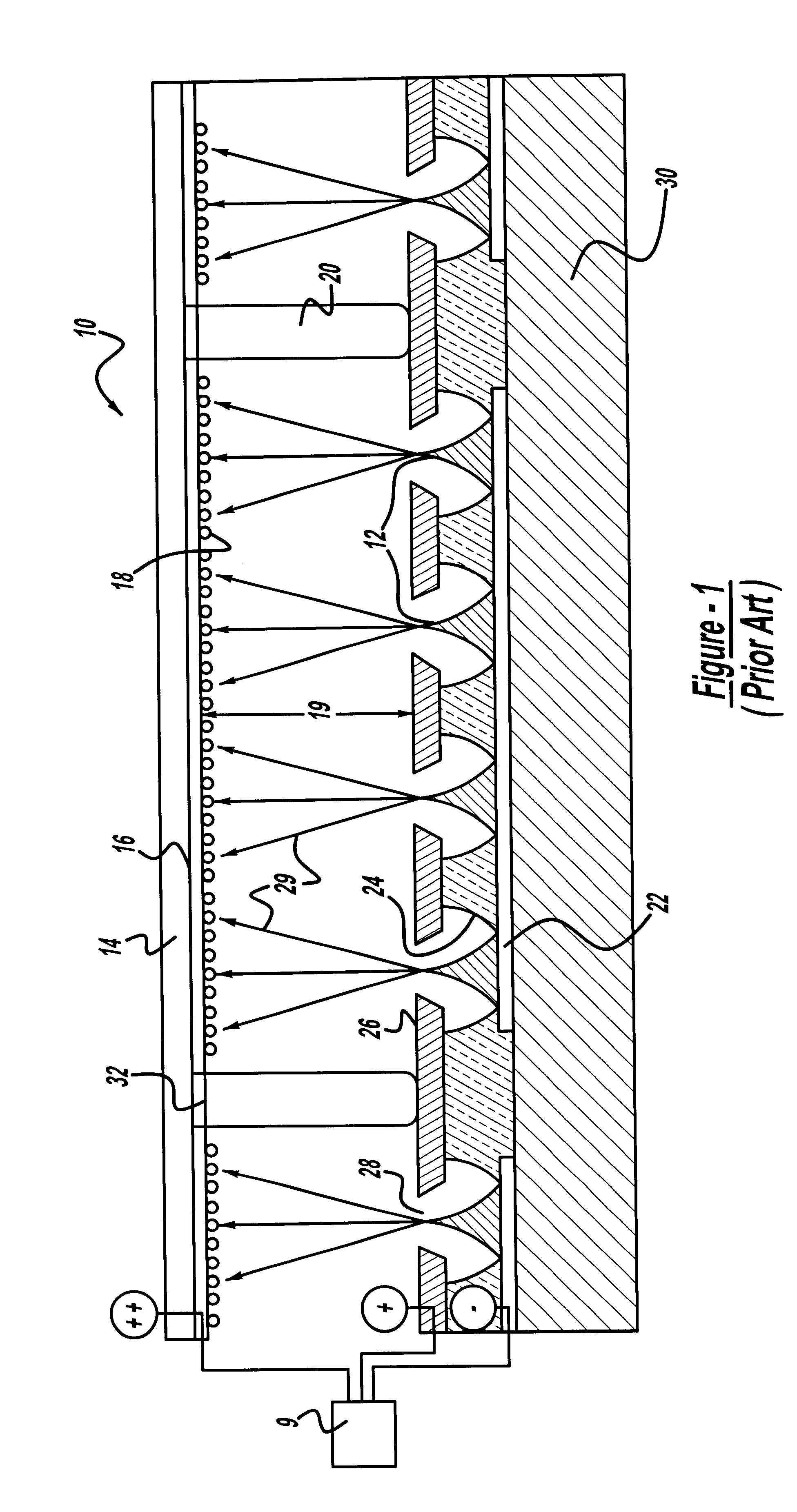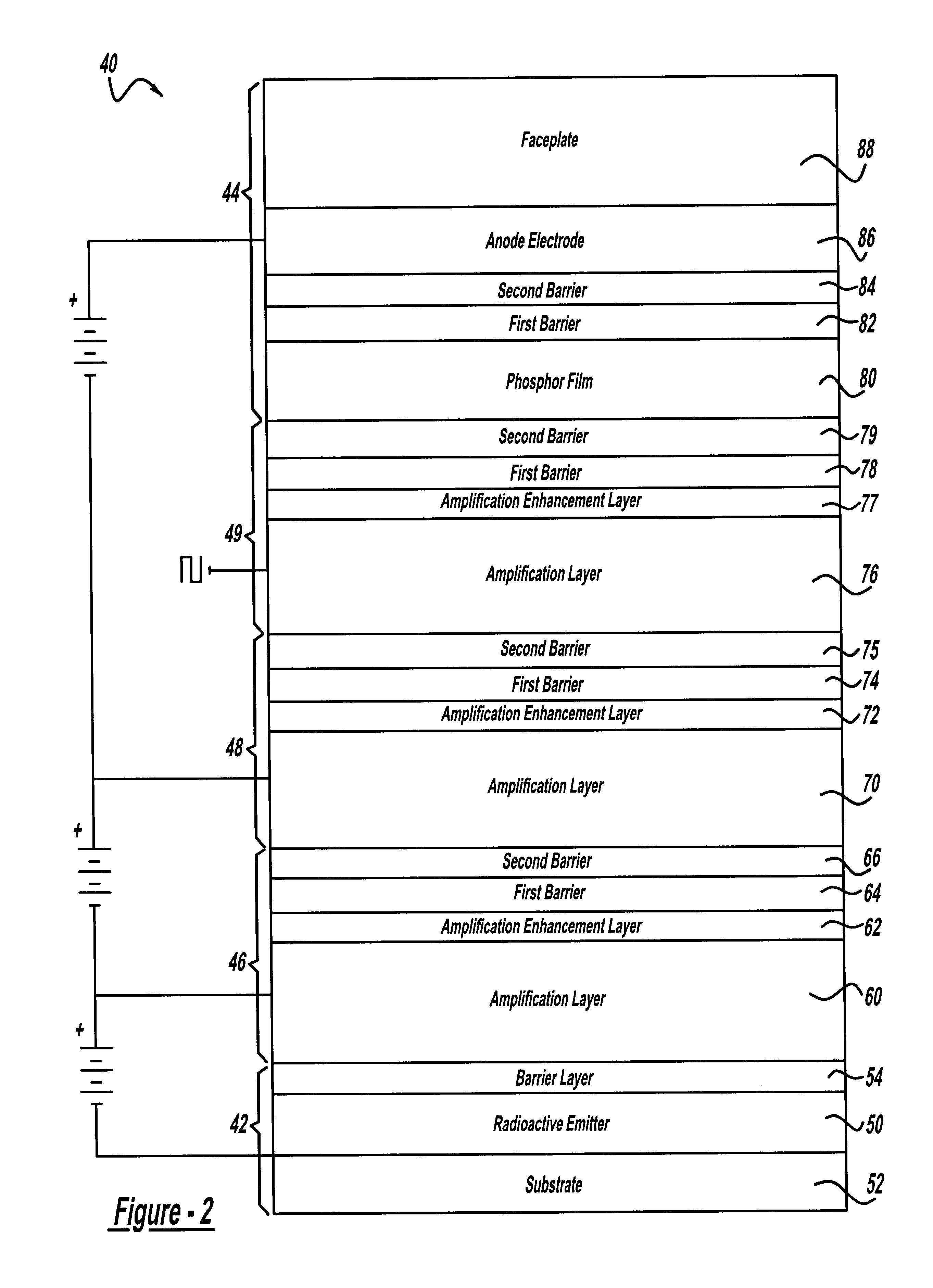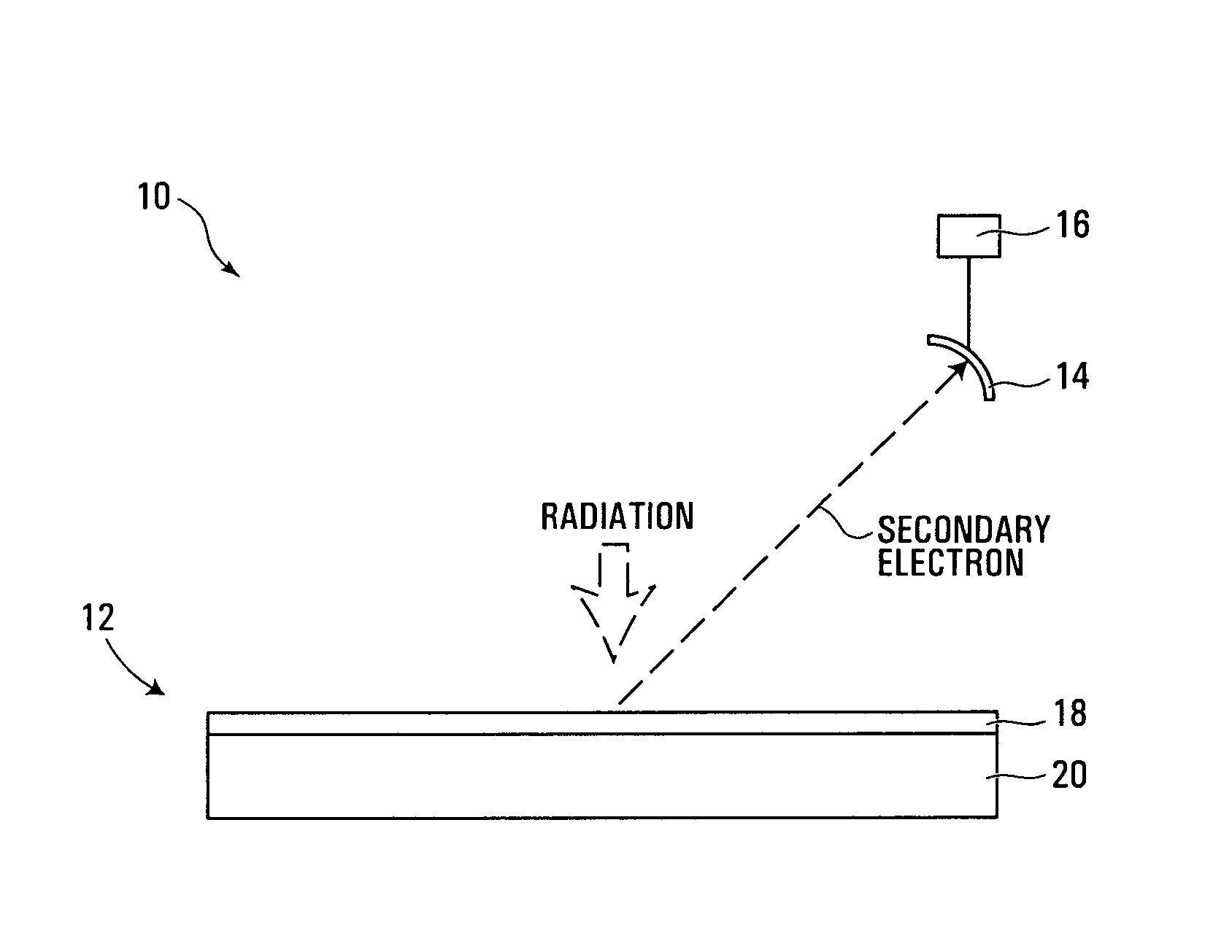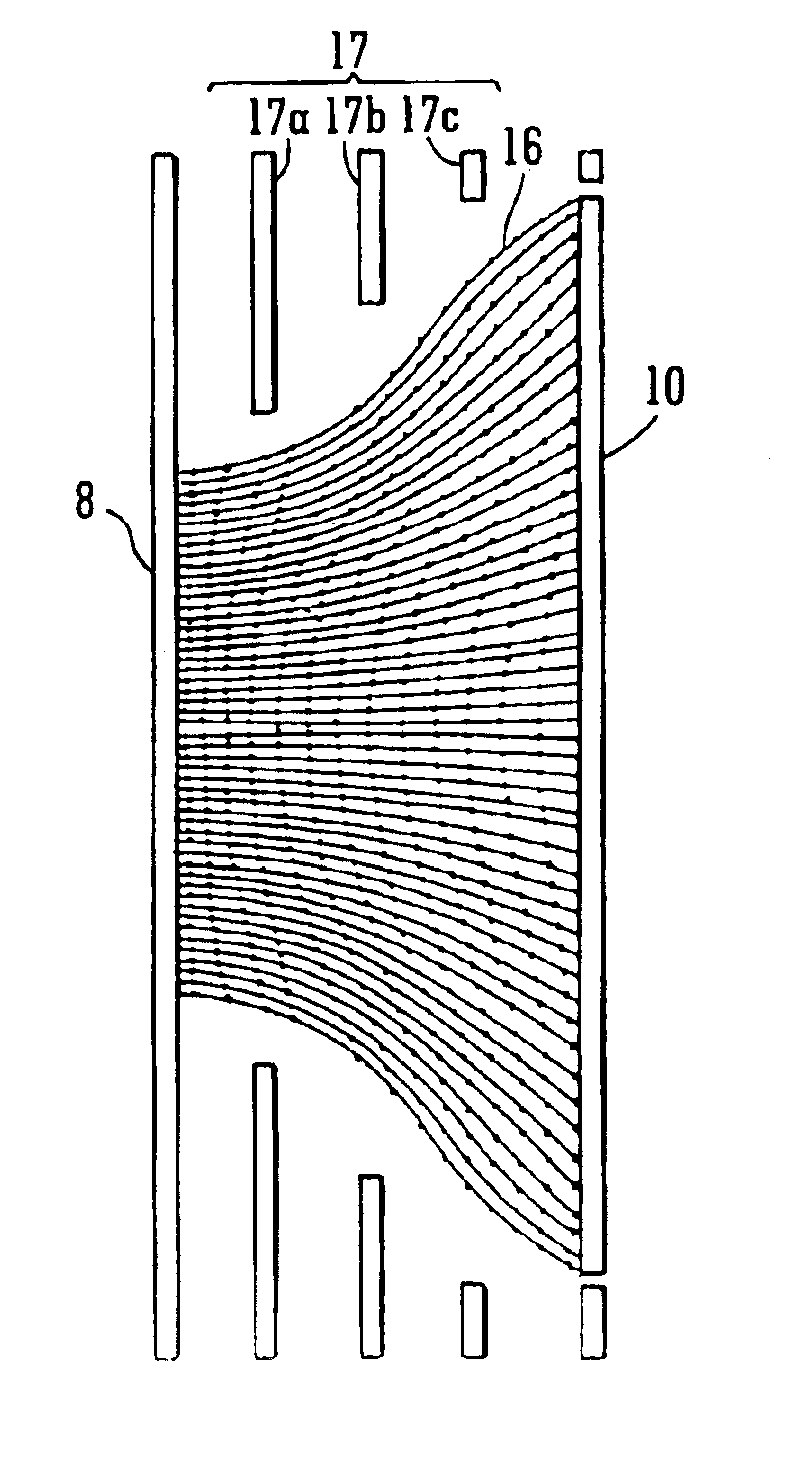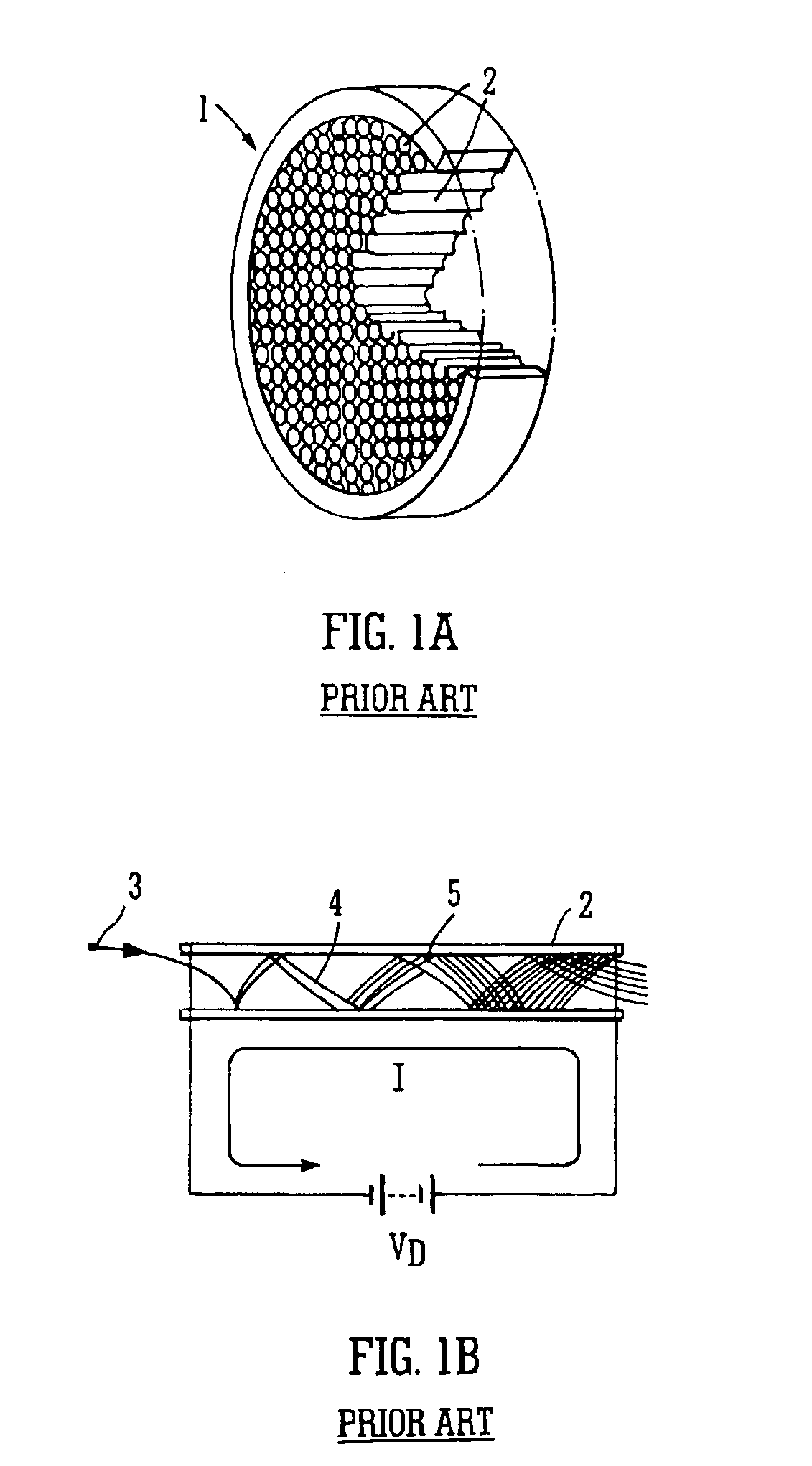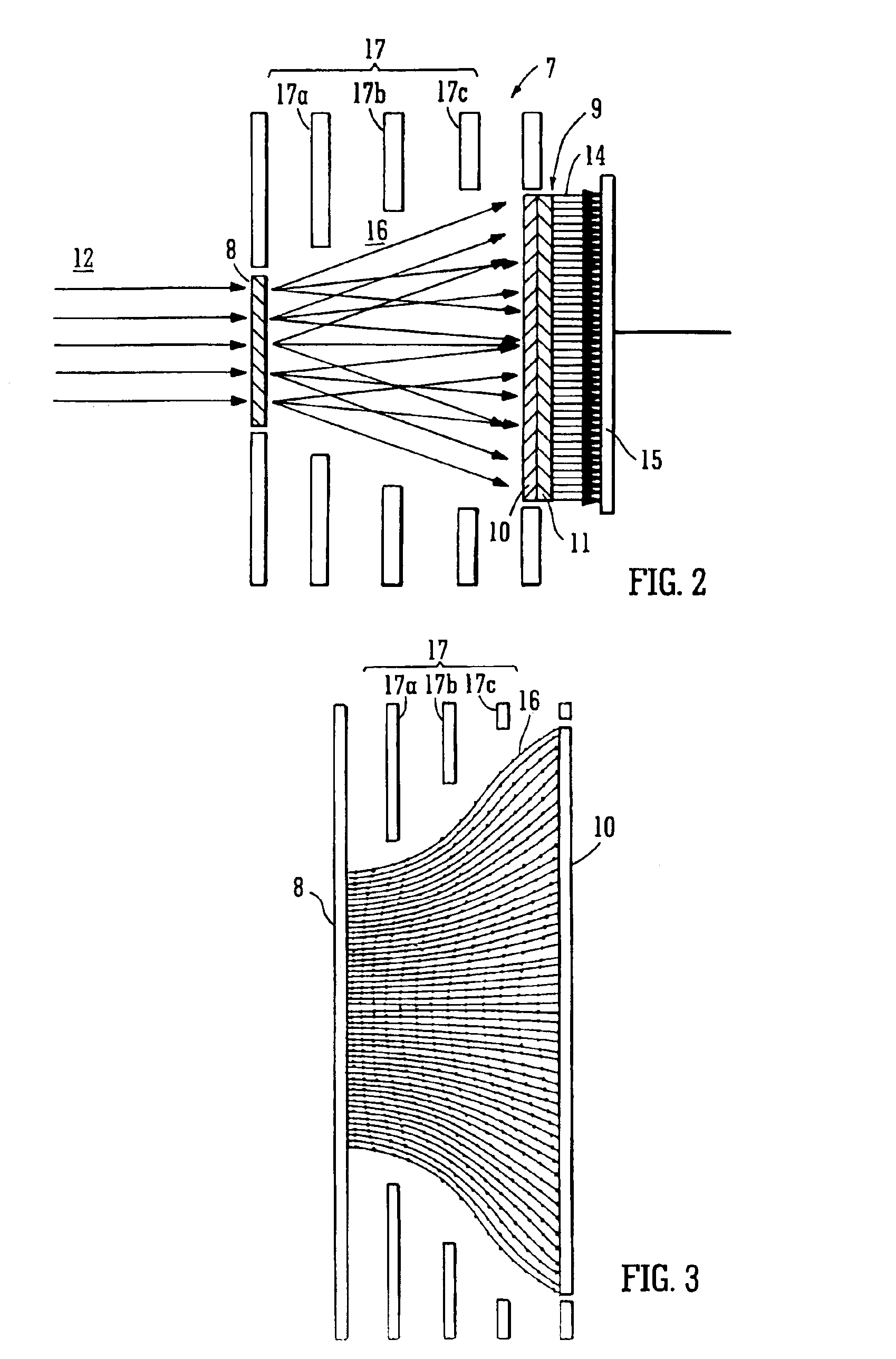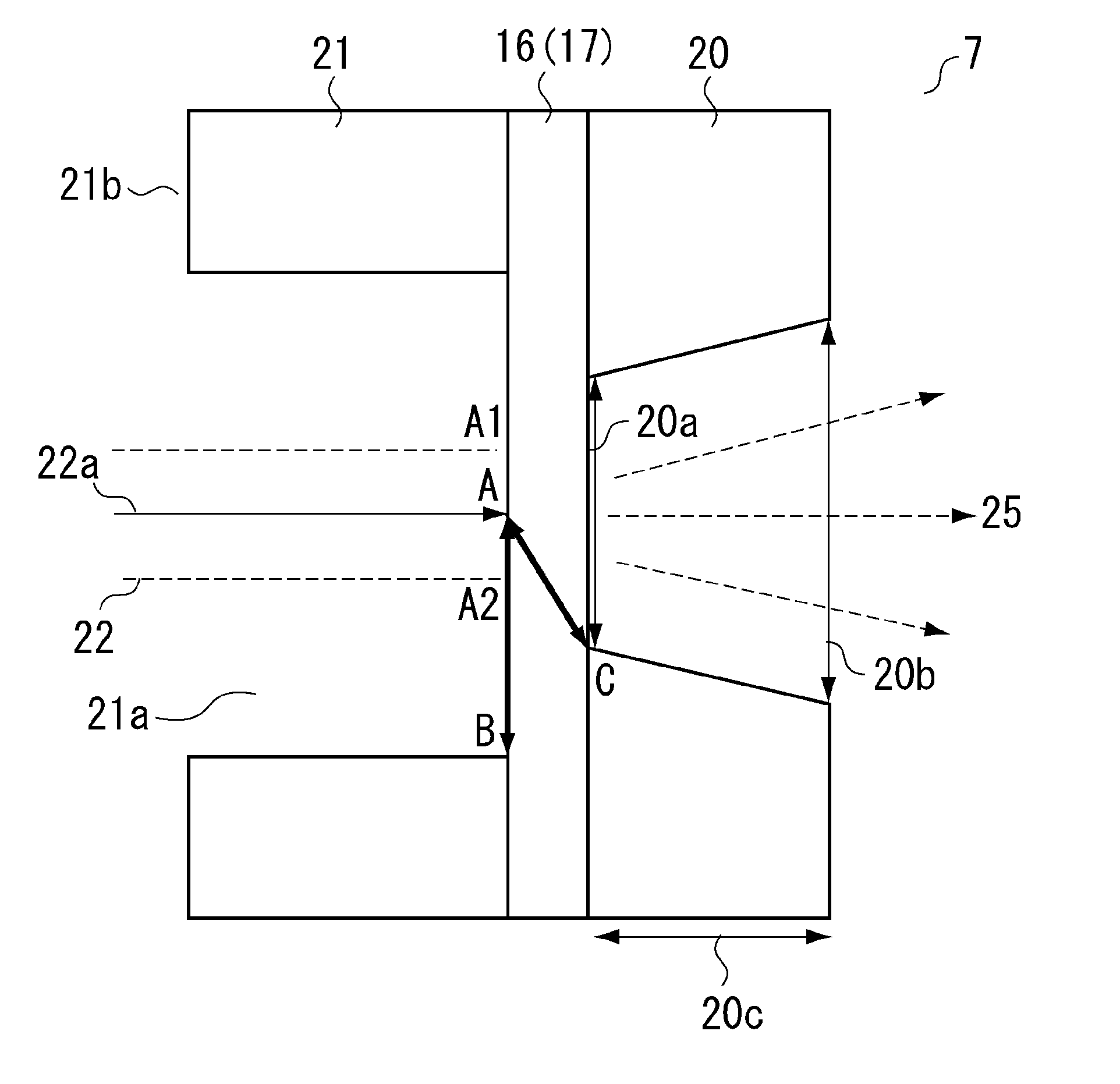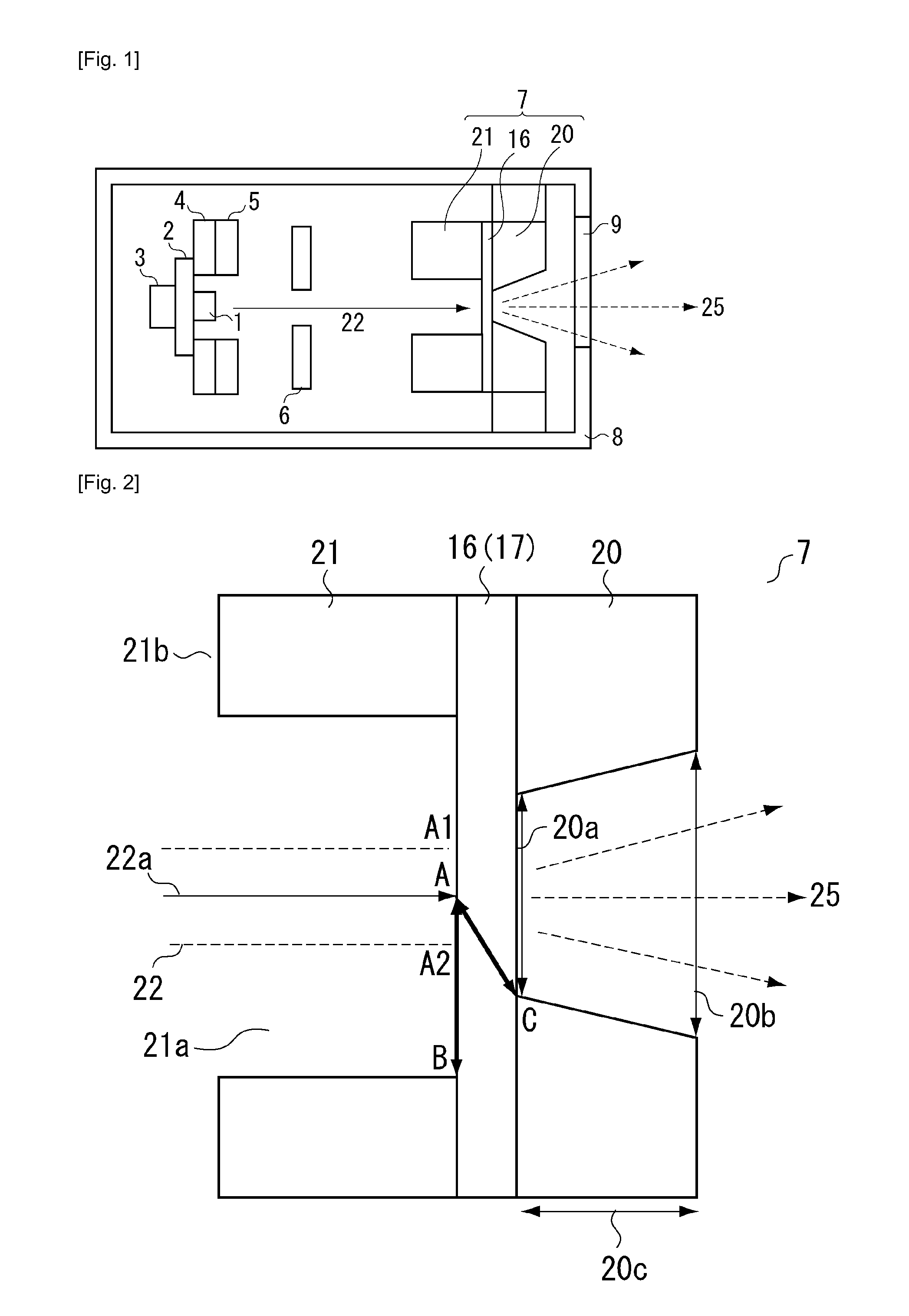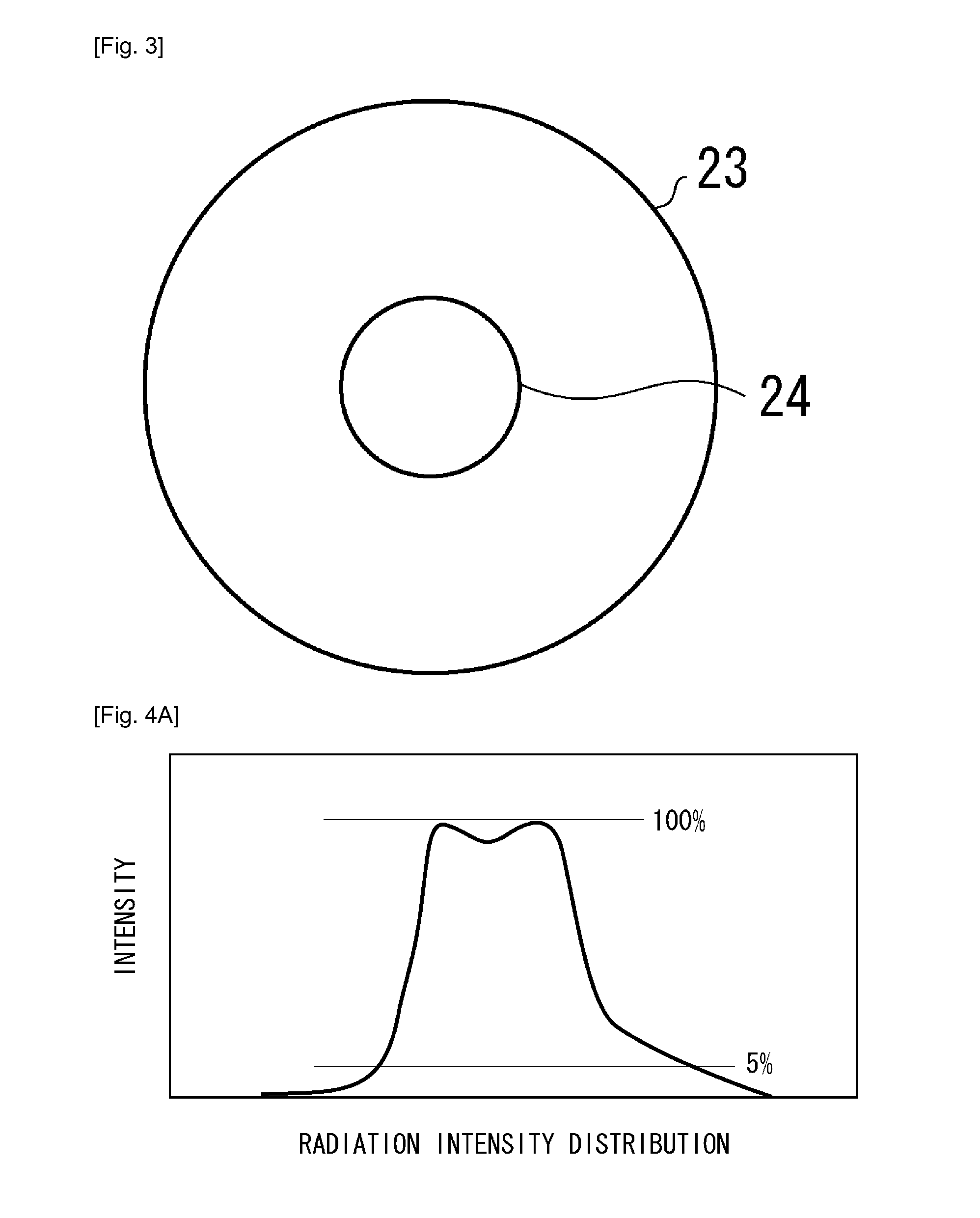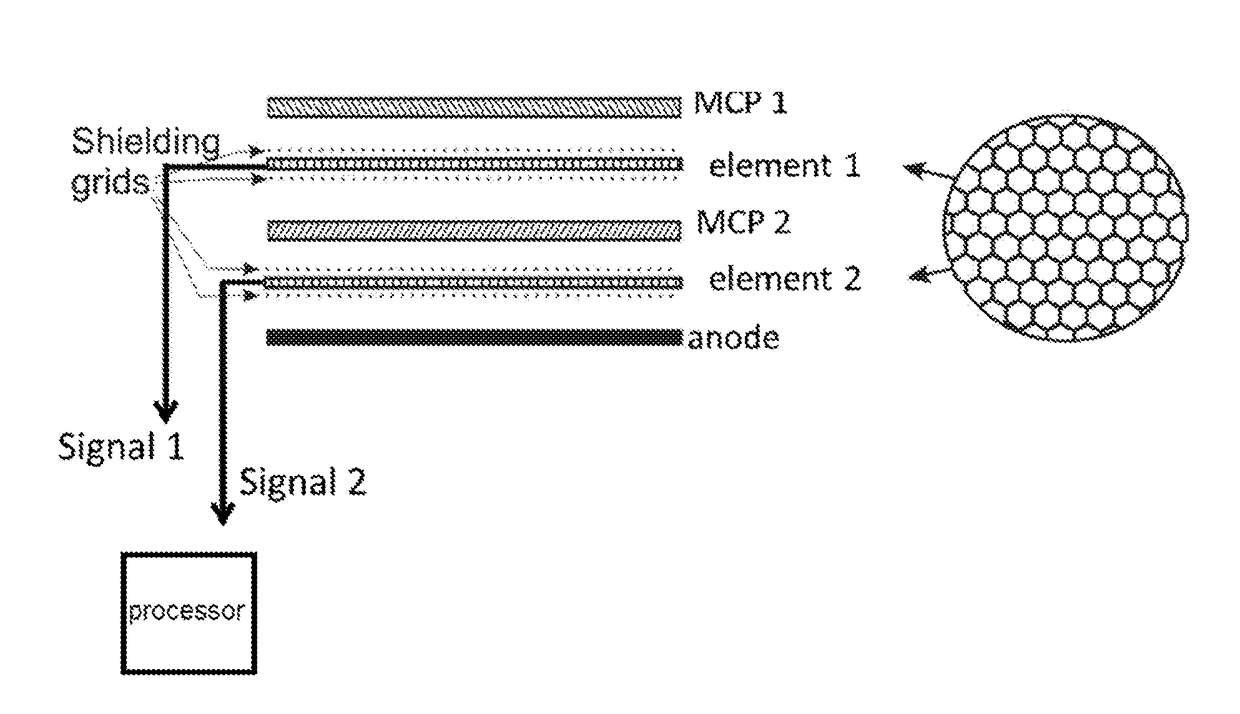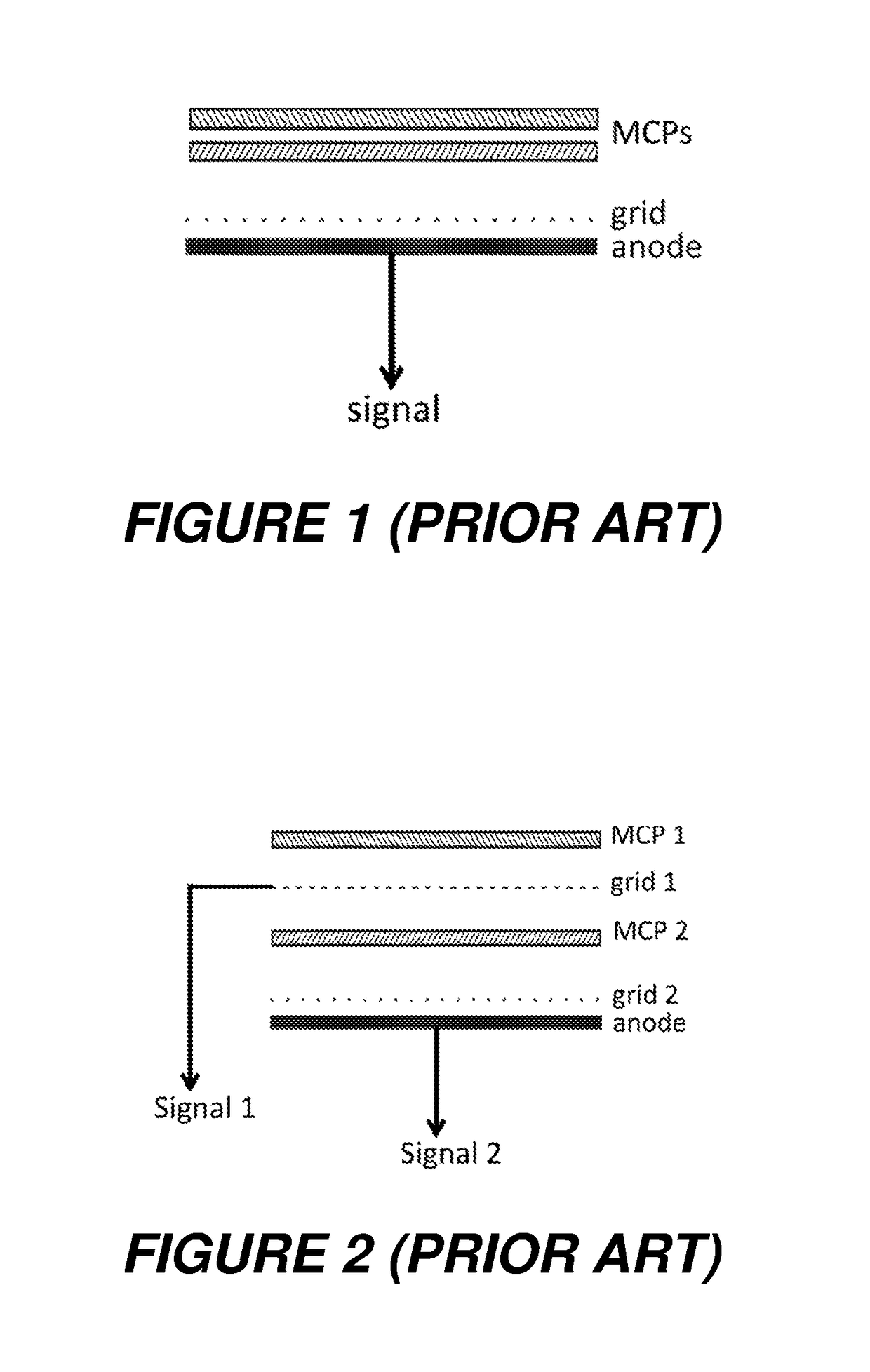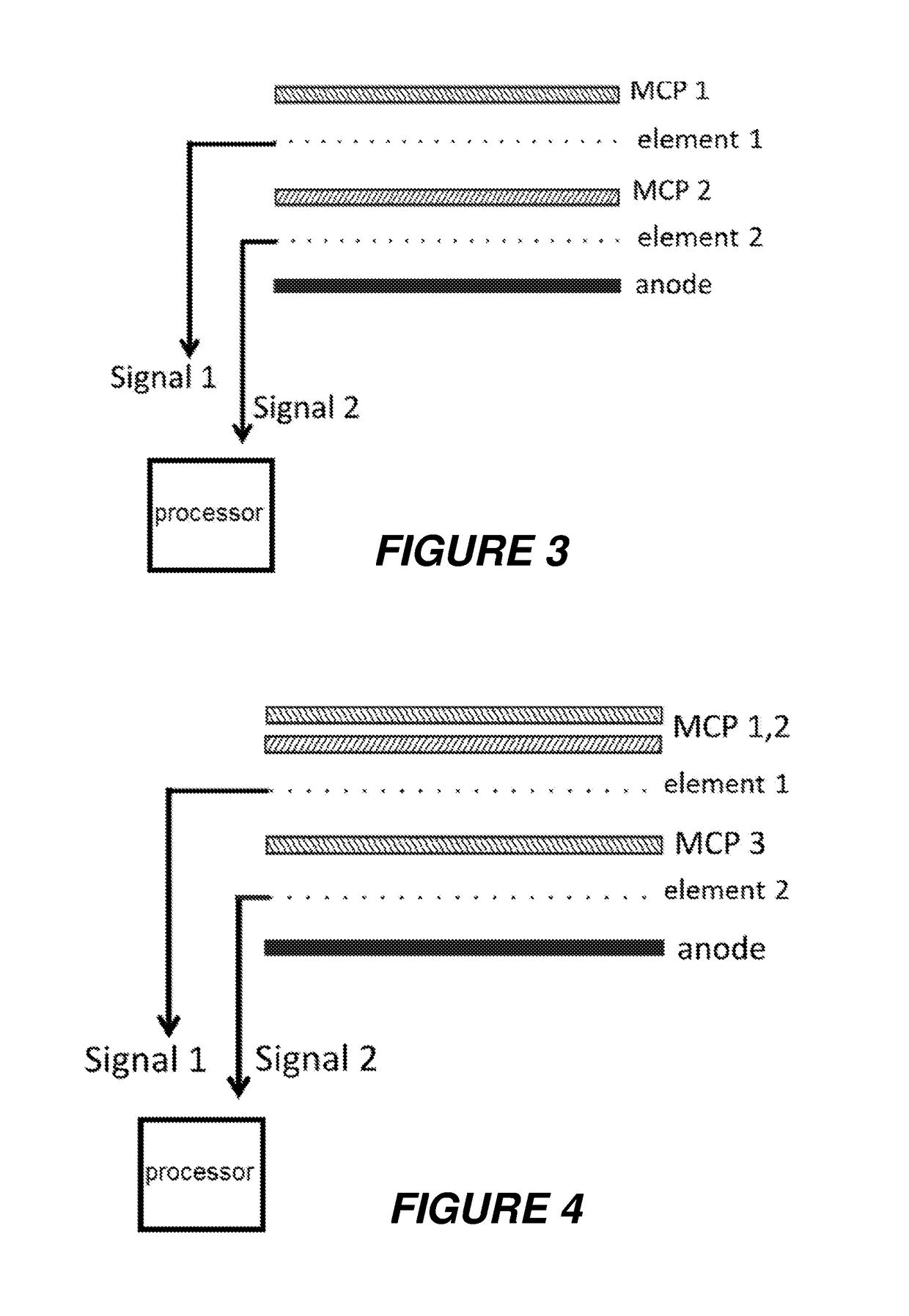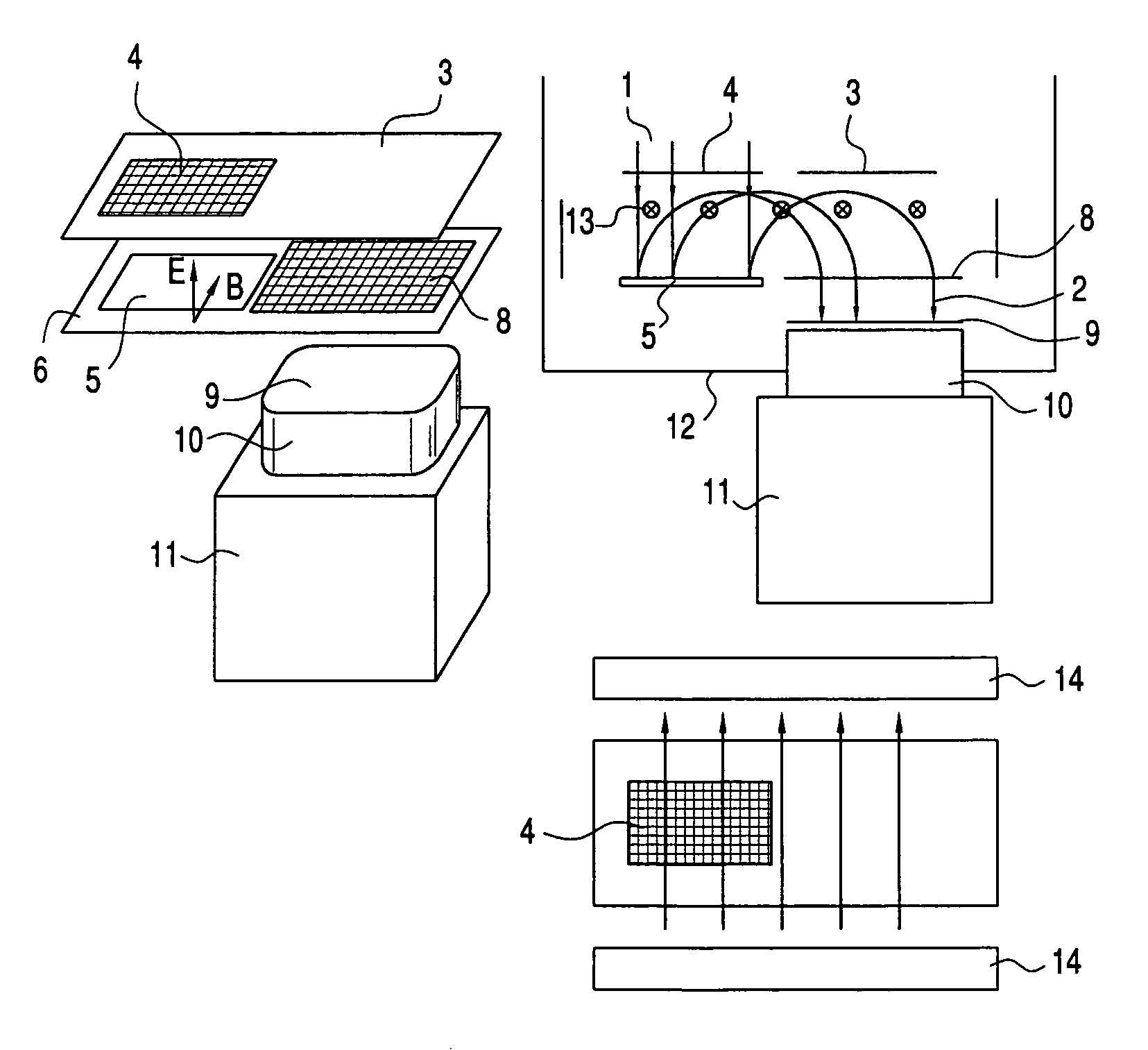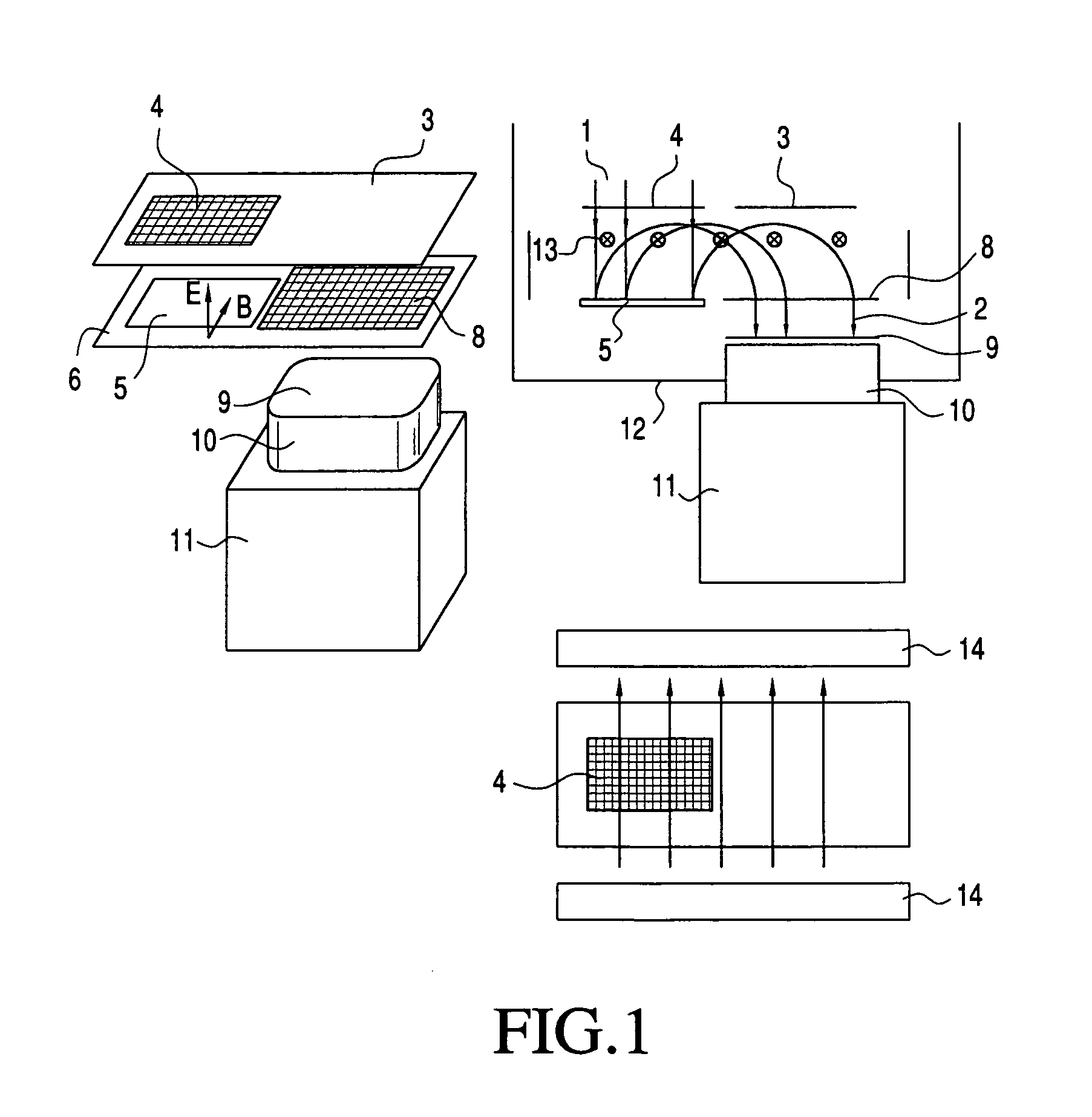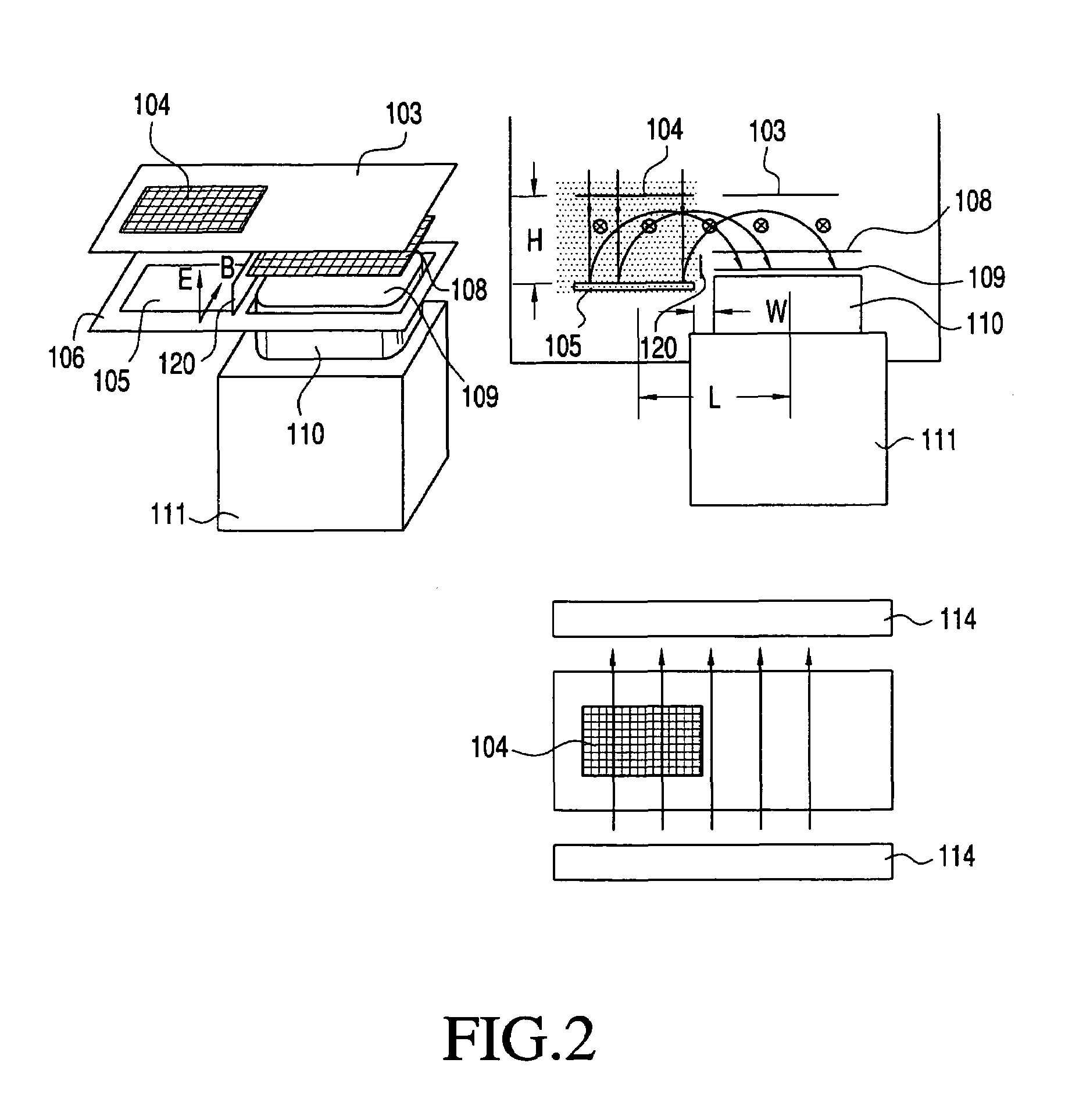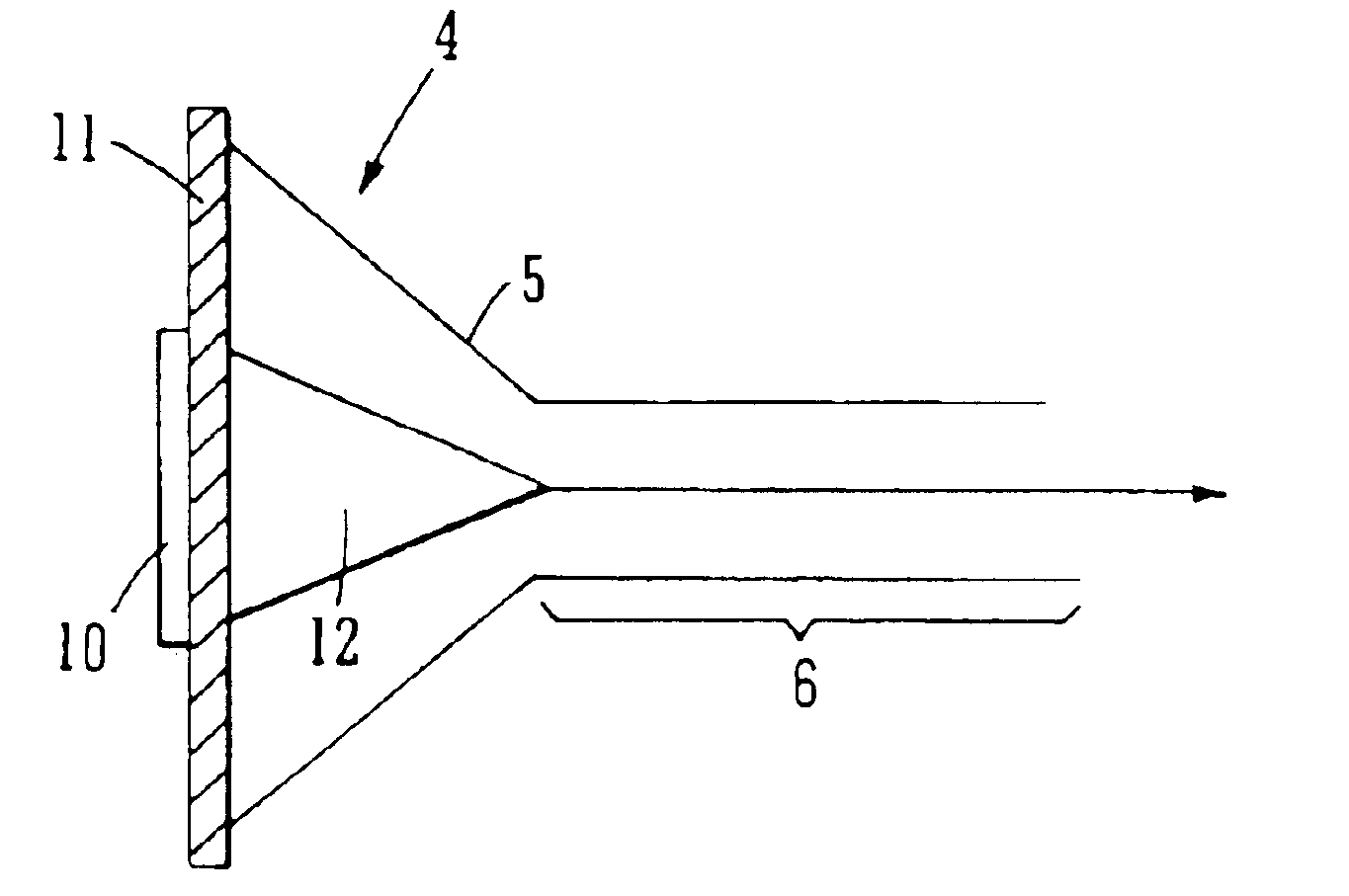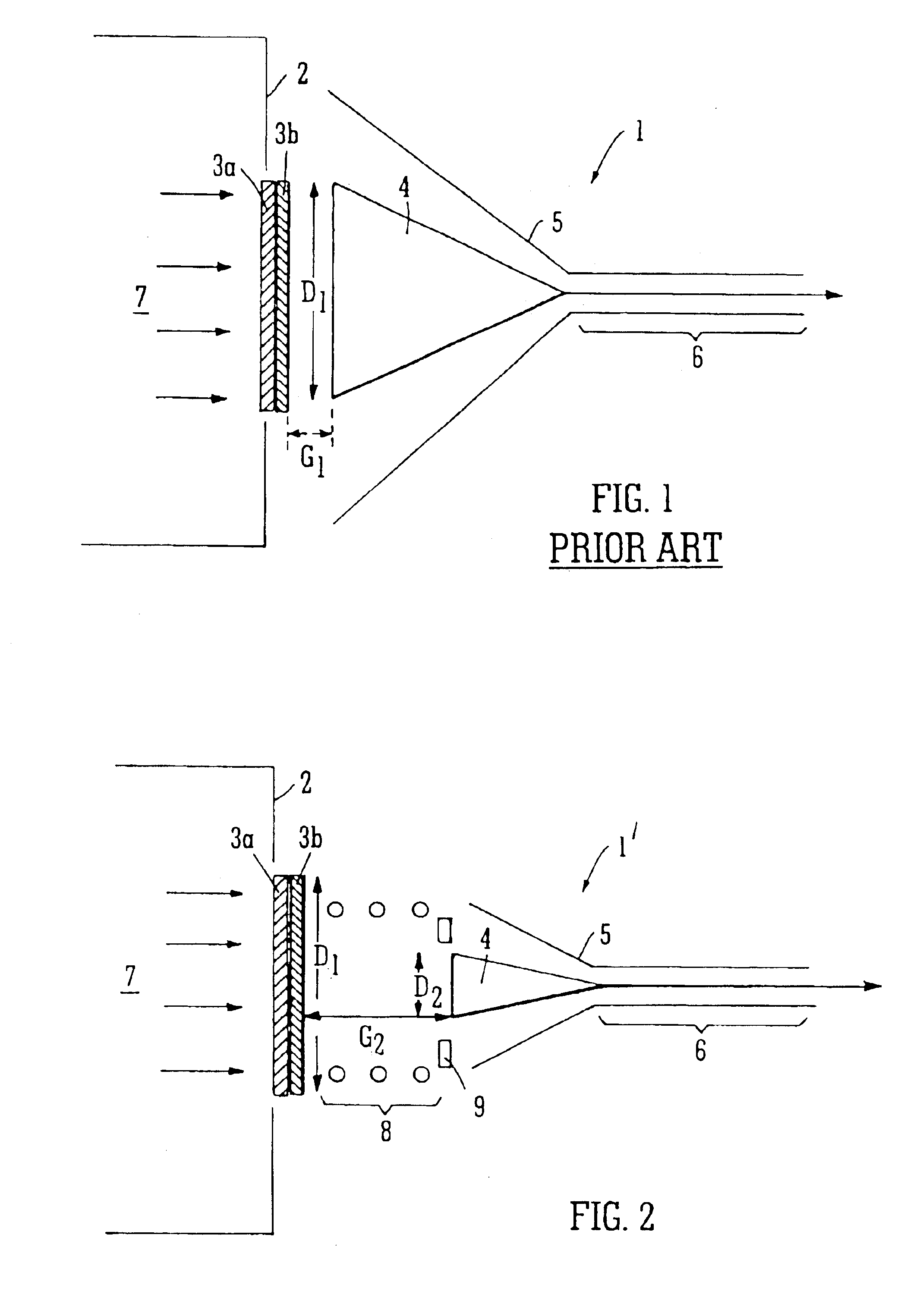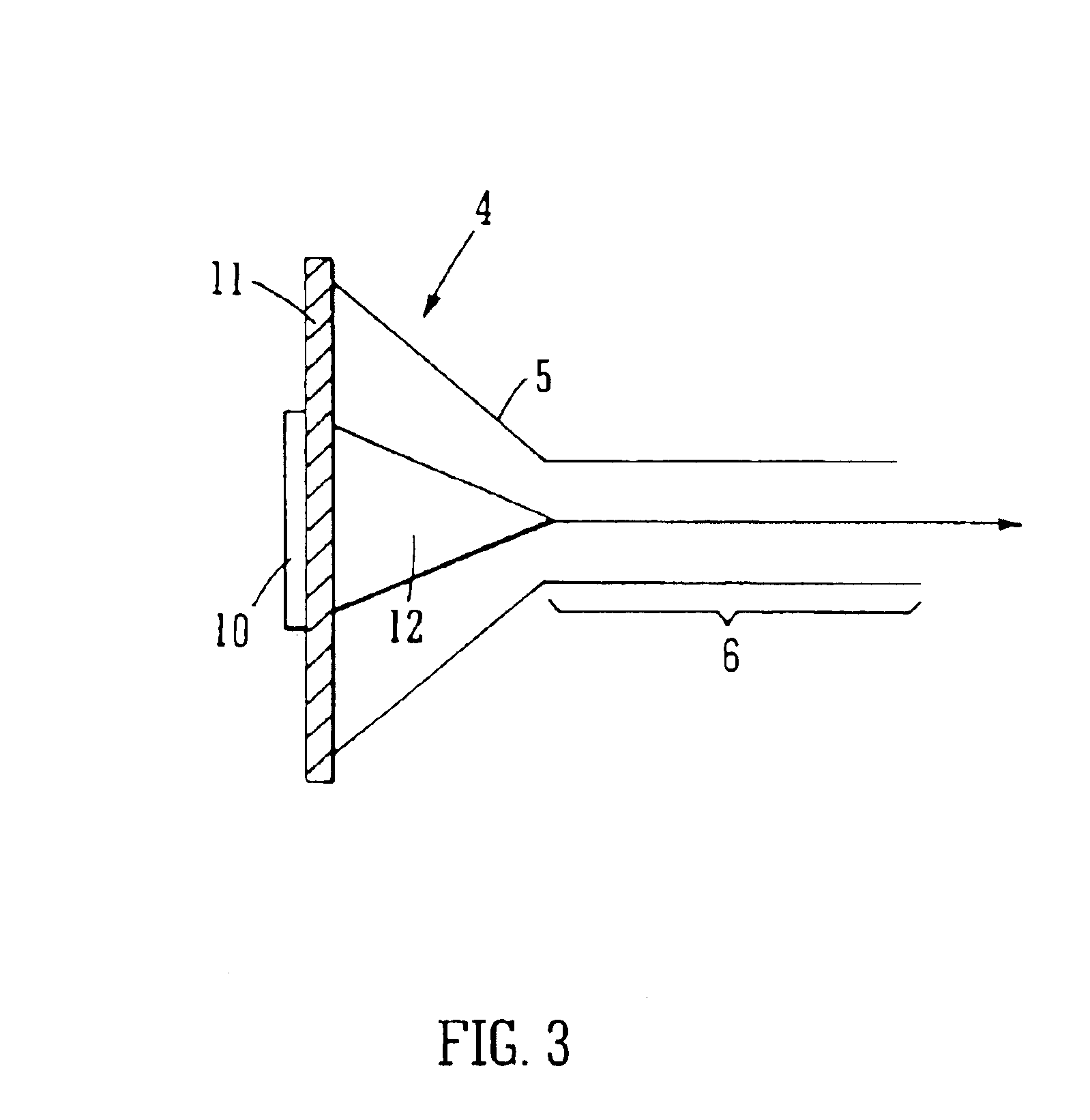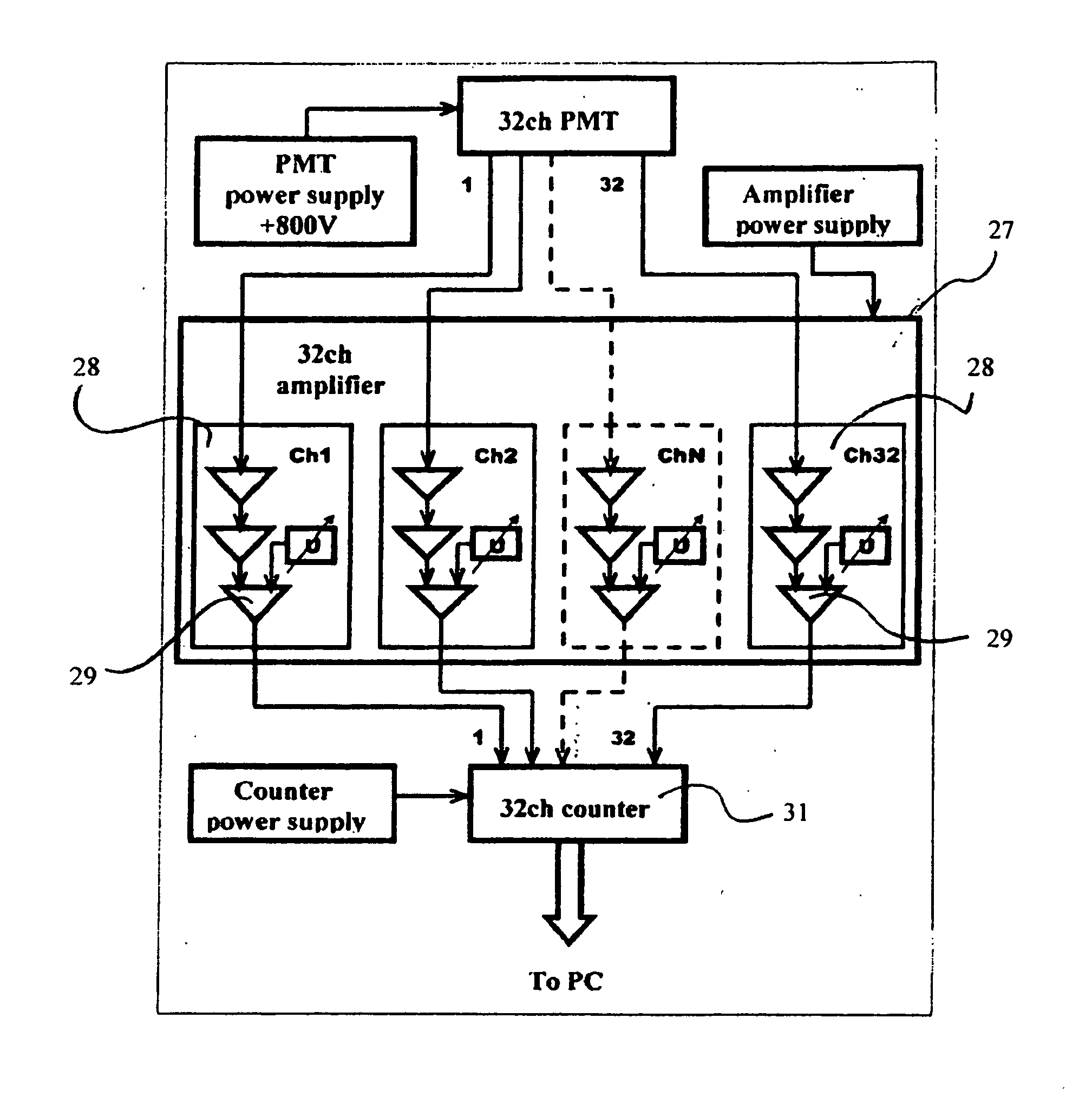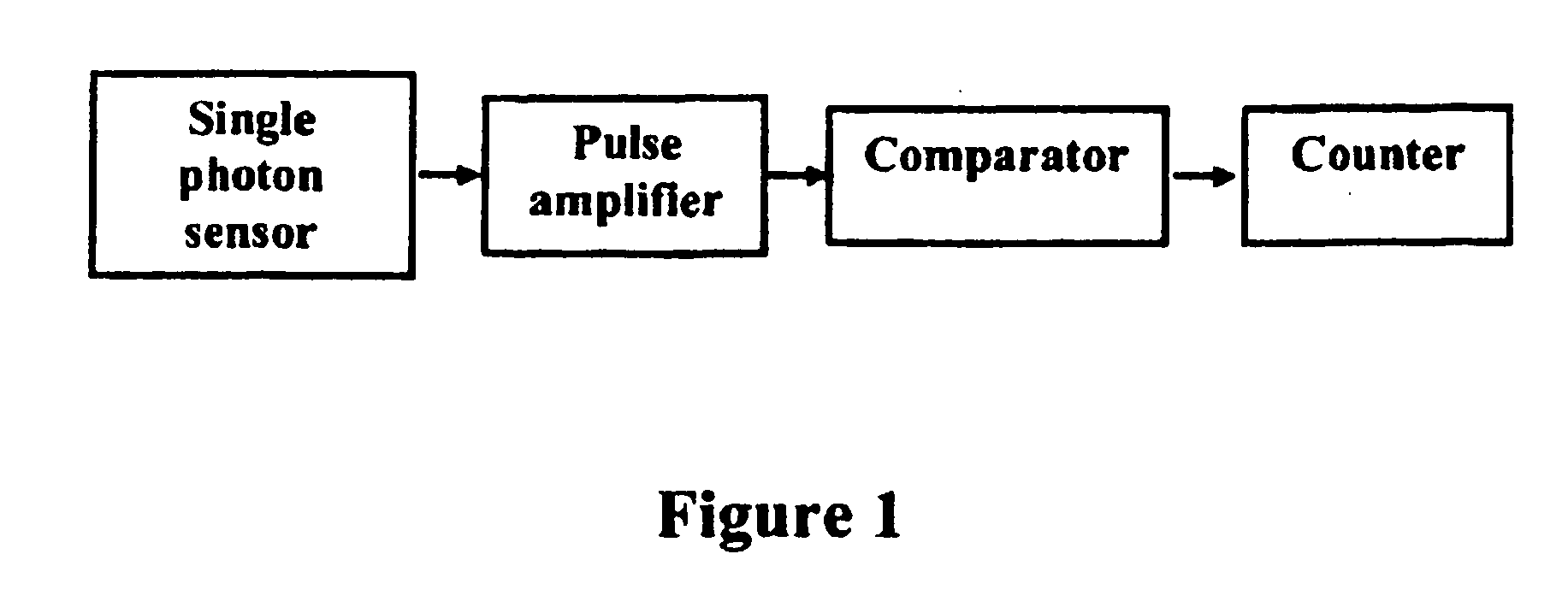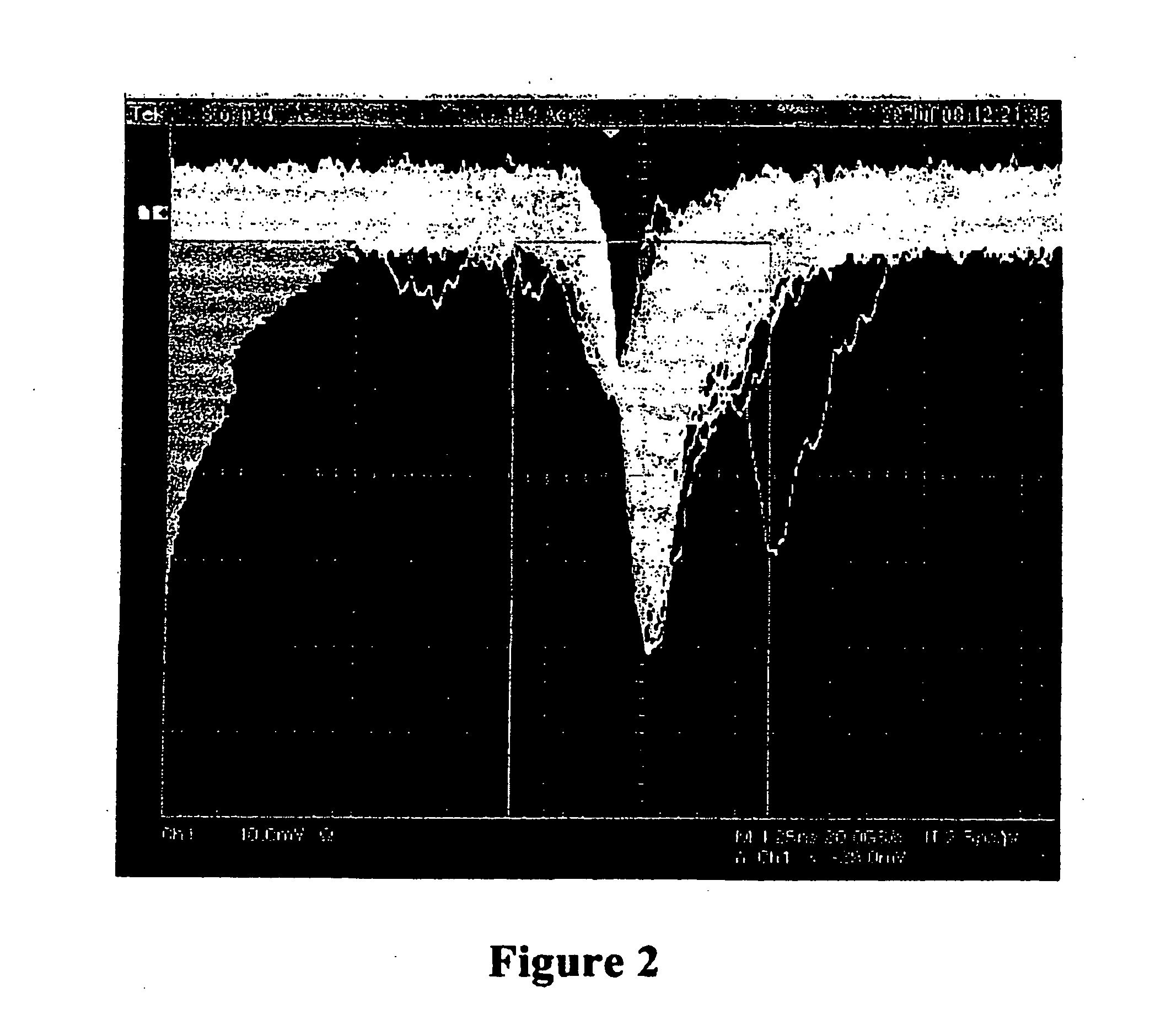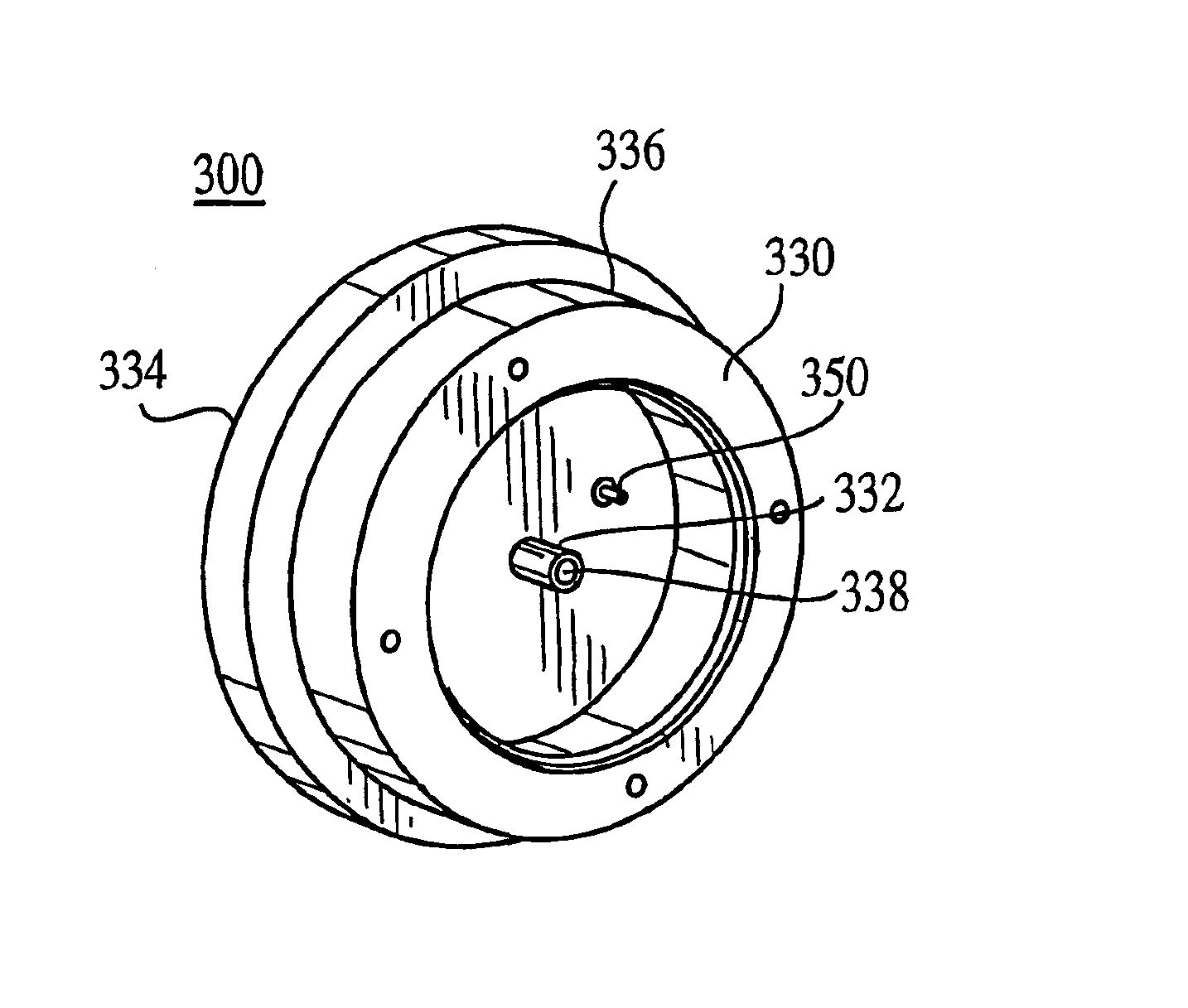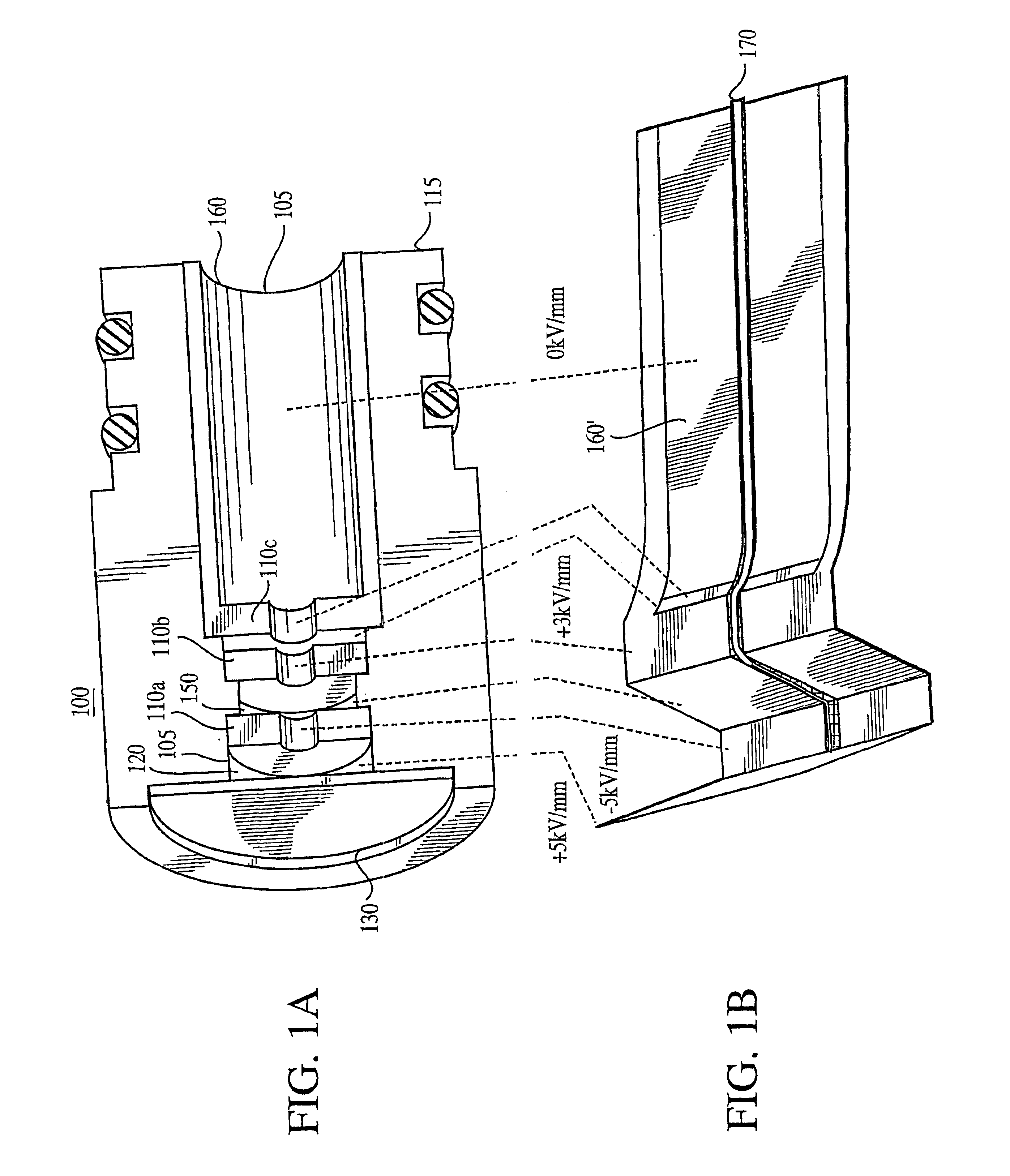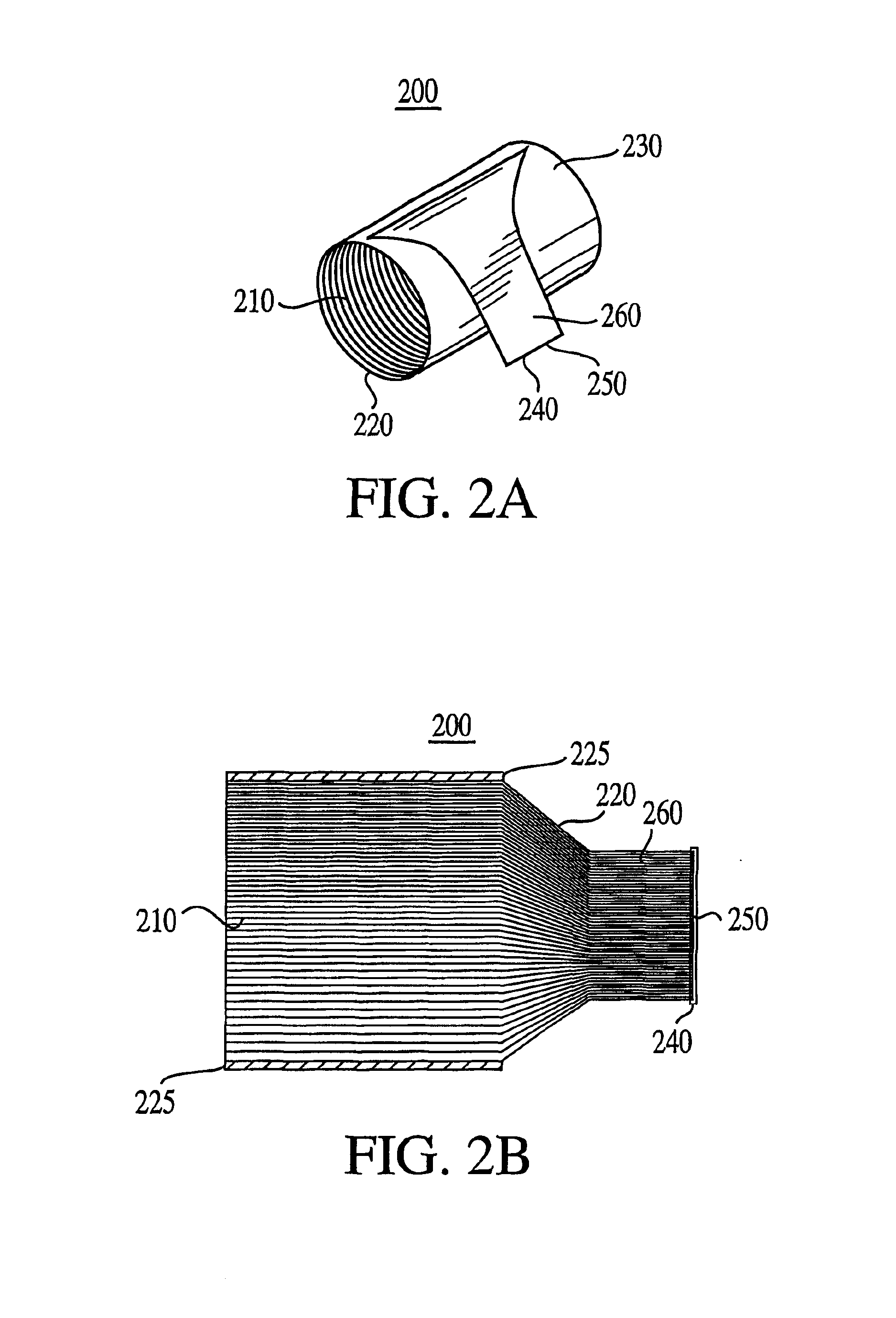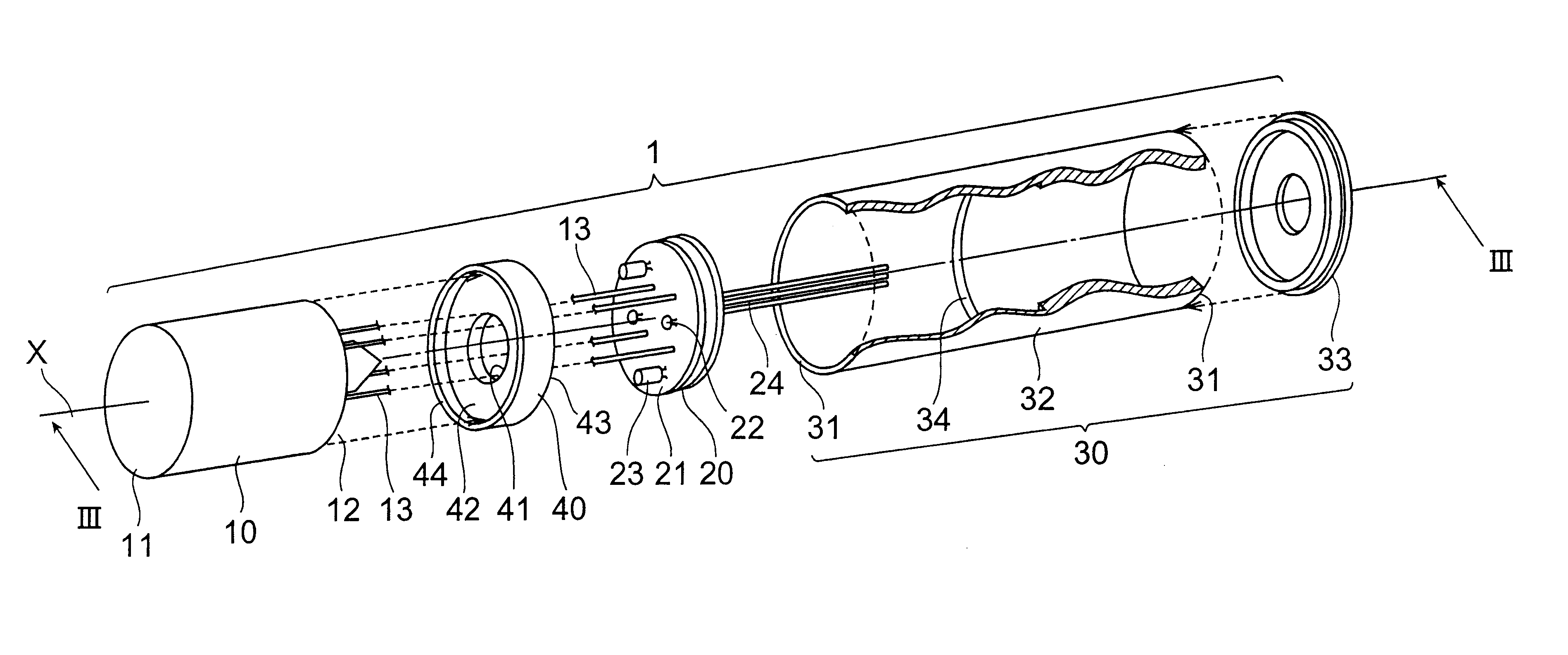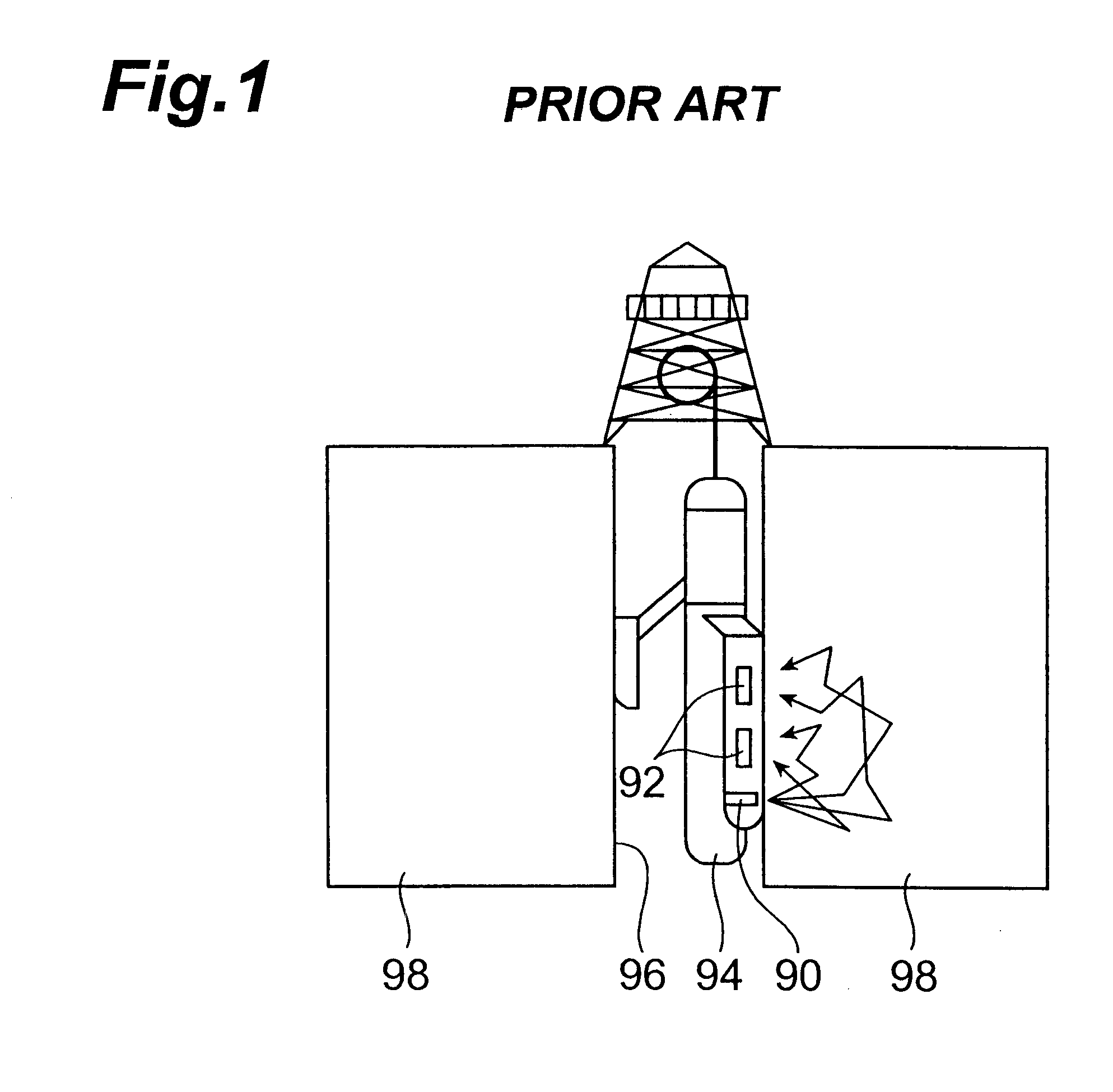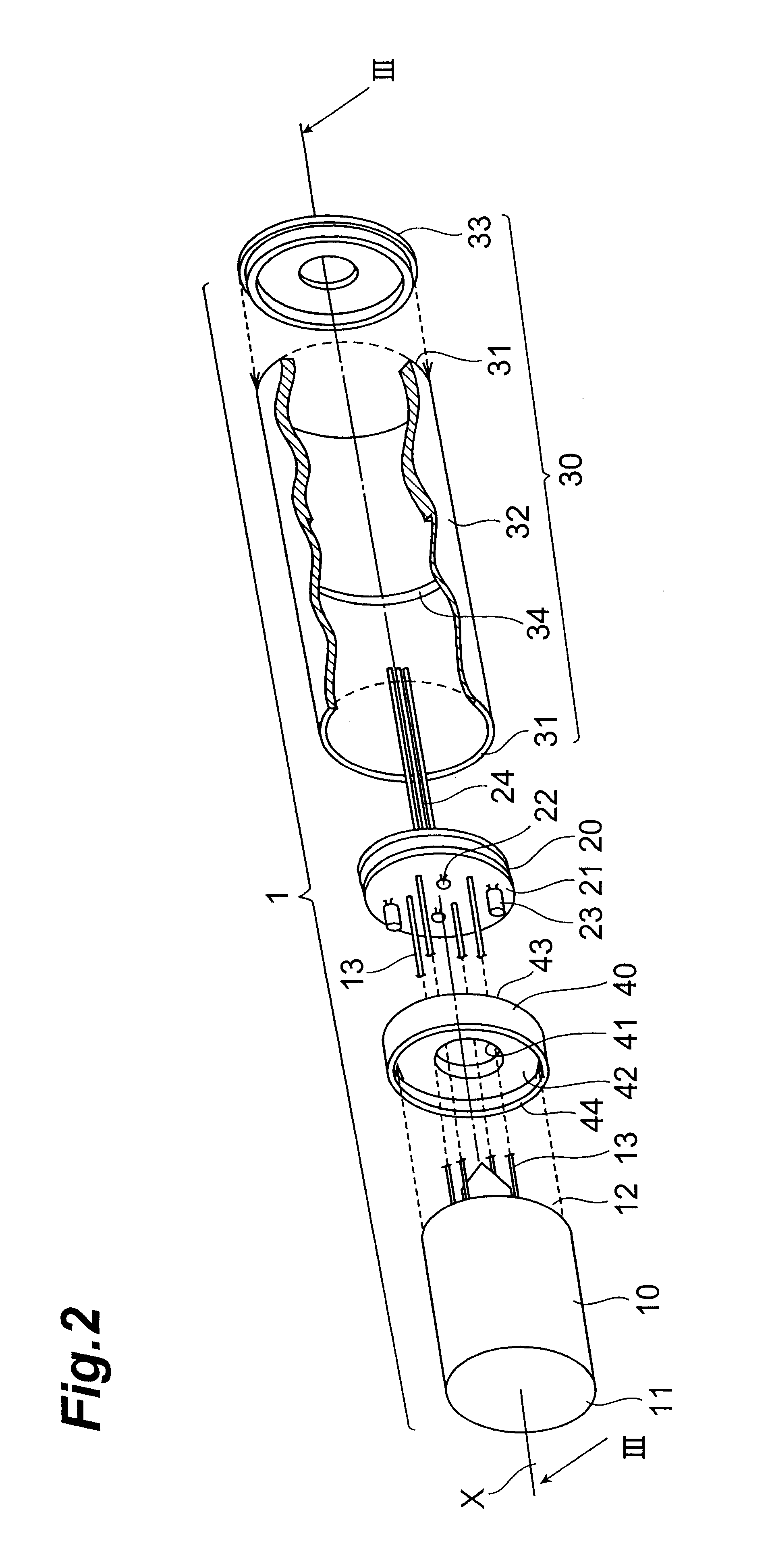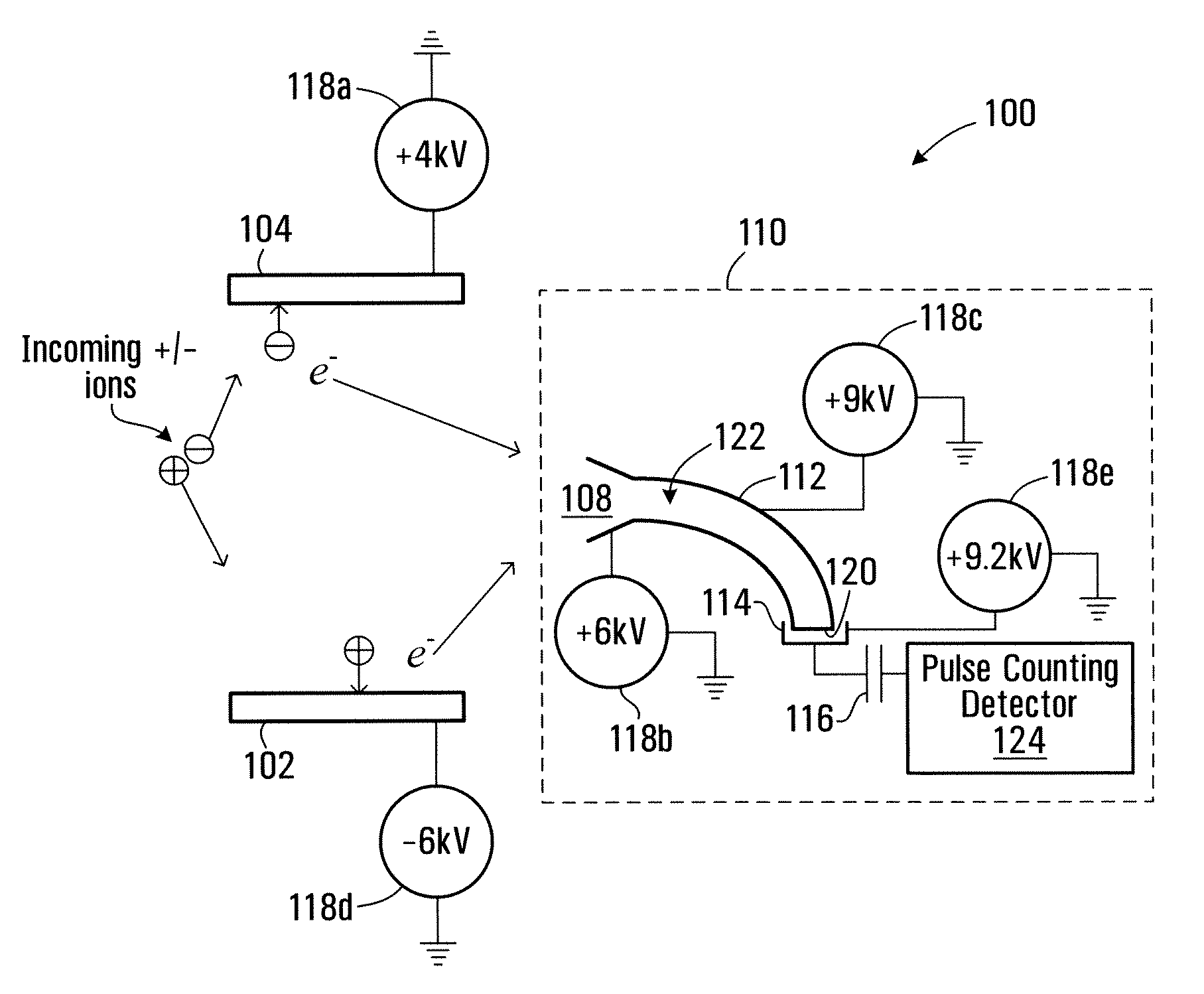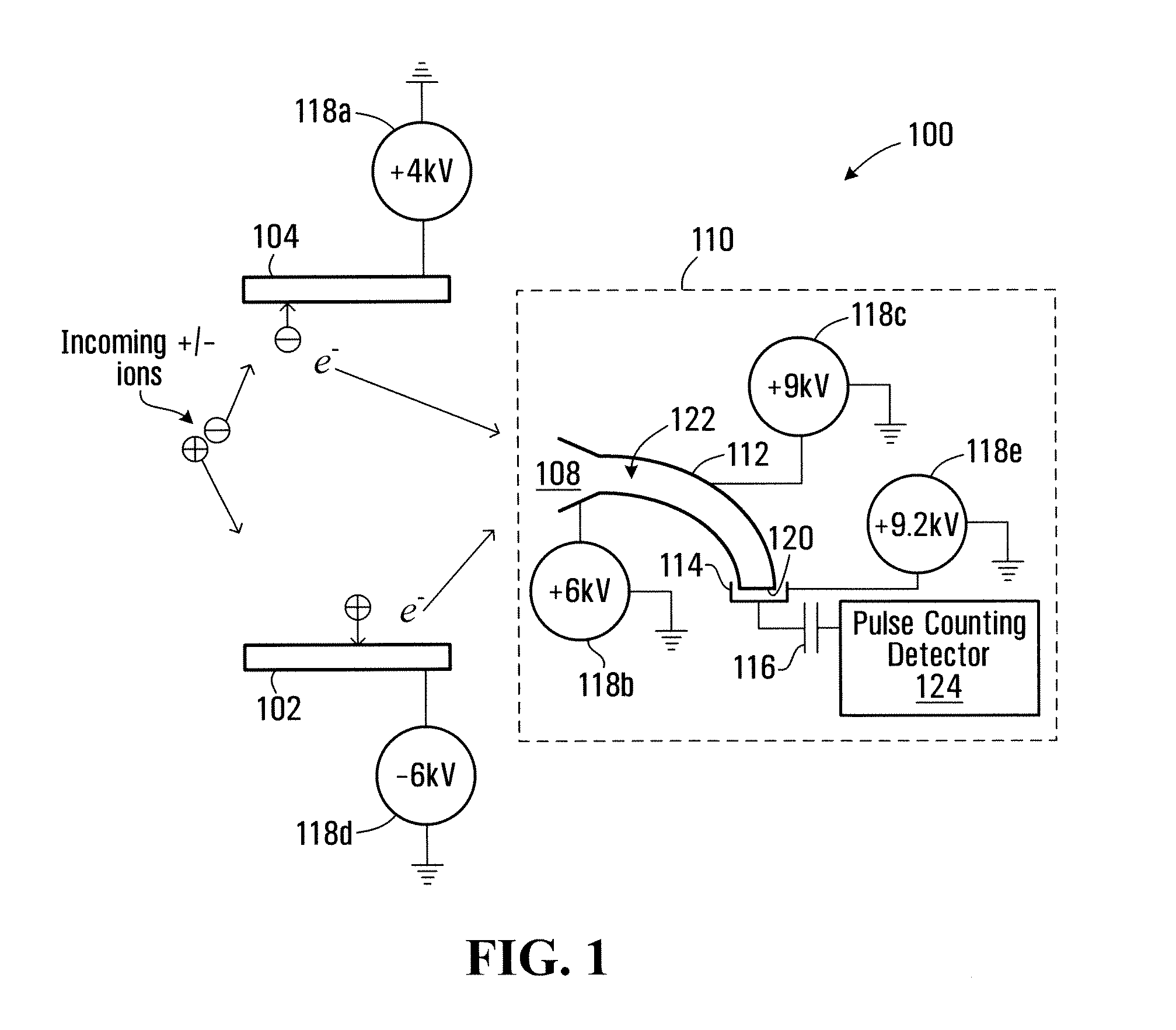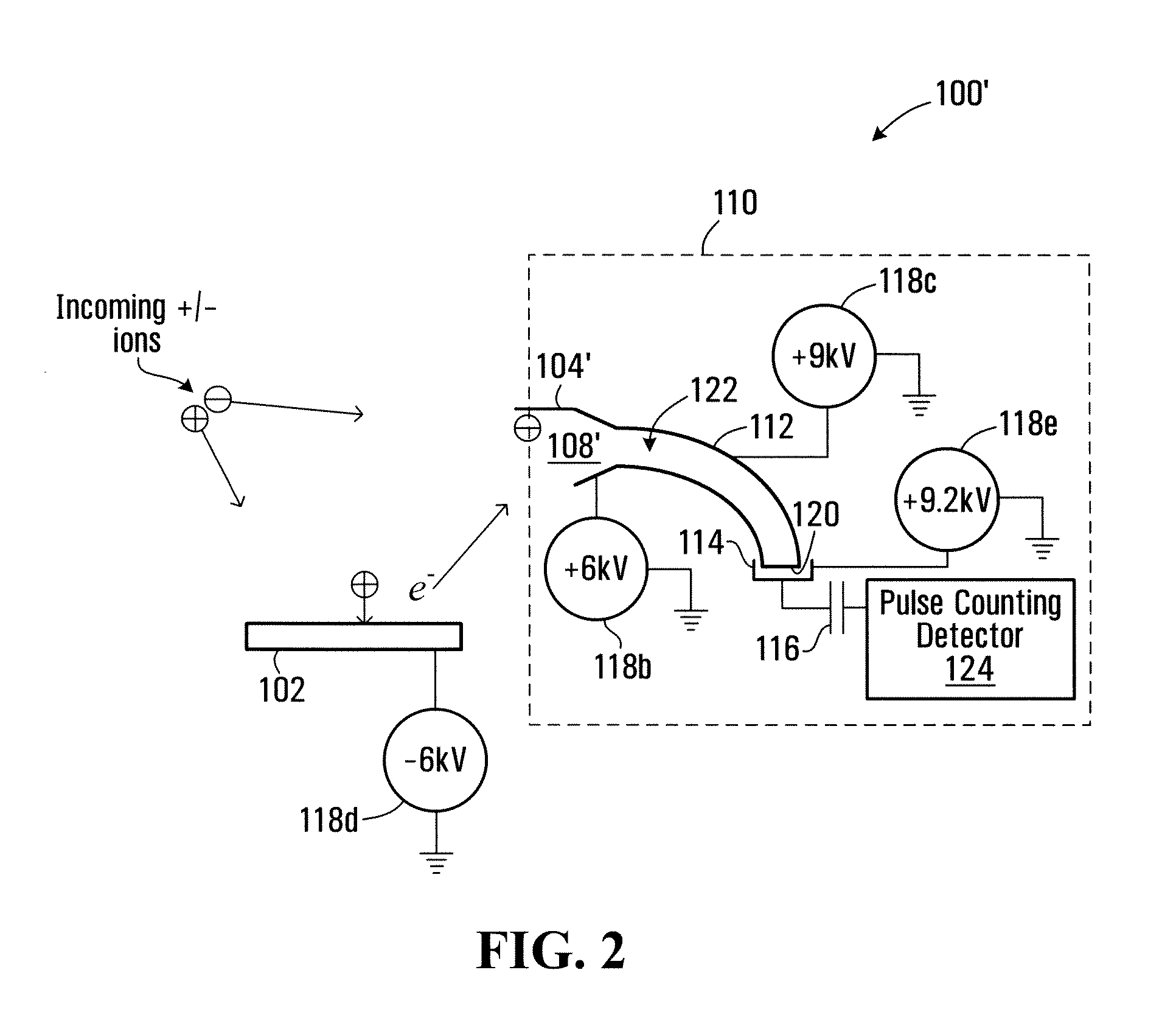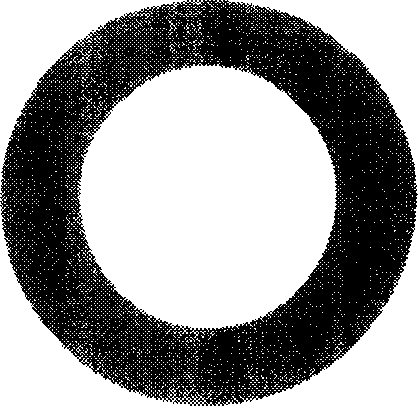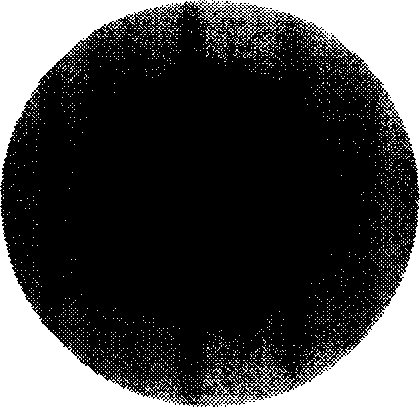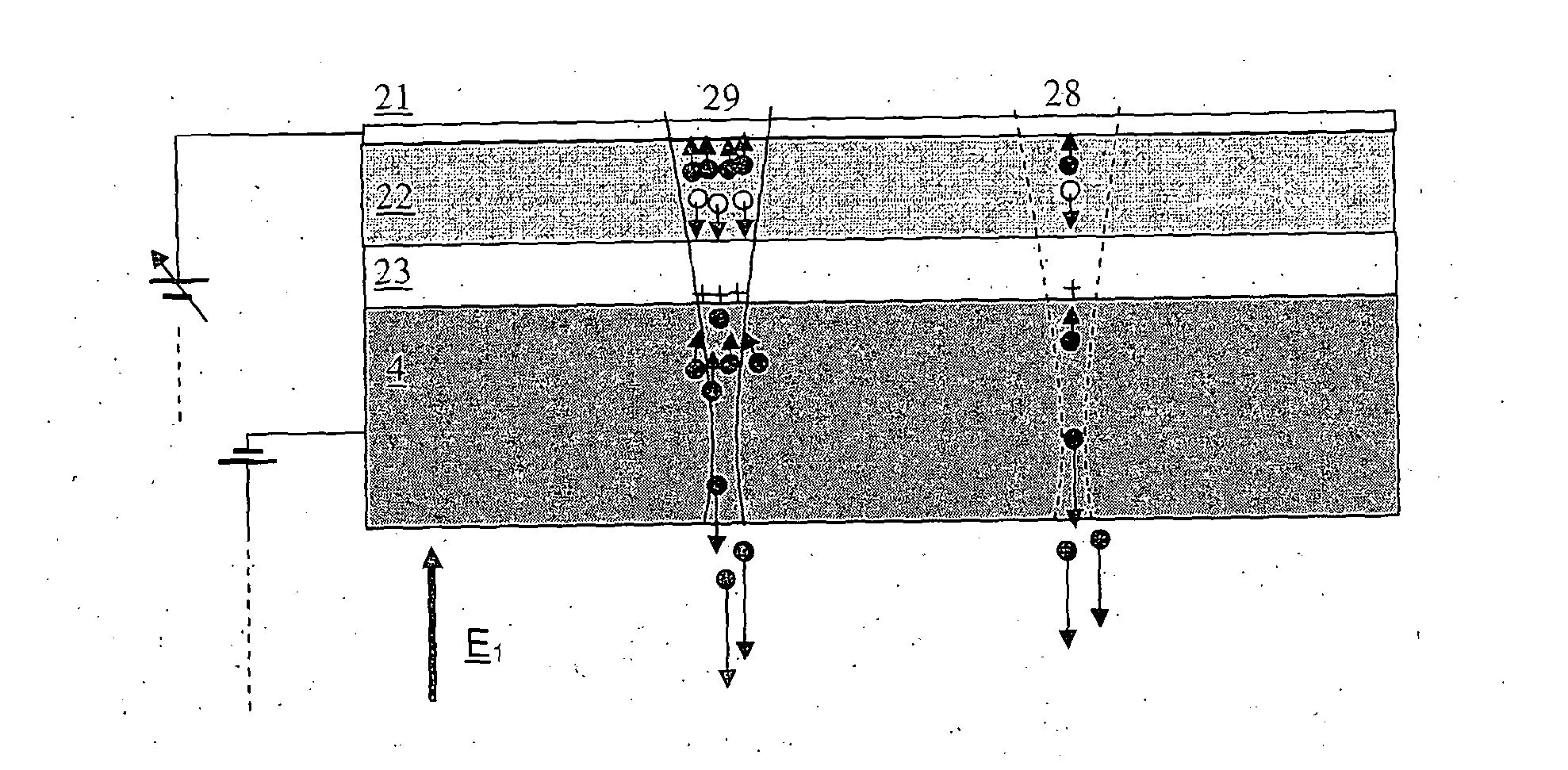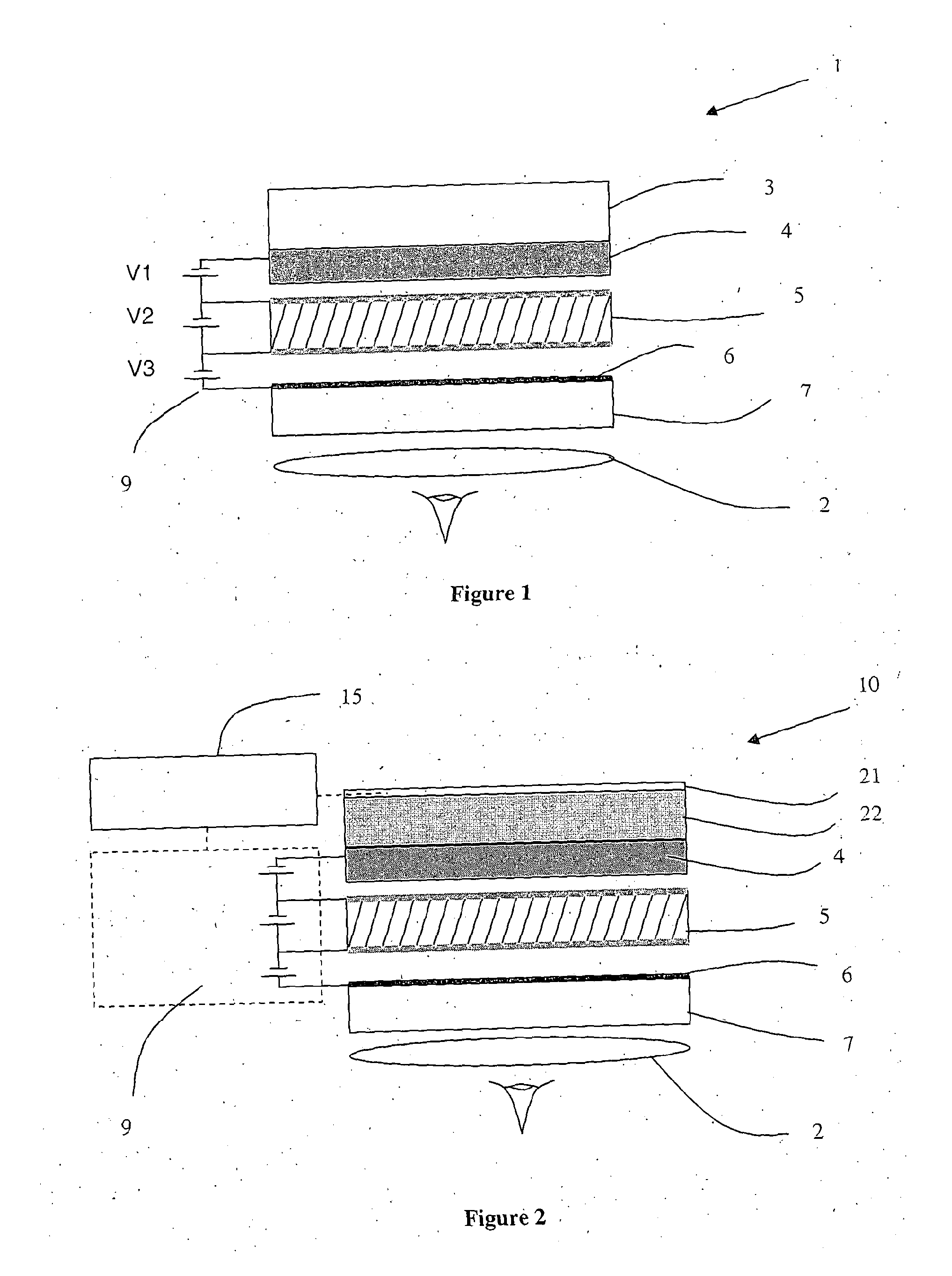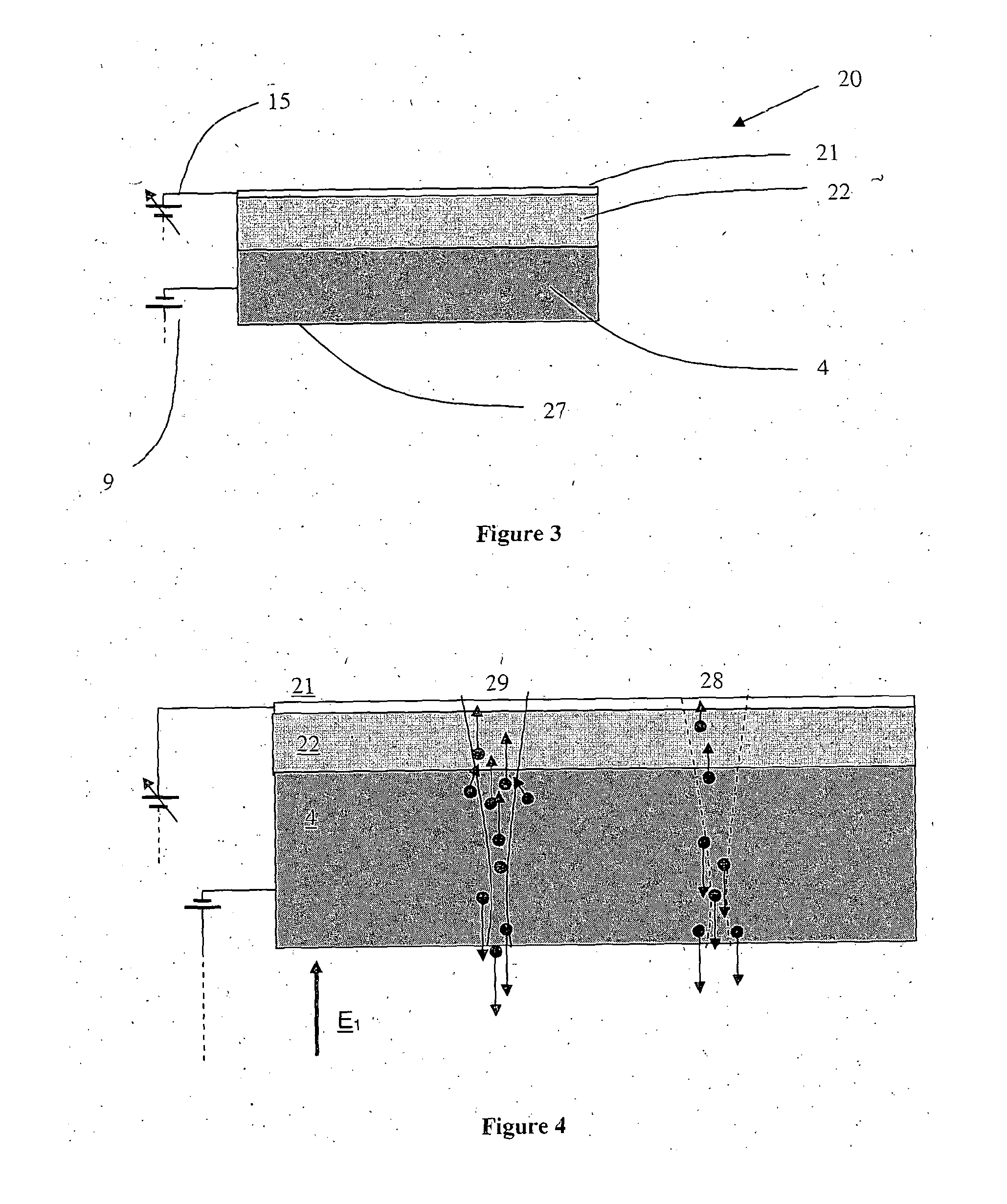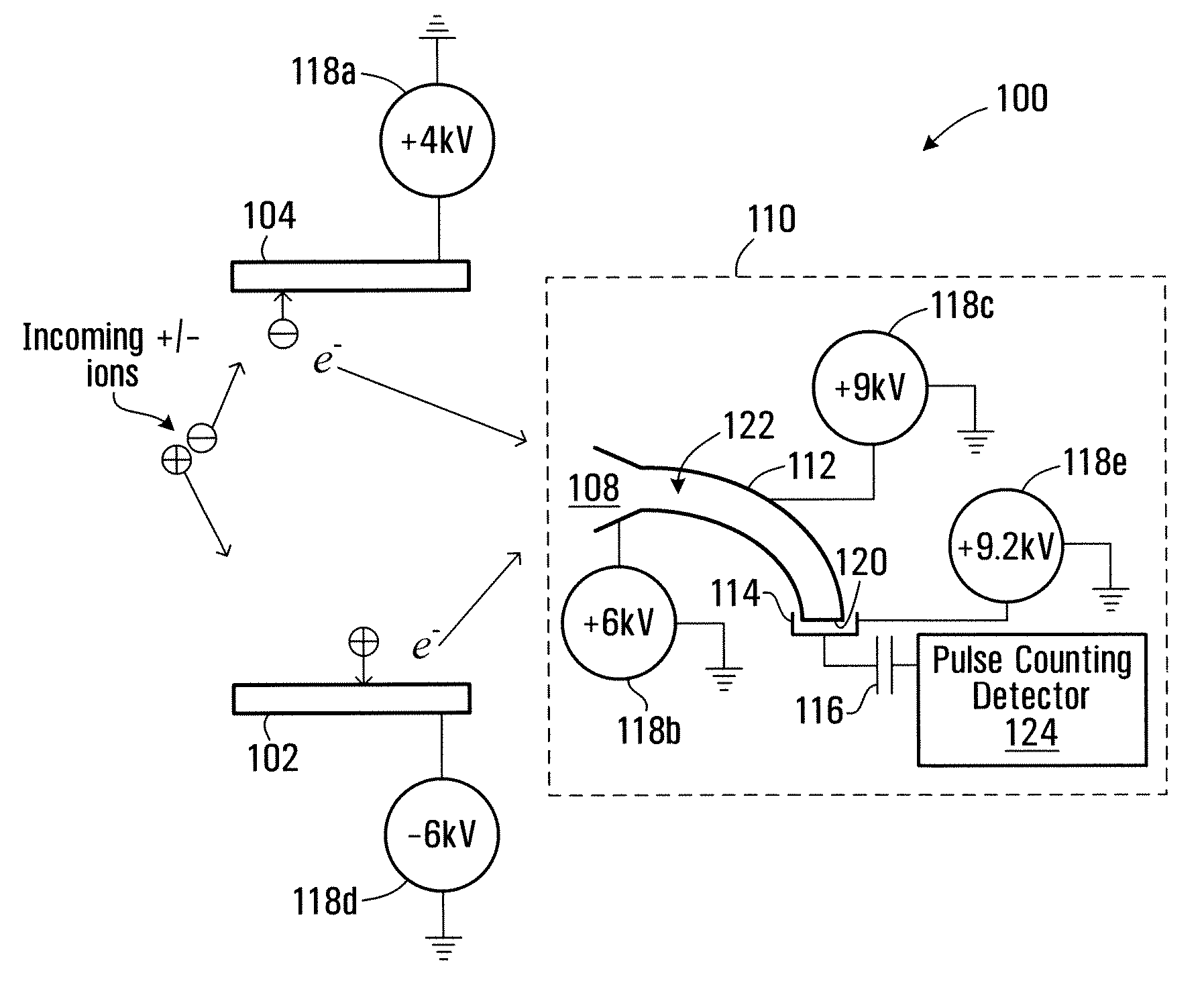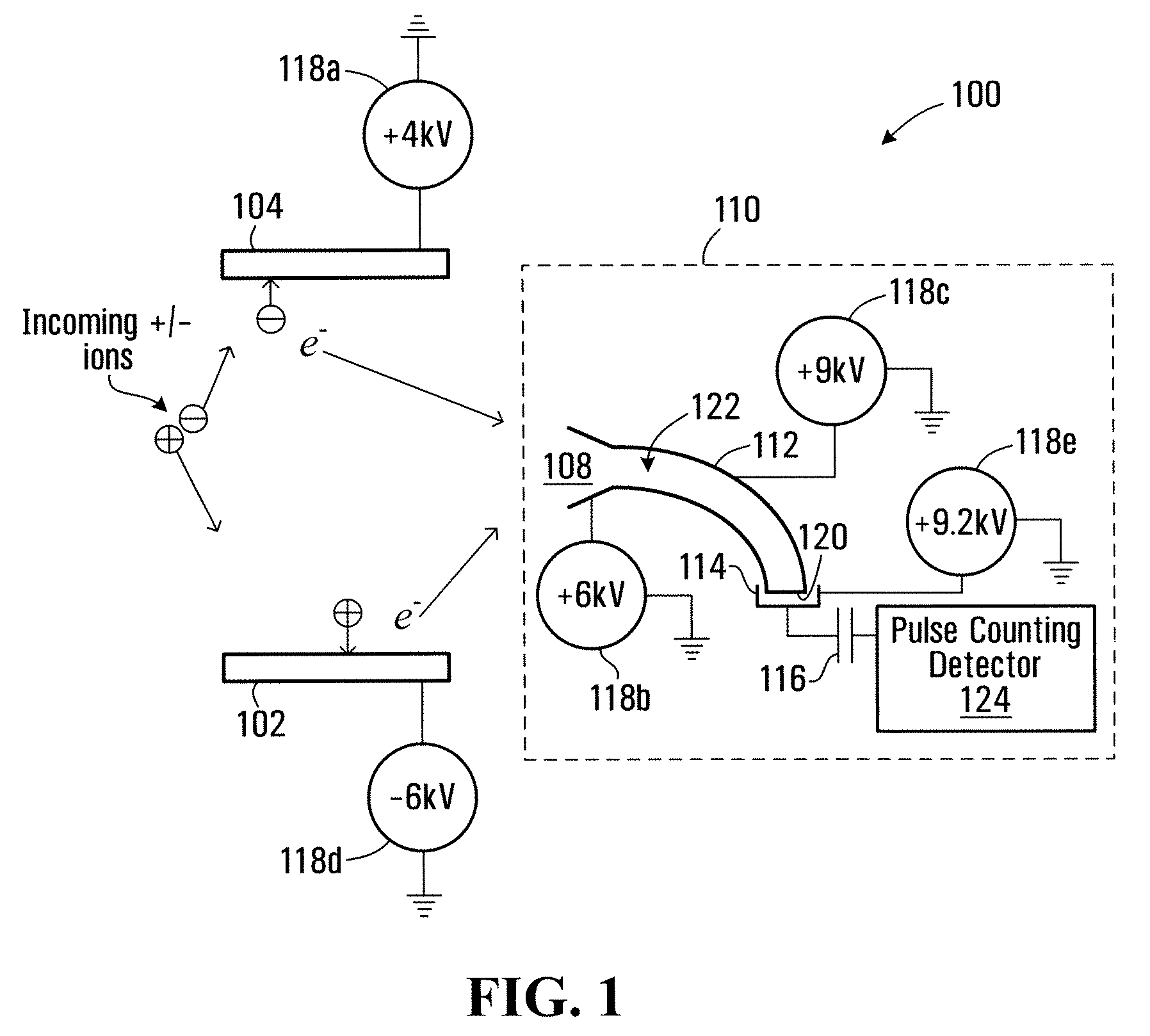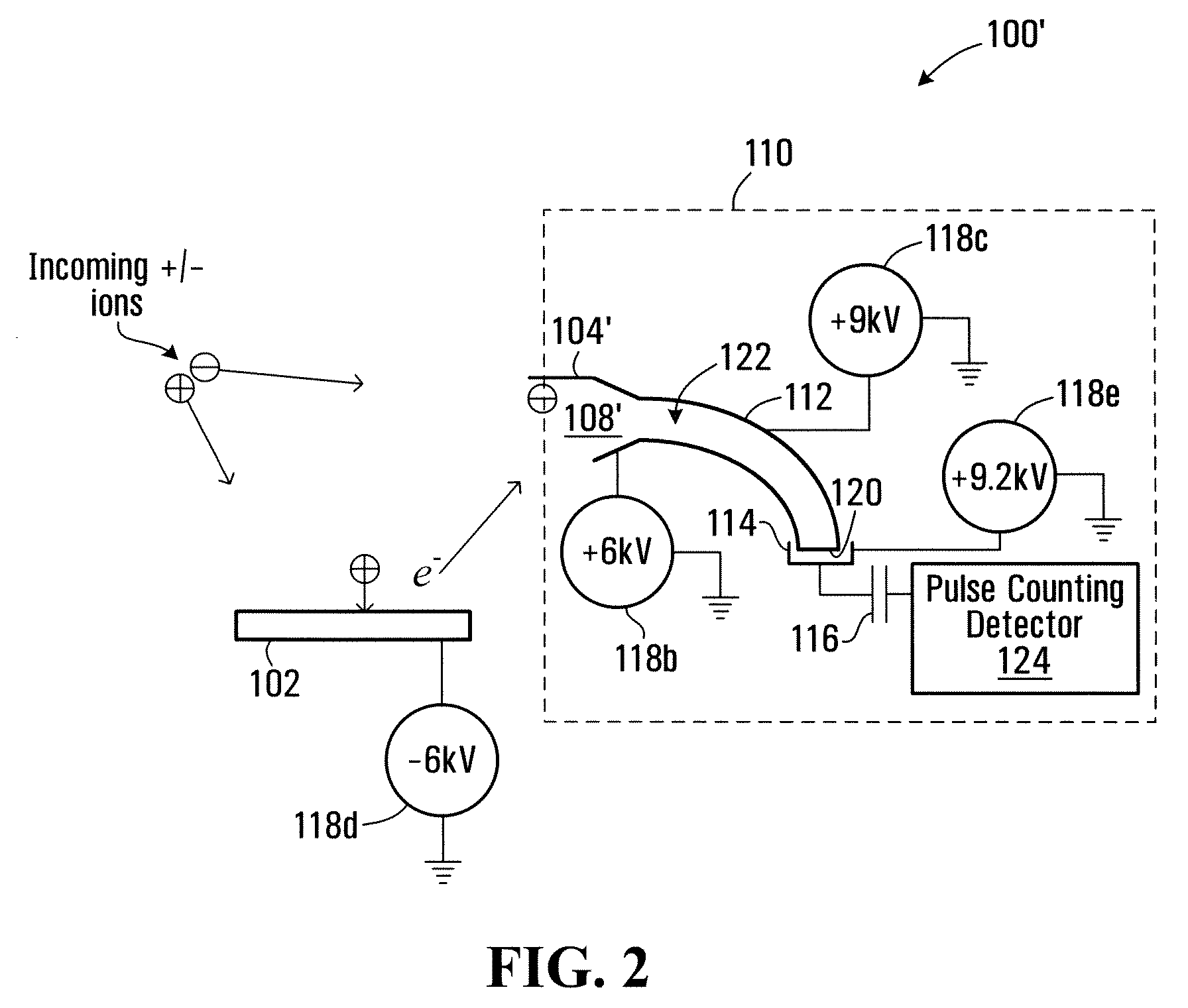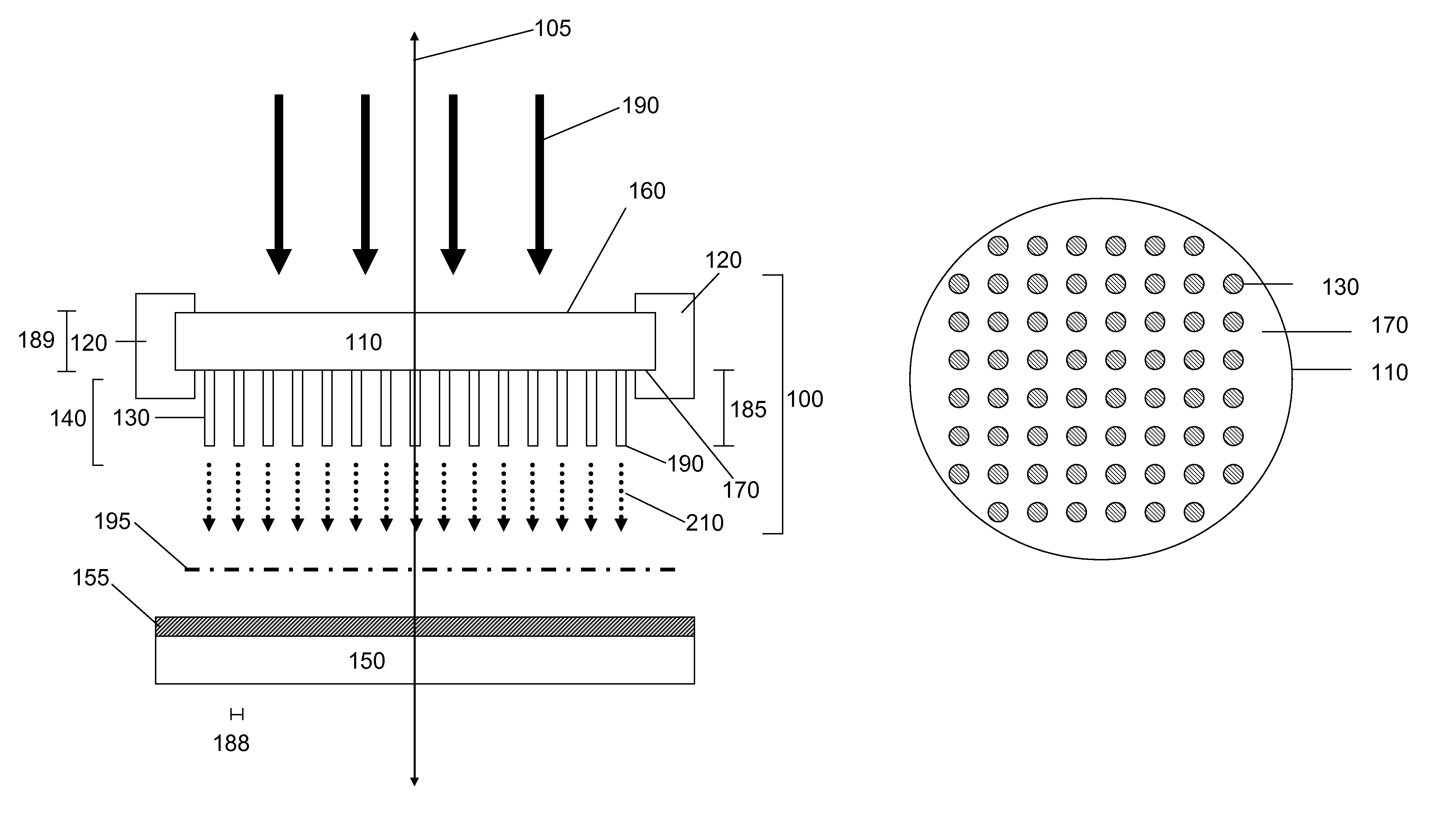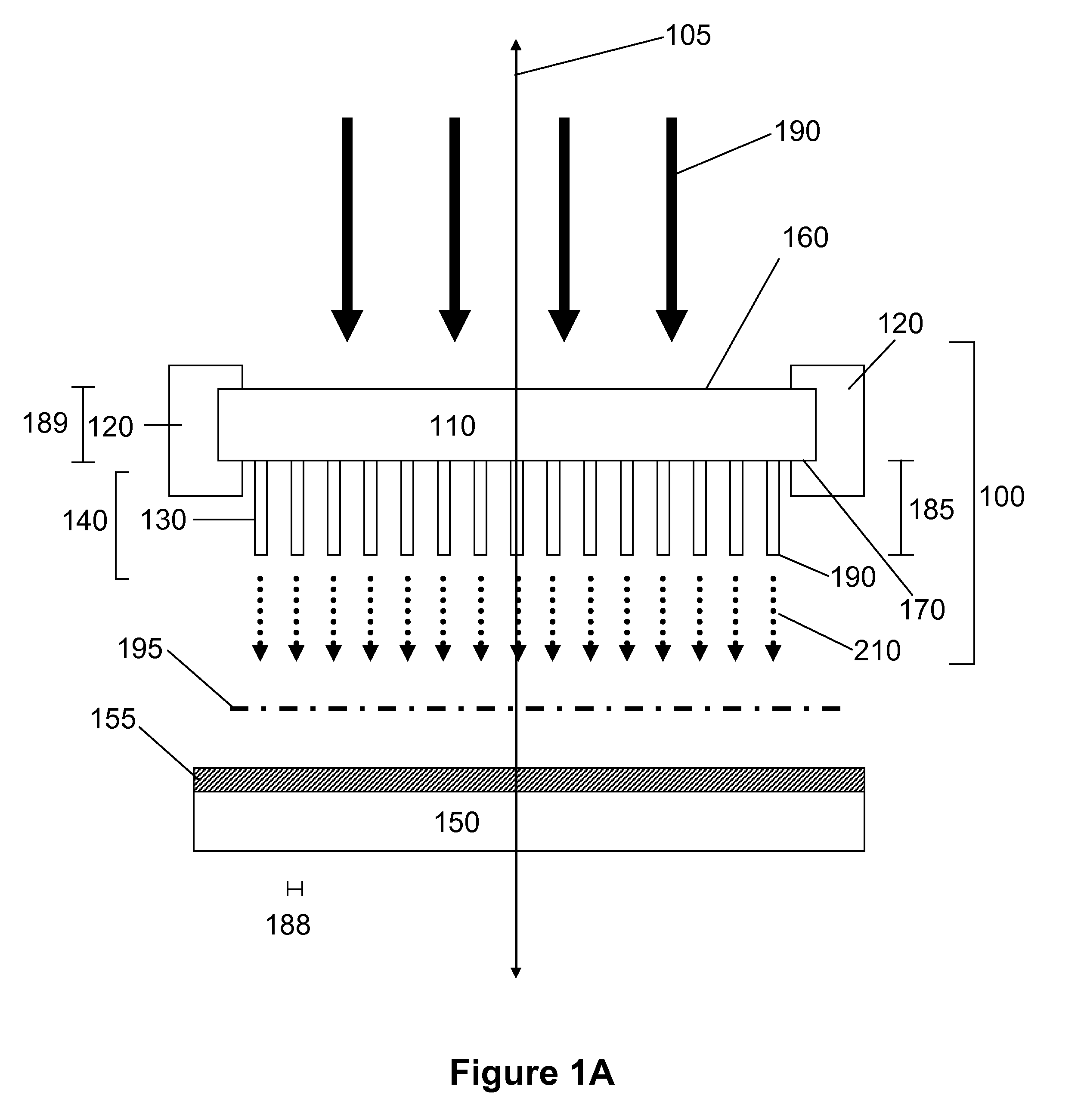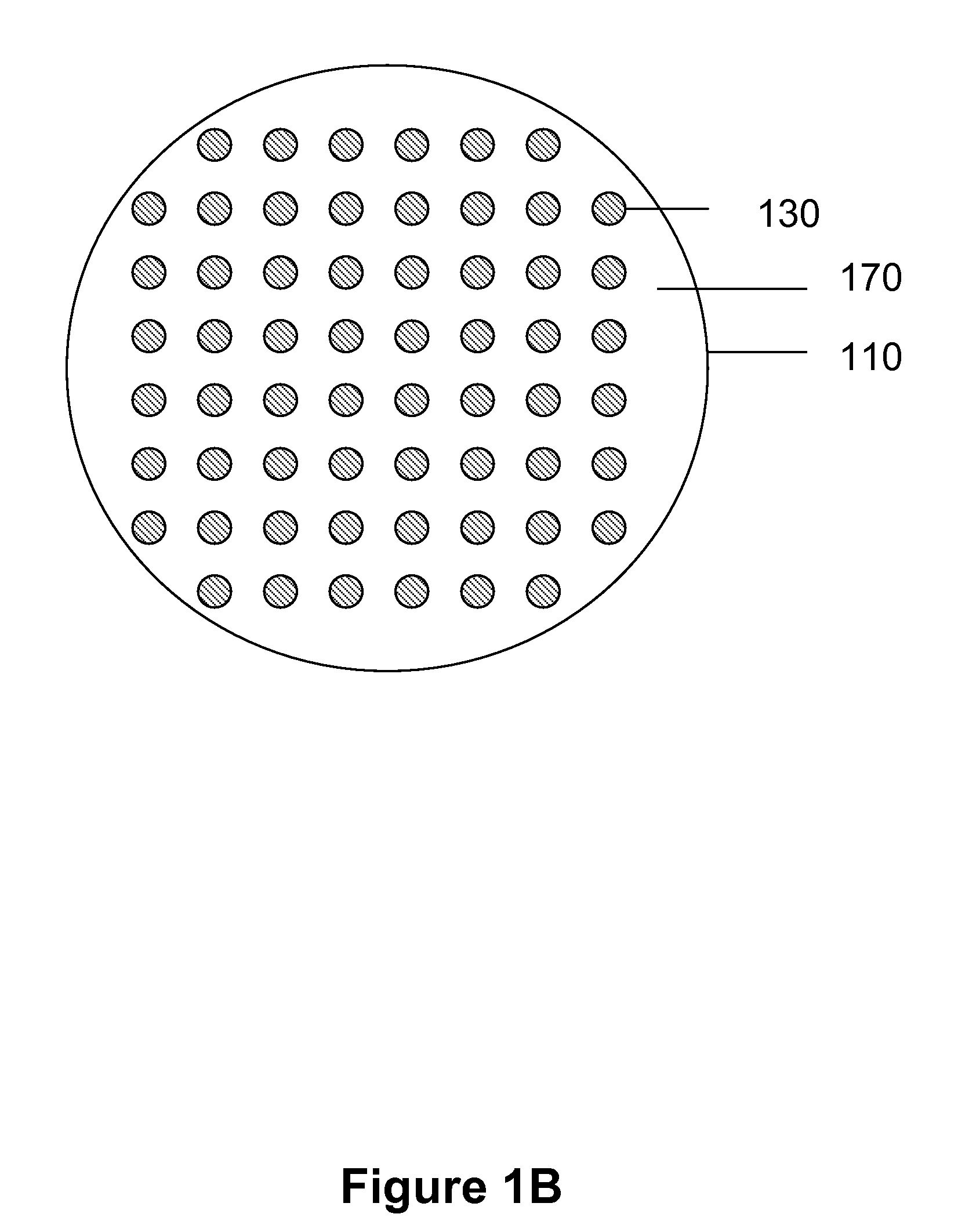Patents
Literature
Hiro is an intelligent assistant for R&D personnel, combined with Patent DNA, to facilitate innovative research.
141results about "Electron multiplier tubes" patented technology
Efficacy Topic
Property
Owner
Technical Advancement
Application Domain
Technology Topic
Technology Field Word
Patent Country/Region
Patent Type
Patent Status
Application Year
Inventor
Optical inspection device, electromagnetic wave detection method, electromagnetic wave detection device, organism observation method, microscope, endoscope, and optical tomographic image generation device
ActiveUS20100210952A1High sensitivityIncrease light intensityOptical radiation measurementRadiation measurementBiological bodyLight irradiation
An optical inspection device 1, comprising a light generation means 2, a light irradiation means 3 irradiating an object to be inspected 4 with light generated from the light generation means 2 and a photodetection means 6 photoelectrically converting signal light obtained from the object to be inspected 4 through irradiation of light by the light irradiation means 3, and inspecting the object to be inspected 4 based on output from the photodetection means 6, wherein a light amplification means 5 amplifying signal light obtained from the object to be inspected 4 is provided. There is thus provided an optical inspection device capable of photoelectrically converting signal light from the object to be inspected with high sensitivity and promptly with its inexpensive configuration without increasing the intensity of light with which the object to be inspected is irradiated and without using an expensive low-noise and high-sensitivity photodetector.
Owner:OLYMPUS CORP
Enhanced brightness light emitting device spot emitter
InactiveUS6969946B2Increase volumePoint-like light sourcePortable electric lightingExit surfaceLight emitting device
The amount of usefully captured light in an optical system may be increased by concentrating light in a region where it can be collected by the optical system. A light emitting device may include a substrate and a plurality of semiconductor layers. In some embodiments, a reflective material overlies a portion of the substrate and has an opening through which light exits the device. In some embodiments, reflective material overlies a portion of a surface of the semiconductor layers and has an opening through which light exits the device. In some embodiments, a light emitting device includes a transparent member with a first surface and an exit surface. At least one light emitting diode is disposed on the first surface. The transparent member is shaped such that light emitted from the light emitting diode is directed toward the exit surface.
Owner:LUMILEDS
Surface structures for halo reduction in electron bombarded devices
ActiveUS20050122021A1Reduce haloBeam/ray focussing/reflecting arrangementsBeam/ray deflecting arrangementsElectron sourceInverted pyramid
An electron sensing device includes a cathode for providing a source of electrons, and an anode disposed opposite to the cathode for receiving electrons emitted from the cathode. The anode includes a textured surface for reducing halo in the output signal of the electron sensing device. The textured surface may include either pits or inverted pyramids.
Owner:ELBIT SYSTEMS OF AMERICA LLC
MCP unit, MCP detector and time of flight mass spectrometer
ActiveUS7564043B2Reduce widthShortened fall timeThermometer detailsSpectrometer detectorsTime-of-flight mass spectrometryTime response
The present invention relates to an MCP unit or the like having a structure intended to achieve a desired time response characteristic, without depending on a limitation imposed by a channel diameter of MCP. The MCP unit comprises the MCP for releasing secondary electrons internally multiplied in response to incidence of charged particles, an anode arranged in a position where the secondary electrons reach, and an acceleration electrode arranged between the MCP and the anode. In particular, the acceleration electrode includes a plurality of openings which permit passing of the secondary electrons migrating from the MCP toward the anode. Further, the acceleration electrode is arranged such that the shortest distance B between the acceleration electrode and the anode is longer than the shortest distance A between the MCP and the acceleration electrode. Thus, an FWHM of a detected peak appearing in response to the incidence of the charged particles is remarkably shortened.
Owner:HAMAMATSU PHOTONICS KK
Near infrared ray shielding film
InactiveUS20030186040A1Easy to operateHigh light transmittanceTelevision system detailsNon-fibrous pulp additionPolyesterInfrared
A near infrared screening film which consists of a biaxially oriented film made from a polyester containing a near infrared light absorber having a weight reduction start temperature of at least 280° C. and which has a haze value of 5% or less and a total transmittance for visible lights having a wavelength of 400 to 650 nm of 40% or more and which is exemplified by having optical properties at visible and near infrared ranges which satisfy the following expressions (1) to (4): 1<T(850)<20 (1) 1<T(950)<20 (2) -10<T(620)-T(540)<10 (3) -10<T(450)-T(540)<10 (4) wherein T(450), T(540), T(620), T(850) and T(950) are light transmittances at wavelengths of 450 nm, 540 nm, 620 nm, 850 nm and 950 nm, respectively. This film is inexpensive, has high handling ease, a high visible light transmittance and the function of preventing the malfunction of peripheral equipment caused by near infrared lights from the screen of a plasma display, for example, and can be suitably used in the front panel of the plasma display.
Owner:TEIJIN LTD
Very fast time resolved imaging in multiparameter measurement space
InactiveUS20080035834A1Minimal lossEasy to optimizeOptical measurementsRadiation pyrometryFluorescenceFast tempo
Plural electronic or optical images are provided in a streak optical system, as for instance by use of plural slits instead of the conventional single slit, to obtain a third, fourth etc. dimension—rather than only the conventional two, namely range or time and azimuth. Such additional dimension or dimensions are thereby incorporated into the optical information that is to be streaked and thereby time resolved. The added dimensions may take any of an extremely broad range of forms, including wavelength, polarization state, or one or more spatial dimensions—or indeed virtually any optical parameter that can be impressed upon a probe beam. Resulting capabilities remarkably include several new forms of lidar spectroscopy, fluorescence analysis, polarimetry, spectropolarimetry, and combinations of these.
Owner:ARETE ASSOCIATES INC
Photomultiplier tube optimized for surface inspection in the ultraviolet
ActiveUS8629384B1Improve efficiencyReduce noiseMaterial analysis by optical meansPhotoelectric discharge tubesLow noiseUltraviolet
Disclosed herein is a PhotoMultiplier Tube (PMT) designed for use with a surface inspection system such as the Surfscan system, which operates at 266 nm wavelength. The inventive PMT is high efficiency, low noise, and low gain, a combination of features that is specific to the application and contrary to the features of PMT's in the art. The inventive PMT is designed to be tuned to a specific narrow band wavelength of incident light, thereby optimizing the QE at that wavelength. It is further designed to combine a small number of dynodes each having substantially higher secondary electron gain than typical dynodes. By designing the PMT in this way, the excess noise factor is dramatically reduced, yielding a much improved S / N, while still maintaining the overall PMT gain in the lower range suitable for use in a surface inspection system.
Owner:KLA TENCOR TECH CORP
Near infrared ray shielding film
InactiveUS6991849B2Easy to operateHigh visible light transmittanceTelevision system detailsNon-fibrous pulp additionPolyesterInfrared
A near infrared screening film which consists of a biaxially oriented film made from a polyester containing a near infrared light absorber having a weight reduction start temperature of at least 280° C. and which has a haze value of 5% or less and a total transmittance for visible lights having a wavelength of 400 to 650 nm of 40% or more and which is exemplified by having optical properties at visible and near infrared ranges which satisfy the following expressions (1) to (4):1<T(850)<20 (1)1<T(950)<20 (2)−10<T(620)−T(540)<10 (3)−10<T(450)−T(540)<10 (4)wherein T(450), T(540), T(620), T(850) and T(950) are light transmittances at wavelengths of 450 nm, 540 nm, 620 nm, 850 nm and 950 nm, respectively.This film is inexpensive, has high handling ease, a high visible light transmittance and the function of preventing the malfunction of peripheral equipment caused by near infrared lights from the screen of a plasma display, for example, and can be suitably used in the front panel of the plasma display.
Owner:TEIJIN LTD
Membrane Detector for Time-of-Flight Mass Spectrometry
ActiveUS20120305760A1High detection sensitivityGood temporal resolution and sensitivityThermometer detailsSpectrometer detectorsMass analyzerCell lysates
The invention provides methods, and related devices and device components, for detecting, sensing and analyzing analytes in samples. In some aspects, the invention provides methods, and related devices and device components, useful in combination with a mass analyzer for the mass spectrometric analysis of analytes derived from biomolecules in biological samples including biological fluids cell extracts, and cell lysates. Methods of some aspects of the invention utilize a thin membrane-based detector as a transducer for converting the kinetic energies of analytes into a field emission signal via excitation of mechanical vibrations in an electromechanically biased membrane by generation of a thermal gradient.
Owner:WISCONSIN ALUMNI RES FOUND
Detector for a bipolar time-of-flight mass spectrometer
InactiveUS6958474B2High sensitivityEliminate potential damageTelevision system detailsParticle separator tubesElectron multiplierSpectrometer
A replaceable, electronically-isolated, MCP-based spectrometer detector cartridge with enhanced sensitivity is disclosed. A mass detector is electro-optically isolated from a charge collector with an electron multiplier for converting a charged particle into a multiplicity of electrons and a scintillator for converting the multiplicity of electrons into a multiplicity of photons. A light sensor is provided to convert the multiplicity of photons back into electrons which are summed into a charge pulse. The light sensor is realized by any of a plurality of photo-responsive devices.
Owner:PHOTONIS SCI INC
Particle detector for secondary ions and direct and or indirect secondary electrons
ActiveUS20060289748A1Improve detection efficiencyOptical radiation measurementParticle separator tubesCharged particle detectorsSecondary electrons
A multi-purpose efficient charge particle detector that by switching bias voltages measures either secondary ions, or secondary electrons (SE) from a sample, or secondary electrons that originate from back scattered electrons (SE3), is described. The basic version of the detector structure and two stripped down versions enable its use for the following detection combinations: 1. The major version is for measuring secondary ions, or secondary electrons from the sample, or secondary electrons due to back-scattered electrons that hit parts other than the sample together or without secondary electrons from the sample. 2. Measuring secondary ions or secondary electrons from the sample (no SE3). 3. Measuring secondary electrons from the sample and / or secondary electrons resulting from back-scattered electrons hitting objects other than the sample (no ions).
Owner:EL MUL TECH
Ion detection system and method
ActiveUS9214322B2Extended service lifeImprove dynamic rangeSpectrometer detectorsTime-of-flight spectrometersNetwork packetMass analyzer
A detection system and a method for detecting ions which have been separated in a time-of-flight (TOF) mass analyzer, comprising an amplifying arrangement for converting ions into packets of secondary particles and amplifying the packets of secondary particles, wherein the amplifying arrangement is arranged so that each packet of secondary particles produces at least a first output and a second output separated in time and so that during the delay between producing the first and second output the first output produced by a packet of secondary particles is used for modulating the second output produced by the same packet. An increased dynamic range of detection and protection of the detection system against intense ion pulses is thereby provided.
Owner:THERMO FISHER SCI BREMEN
Nanopillar arrays for electron emission
The present invention provides systems, devices, device components and structures for modulating the intensity and / or energies of electrons, including a beam of incident electrons. In some embodiments, for example, the present invention provides nano-structured semiconductor membrane structures capable of generating secondary electron emission. Nano-structured semiconductor membranes of this aspect of the present invention include membranes having an array of nanopillar structures capable of providing electron emission for amplification, filtering and / or detection of incident radiation, for example secondary electron emission and / or field emission. Nano-structured semiconductor membranes of the present invention are useful as converters wherein interaction of incident primary electrons and nanopillars of the nanopillar array generates secondary emission. Nano-structured semiconductor membranes of this aspect of the present invention are also useful as directed charge amplifiers wherein secondary emission from a nanopillar array provides gain functionality for increasing the intensity of radiation comprising incident electrons.
Owner:WISCONSIN ALUMNI RES FOUND
Electron amplification channel structure for use in field emission display devices
InactiveUS6323594B1Improve efficiencyExcellent optical propertiesDischarge tube luminescnet screensElectrode and associated part arrangementsSecondary emissionElectron source
Cathodoluminescent field emission display devices features an electron amplification structure for generating secondary electron emissions. The electron amplification structure includes a channel structure having a bottom wall coupled to at least one side wall, thereby defining a channel cavity, and at least one protrusion extending from the side wall into the channel cavity. Furthermore, a primary electron source or emitter is provided for generating primary electron emission into the channel cavity, whereby secondary emissions of electrons are produced when the protrusion is bombarded by electrons within the channel structure. The use of a narrow channel in the electron amplification structure reduces the possibility that a returning ion will strike the emitter, and thus decreases cathode emitter tip erosion.
Owner:ST CLAIR INTPROP CONSULTANTS
Radiation detector having coated nanostructure and method
A radiation detector has an electron emitter that includes a coated nanostructure on a support. The nanostructure can include a plurality of nanoneedles. A nanoneedle is a shaft tapering from a base portion toward a tip portion. The tip portion has a diameter between about 1 nm to about 50 nm and the base portion has a diameter between about 20 nm to about 300 nm. Each shaft has a length between about 100 nm to about 3,000 nm and an aspect ratio larger than 10. A coating covers at least the tip portions of the shafts. The coating exhibits negative electron affinity and is capable of emitting secondary electrons upon being irradiated by radiation. The nanostructure can also include carbon nanotubes (CNTs) coated with a material selected from the group of aluminum nitride (AlN), gallium nitride (GaN), and zinc oxide (ZnO). The detector further includes an electron collector positioned to collect electrons emitted from the electron emitter and to produce a signal indicative of the amount of electrons collected, and a signal processor operatively connected to the electron collector for processing the signal to determine a characteristic of the radiation. The detector can be used to detect radiations of changed particles or light such as X-ray.
Owner:NANYANG TECH UNIV +3
Ion detector
ActiveUS6906318B2Minimal broadeningNarrow pulse height distributionThermometer detailsTime-of-flight spectrometersSecondary electronsMass spectrometric
An ion detector 7 for a mass spectrometer is disclosed comprising a microchannel plate 8 which receives ions 12 at an input surface and releases secondary electrons 16 from an output surface. A detecting device 9 having a detecting surface is arranged to receive at least some of the electrons 16 emitted by the microchannel plate 8. The area of the detecting surface is substantially greater than the area of the output surface of the microchannel plate 8.
Owner:MICROMASS UK LTD
Radioactive ray generating apparatus and radioactive ray imaging system
ActiveUS20120318987A1Efficient releaseImprove heat resistanceThermometer detailsBeam/ray focussing/reflecting arrangementsShortest distanceRadioactive waste
A radioactive ray generating apparatus includes a second shielding member, a target, and a first shielding member, which are sequentially disposed from an electron emission source side. A shortest distance from a maximum radiation intensity portion of the target to the first shielding member is shorter than a shortest distance from the maximum radiation intensity portion of the target to the second shielding member.
Owner:CANON KK
High dynamic range ion detector for mass spectrometers
ActiveUS9899201B1Improve transmittanceMaximum possible image currentTime-of-flight spectrometersSpectrometer detectorsMeasurement devicePeak value
The invention relates to the linear dynamic range of ion abundance measurement devices in mass spectrometers, such as time-of-flight mass spectrometers. The invention solves the problem of ion current peak saturation by producing a second ion measurement signal at an intermediate stage of amplification in a secondary electron multiplier, e.g. a signal generated between the two multichannel plates in chevron arrangement. Because saturation effects are observed only in later stages of amplification, the signal from the intermediate stage of amplification will remain linear even at high ion intensities and will remain outside saturation. In the case of a discrete dynode detector this could encompass, for example, placement of a detection grid between two dynodes near the middle of the amplification chain. The invention uses detection of the image current generated by the passing electrons.
Owner:BRUKER SCI LLC
E×B ion detector for high efficiency time-of-flight mass spectrometers
ActiveUS7180060B2Extension of timeImprove detection efficiencyThermometer detailsSpectrometer detectorsMass spectrometricTime of flight
An ion detector having a planar electrically conducting entrance plate, a converter assembly including a planar electrically conducting converter plate and a converter member for providing free electrons upon impact of ions, a planar electrically conducting exit plate having an exit window, a magnet assembly, and an electron detection assembly. The planes of the converter plate and the entrance plate are parallel and electrically biasable in order to provide a homogeneous electric field. The magnet assembly provides a homogenous magnetic field between the converter plate and the exit plate, the magnetic field extending parallel to the plane of the converter plate. The ratio between the electric and the magnetic field is such that the electrons emitted from the converter plate travel to the exit window and are detected by the electron detection assembly.
Owner:EL MUL TECH
Ion detector
ActiveUS6906317B2Reduce adverse effectsVoltage differenceThermometer detailsParticle separator tubesMass spectrometricElectron
An ion detector for a mass spectrometer is disclosed comprising one or more microchannel plates and an anode arranged to receive electrons emitted from the one or more microchannel plates. The anode is permanently magnetized and electrons emitted from the microchannel plates preferably spiral around lines of magnetic field towards the anode.
Owner:MICROMASS UK LTD
Single photon spectrometer
ActiveUS20110108711A1Sensitive highBroad detection dynamic rangeLuminescent dosimetersAbsorption/flicker/reflection spectroscopyFiberFluorescence
A fiberized single photon sensitive spectrometer based on a 32-channel PMT sensor is highly sensitive with broad detection dynamic range. The spectrometer enables accurate and high speed detection, identification and analysis of biological samples labeled with multiple fluorescent markers, such as compositions of multi-color fluorescence signals or radiation emitted by multiple fluorescence dyes. A fiberized optical input of the spectrometer allows an easy and efficient coupling to any measurement system based on fiber collection of the analyzed fluorescence. The spectrometer provides highly accurate DNA sequencing. A 32 channel PMT single photon detector has a detection dynamic range of more than 20 bits and has a frame rate of about 3300 frames per second. The dynamic range of the detector's pixels reaches 108 photocounts per second.
Owner:THE RES FOUND OF STATE UNIV OF NEW YORK
Field emission display devices
InactiveUS6087766AImprove efficiencyExcellent optical propertiesDischarge tube luminescnet screensElectrode and associated part arrangementsSecondary emissionDisplay device
Cathodoluminescent field emission display devices feature phosphor biasing, amplification material layers for secondary electron emissions, oxide secondary emission enhancement layers, and ion barrier layers of silicon nitride, to provide high-efficiency, high-brightness field emission displays with improved operating characteristics and durability. The amplification materials include copper-barium, copper-beryllium, gold-barium, gold-calcium, silver-magnesium and tungsten-barium-gold, and other high amplification factor materials fashioned to produce high-level secondary electron emissions within a field emission display device. For enhanced secondary electron emissions, an amplification material layer can be coated with a near mono-molecular film consisting essentially of an oxide of barium, beryllium, calcium, magnesium or strontium. Use of a high amplification factor film as a phosphor biasing electrode, and variability of the phosphor biasing potential to achieve brightness or gray scale control are further described in the disclosure.
Owner:ST CLAIR INTPROP CONSULTANTS
Microchannel plate detector assembly for a time-of-flight mass spectrometer
InactiveUS6943344B2Reduce noiseImprove performanceThermometer detailsStability-of-path spectrometersTime-of-flight mass spectrometryAudio power amplifier
A method is provided for reducing signal ringing in a microchannel plate detector assembly having a cylindrical mount with a center tube extending through at least a portion of the assembly, in a mass spectrometer including the steps of providing the microchannel plate detector assembly with a pin anode extending from the cylindrical mount and located in proximity to the center tube; holding a front portion of the assembly at ground potential; setting a middle portion of the assembly between the front portion and a rear portion to a first voltage potential for accelerating ions; holding the rear portion of the assembly to a second voltage potential; holding the pin anode at a third voltage potential; and accelerating electrons emitted from the middle portion of the assembly toward the pin anode. The third voltage potential is established by an amplifier of an oscilloscope connected to the detector assembly.
Owner:THE JOHN HOPKINS UNIV SCHOOL OF MEDICINE
Light receiving module and radiation detecting apparatus equipped with the same
InactiveUS6545256B1Reduce in quantityIncrease resistanceInstruments for comonautical navigationMaterial analysis by optical meansElectricityComputer module
The present invention relates to a light-receiving module of a heat-resistant, vibration-resistant type for use in petroleum exploration or the like, and a radiation detecting apparatus equipped with the light-receiving module. The light-receiving module comprises a photomultiplier having a faceplate and a stem opposing each other, a bleeder circuit board provided so as to sandwich the stem together with the faceplate and electrically connected to the photomultiplier, a module case provided so as to accommodate the photomultiplier and the bleeder circuit board, said module case having an opening for exposing the faceplate of the photomultiplier, a step provided on an inner surface of the module case, and a stopper seated on the step, defining the position of the photomultiplier in the module case.
Owner:HAMAMATSU PHOTONICS KK
Method and apparatus for detecting positively charged and negatively charged ionized particles
ActiveUS20080073530A1Particle separator tubesIsotope separationElectron multiplierSecondary electrons
An ion detector includes collision surfaces for converting both positively and negatively charged ions into emitted secondary electrons. Secondary electrons may be detected using an electron detector, than may, for example include an electron multiplier. Conveniently, secondary electrons (or electrons emitted by the multiplier) may be detected using an electron pulse counter.
Owner:PERKINELMER SCI CANADA ULC
Method for manufacturing micro-channel plate with solid edge
InactiveCN1758405AReduce consumptionImprove consistencyElectron multiplier tubesCold cathode manufactureMethod selectionEngineering
This invention discloses a manufacturing method for micro-channel plate with solid edges including; selecting single glass as the material of the solid edge when the skin and core materials of the effective region are determined, drawing hexagon single wires with said selected solid edge material to be arrayed with the hexagon multiple wires of the effective region in lamination and orderly and manufacturing the whole plate of the micro-channel plate with said solid edge material.
Owner:NORTH NIGHT VISION TECH
Field emission display devices
InactiveUS6084345ALow costImprove efficiencyDischarge tube luminescnet screensElectrode and associated part arrangementsSecondary emissionDisplay device
Cathodoluminescent field emission display devices feature phosphor biasing, amplification material layers for secondary electron emissions, oxide secondary emission enhancement layers, and ion barrier layers of silicon nitride, to provide high-efficiency, high-brightness field emission displays with improved operating characteristics and durability. The amplification materials include copper-barium, copper-beryllium, gold-barium, gold-calcium, silver-magnesium and tungsten-barium-gold, and other high amplification factor materials fashioned to produce high-level secondary electron emissions within a field emission display device. For enhanced secondary electron emissions, an amplification material layer can be coated with a near mono-molecular film consisting essentially of an oxide of barium, beryllium, calcium, magnesium or strontium. Use of a high amplification factor film as a phosphor biasing electrode, and variability of the phosphor biasing potential to achieve brightness or gray scale control are further described in the disclosure.
Owner:ST CLAIR INTPROP CONSULTANTS
Bright source protection for low light imaging sensors
InactiveUS20140239157A1Reduce chanceEasy to adjustSolid-state devicesMaterial analysis by optical meansCMOS sensorDiffusion
This invention relates to a low light imaging sensors and particularly image intensification and CMOS sensors. To overcome issues of dazzle and halo when operating in areas where the scene encompasses bright light sources, the invention provides material layers in contact with the detector material to spatially limit the generation or subsequent diffusion of electrons in said detector material. This allows the imaging sensor to perform as normal under bright conditions, maintaining the operator's scene awareness and spatial acuity.
Owner:THE SEC OF STATE FOR DEFENCE IN HER BRITANNIC MAJESTYS GOVERNMENT OF THE UK OF GREAT BRITAIN & NORTHERN IRELAND
Method and apparatus for detecting positively charged and negatively charged ionized particles
An ion detector includes collision surfaces for converting both positively and negatively charged ions into emitted secondary electrons. Secondary electrons may be detected using an electron detector, than may, for example include an electron multiplier. Conveniently, secondary electrons (or electrons emitted by the multiplier) may be detected using an electron pulse counter.
Owner:PERKINELMER SCI CANADA ULC
Nanopillar arrays for electron emission
ActiveUS7884324B2High strengthAvoid accumulationThermometer detailsNanotechNanopillarSecondary emission
The present invention provides systems, devices, device components and structures for modulating the intensity and / or energies of electrons, including a beam of incident electrons. In some embodiments, for example, the present invention provides nano-structured semiconductor membrane structures capable of generating secondary electron emission. Nano-structured semiconductor membranes of this aspect of the present invention include membranes having an array of nanopillar structures capable of providing electron emission for amplification, filtering and / or detection of incident radiation, for example secondary electron emission and / or field emission. Nano-structured semiconductor membranes of the present invention are useful as converters wherein interaction of incident primary electrons and nanopillars of the nanopillar array generates secondary emission. Nano-structured semiconductor membranes of this aspect of the present invention are also useful as directed charge amplifiers wherein secondary emission from a nanopillar array provides gain functionality for increasing the intensity of radiation comprising incident electrons.
Owner:WISCONSIN ALUMNI RES FOUND
Features
- R&D
- Intellectual Property
- Life Sciences
- Materials
- Tech Scout
Why Patsnap Eureka
- Unparalleled Data Quality
- Higher Quality Content
- 60% Fewer Hallucinations
Social media
Patsnap Eureka Blog
Learn More Browse by: Latest US Patents, China's latest patents, Technical Efficacy Thesaurus, Application Domain, Technology Topic, Popular Technical Reports.
© 2025 PatSnap. All rights reserved.Legal|Privacy policy|Modern Slavery Act Transparency Statement|Sitemap|About US| Contact US: help@patsnap.com
